All 88 Best Picture Oscar Winners Ranked
From the terrifying (Silence of the Lambs) to the subtly great (Spotlight), and the classic (The Godfather) to the god-awful (Crash).The comments section is open for yelling!
Originally posted on Feb. 28, 2014, at 4:29 a.m.Updated on Feb. 24, 2017, at 12:12 a.m.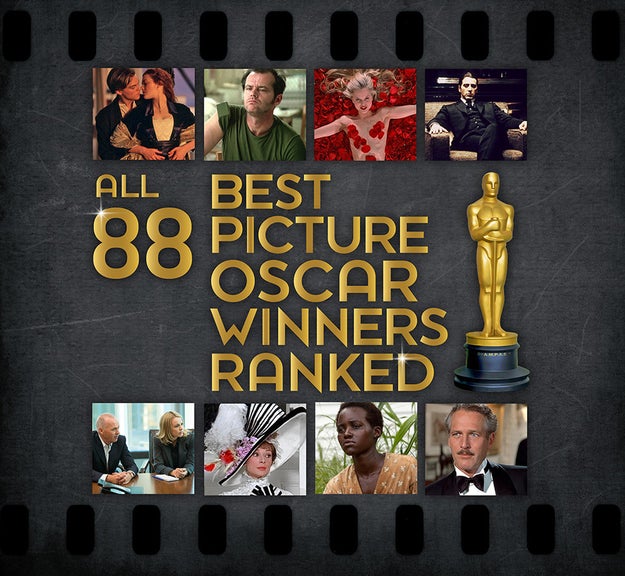
Justine Zwiebel/BuzzFeed
88. Gigi (1958)
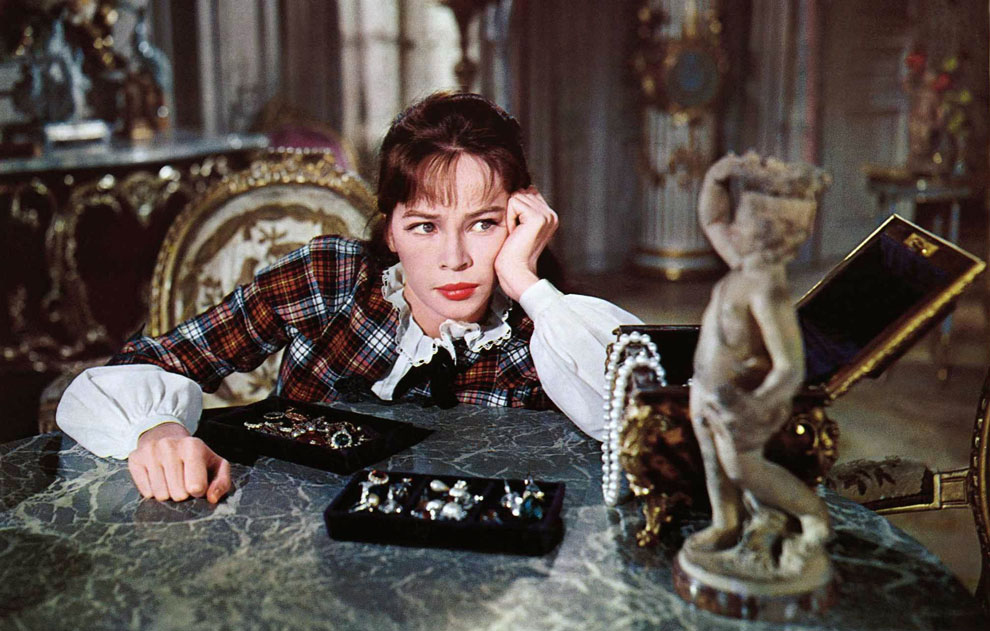
MGM
Directed by: Vincente Minnelli
Written by: Alan Jay Lerner
The other Oscars it won: Minnelli (Best Director); Lerner (Best Adapted Screenplay); Joseph Ruttenberg (Best Cinematography – Color); William A. Horning, E. Preston Ames, Henry Grace, and F. Keogh Gleason (Best Art Direction); Cecil Beaton (Best Costume Design); Adrienne Fazan (Best Film Editing); André Previn (Best Score – Musical); Frederick Loewe and Lerner (Best Original Song)
What it beat for Best Picture: Auntie Mame, Cat on a Hot Tin Roof, The Defiant Ones, Separate Tables
Written by: Alan Jay Lerner
The other Oscars it won: Minnelli (Best Director); Lerner (Best Adapted Screenplay); Joseph Ruttenberg (Best Cinematography – Color); William A. Horning, E. Preston Ames, Henry Grace, and F. Keogh Gleason (Best Art Direction); Cecil Beaton (Best Costume Design); Adrienne Fazan (Best Film Editing); André Previn (Best Score – Musical); Frederick Loewe and Lerner (Best Original Song)
What it beat for Best Picture: Auntie Mame, Cat on a Hot Tin Roof, The Defiant Ones, Separate Tables
Yes, the creepiest, most pedophiliac movie ever to win Best Picture is this list’s worst. How to define “worst” in this context, especially when judging Gigi — a movie musical some people love now, and certainly many people loved in 1958 — against films that were barely movies as we currently recognize them? This list is, of course, totally subjective: I factored in my personal feelings about each movie, along with how well it has held up, how influential it is, and what it was up against. And then there’s the ineffability of common wisdom, which I also have taken into account. No matter how I feel about Annie Hall or about Schindler’s List, for example, I know I’m in a minority view in my dislike — and that matters. Not with Gigi, though, in which Leslie Caron plays a Parisian girl being trained to be a courtesan who ends up in a push-and-pull relationship with the much older Gaston (Louis Jordan). This is the movie that gave us that disturbing cultural artifact, the song “Thank Heaven For Little Girls.” If you want disturbing psychosexual movies from 1958, let’s agree that Vertigo, which was nominated only for Best Art Direction and Best Sound, is preferable. To reiterate: Gigi is the worst.
87. The Greatest Show on Earth (1952)
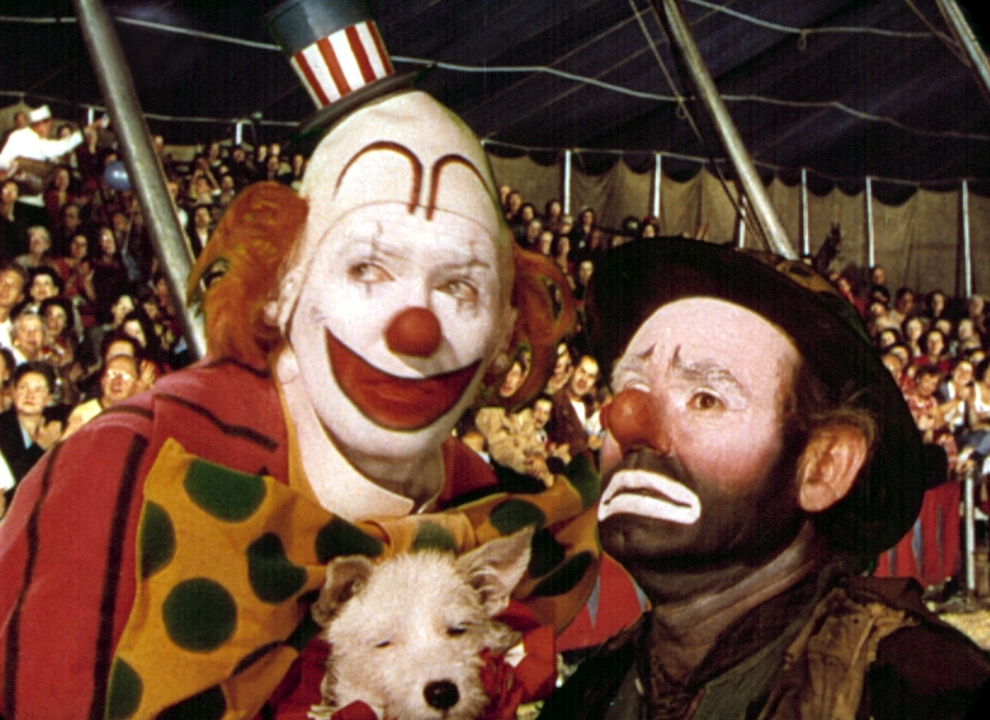
Paramount Pictures / Everett Collection
Directed by: Cecil B. DeMille
Written by: Fredric M. Frank, Barré Lyndon, Theodore St. John, and Frank Cavett
The other Oscars it won: Frank, St. John, and Cavett (Best Story)
What it beat for Best Picture: High Noon, Ivanhoe, Moulin Rouge, The Quiet Man
Written by: Fredric M. Frank, Barré Lyndon, Theodore St. John, and Frank Cavett
The other Oscars it won: Frank, St. John, and Cavett (Best Story)
What it beat for Best Picture: High Noon, Ivanhoe, Moulin Rouge, The Quiet Man
Produced and directed by Cecil B. DeMille on a huge scale, this movie is often cited as one of the worst movies ever to win Best Picture. I say it is second worst. Jimmy Stewart as Buttons the clown is a complete travesty for sure. Note that Singin’ in the Rain, a classic that also came out in 1952, wasn’t even nominated for Best Picture.
86. Crash (2005)

Lionsgate Films
Directed by: Paul Haggis
Written by: Paul Haggis and Bobby Moresco
The other Oscars it won: Haggis and Moresco (Best Original Screenplay); Hughes Winborne (Best Film Editing)
What it beat for Best Picture: Brokeback Mountain; Capote; Good Night, and Good Luck; Munich
Written by: Paul Haggis and Bobby Moresco
The other Oscars it won: Haggis and Moresco (Best Original Screenplay); Hughes Winborne (Best Film Editing)
What it beat for Best Picture: Brokeback Mountain; Capote; Good Night, and Good Luck; Munich
It’s one outrage that the superior, devastating tragedy Brokeback Mountain lost the Best Picture prize; it’s another that Crash won instead. These are two separate terrible things that happened, and the fact that these movies are forever associated taints the beauty of Brokeback Mountain. Crash wields its message with a mallet’s touch — every nominated movie was better (and I don’t like Munich much).
85. Wings (1927)

Paramount Pictures
Directed by: William A. Wellman
Written by: Hope Loring and Louis D. Lighton
The other Oscars it won: Roy Pomeroy (Engineering Effects)
What it beat for Best Picture: 7th Heaven, The Racket
Written by: Hope Loring and Louis D. Lighton
The other Oscars it won: Roy Pomeroy (Engineering Effects)
What it beat for Best Picture: 7th Heaven, The Racket
Where to put Wings, the first movie ever to win Best Picture at the first-ever Academy Awards (which were not yet called “Oscars”)? It’s a silent film, and, until The Artist, was the only one ever to have won in the top category. And, as with some of these early winners, it’s more important to film history than it is enjoyable to watch now. I mean… it’s long! Almost two-and-a-half hours long. Still, I’d rather watch this story about two friends who become pilots in World War I, featuring Clara Bow and a young Gary Cooper, than, say, Crash ever again. (Fun fact: The first Academy Awards took place on May 16, 1929. It was almost two years after Wings was released. But the first ceremony honored films released in 1927 and 1928.)
84. The Great Ziegfeld (1936)
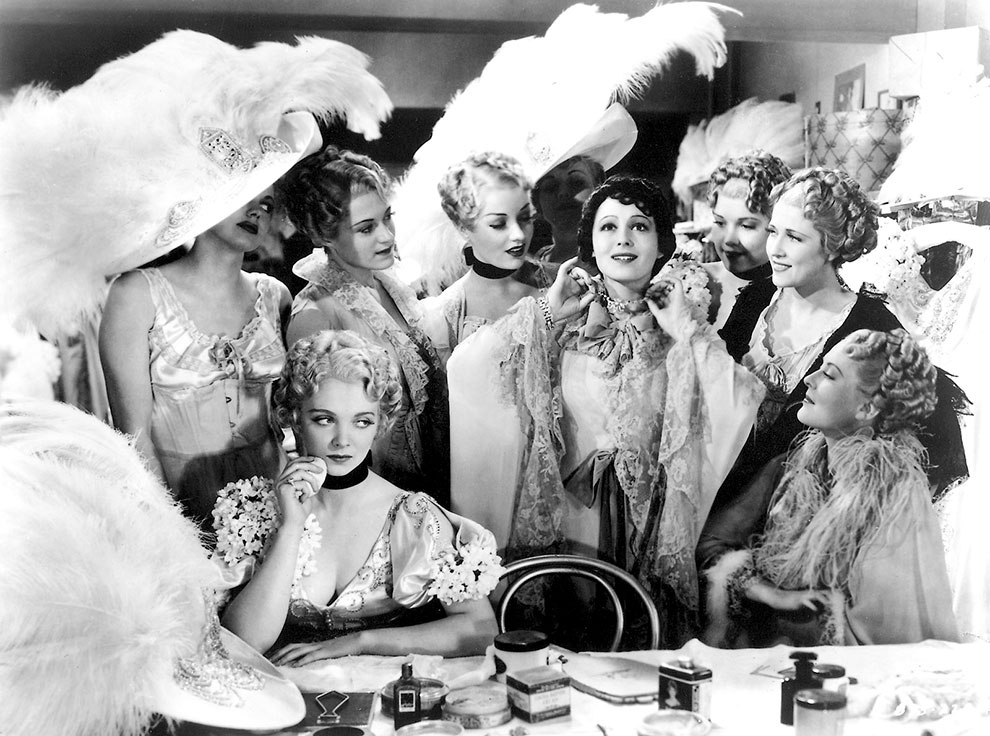
MGM
Directed by: Robert Z. Leonard
Written by: William Anthony McGuire
The other Oscars it won: Luise Rainer (Best Actress); Seymour Felix (Best Dance Direction)
What it beat for Best Picture: Anthony Adverse, Dodsworth, Libeled Lady, Mr. Deeds Goes to Town, Romeo and Juliet, San Francisco, The Story of Louis Pasteur, A Tale of Two Cities, Three Smart Girls
Written by: William Anthony McGuire
The other Oscars it won: Luise Rainer (Best Actress); Seymour Felix (Best Dance Direction)
What it beat for Best Picture: Anthony Adverse, Dodsworth, Libeled Lady, Mr. Deeds Goes to Town, Romeo and Juliet, San Francisco, The Story of Louis Pasteur, A Tale of Two Cities, Three Smart Girls
Ridiculously long (almost three hours), especially for a musical — according to the Variety review from 1936, it was “the record holder to date for length of a picture in this country.” And the music and dancing are forgettable, unfortunately. Though there is a bit of fun in this one, especially from William Powell as Flo Ziegfeld and actors playing themselves (most notably Fanny Brice and Ray Bolger), there is also… blackface. No.
83. Cimarron (1931)
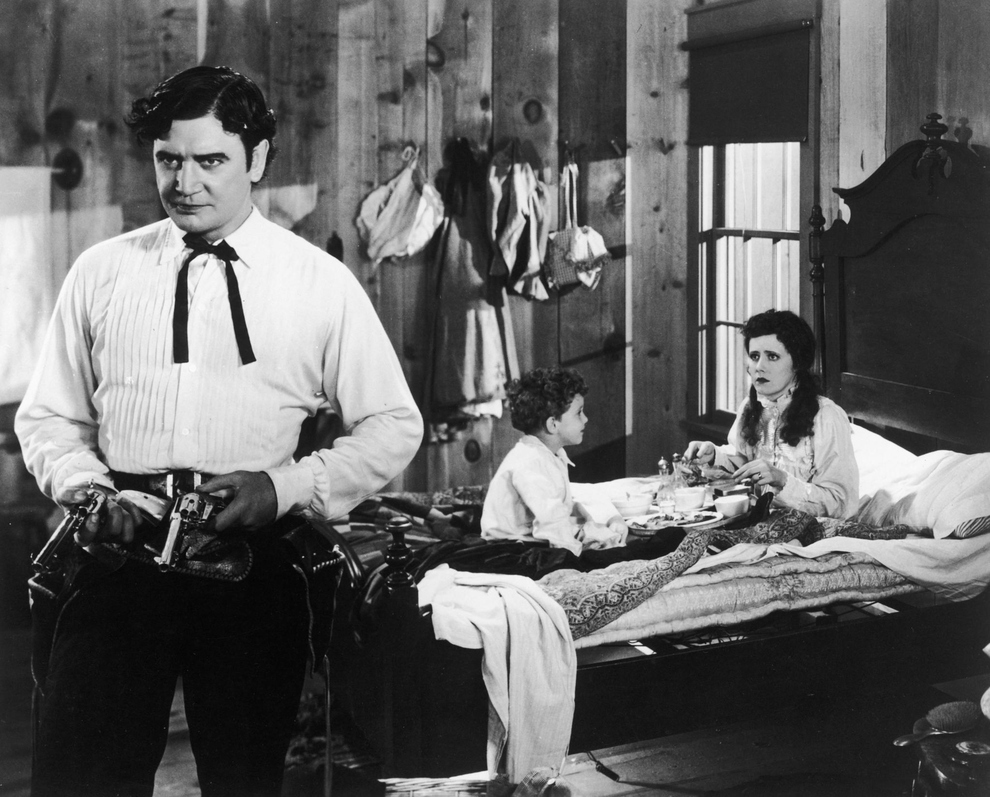
RKO Radio Pictures
Directed by: Wesley Ruggles
Written by: Howard Estabrook
The other Oscars it won: Estabrook (Best Adapted Screenplay); Max Rée (Best Art Direction)
What it beat for Best Picture: East Lynne, The Front Page, Skippy, Trader Horn
Written by: Howard Estabrook
The other Oscars it won: Estabrook (Best Adapted Screenplay); Max Rée (Best Art Direction)
What it beat for Best Picture: East Lynne, The Front Page, Skippy, Trader Horn
I repeat: these early winners — it’s hard. Cimarron is interesting because it was a big-budget movie filmed during the Depression. (It cost more than $1.4 million to make, which indie films can still make work today.) It’s an ambitious Western, based on an Edna Ferber novel, and has a strong female lead (Irene Dunne). Tracy Letts nerds will also be interested in knowing that it takes place in Osage, Okla. during its late-19th century boom. But it’s not a walk in the park to see now. And there are some terrible racial/anti-Semitic stereotypes that are of the movie’s time, but a bummer that highlights Cimarron’s datedness.
82. The Broadway Melody (1929)
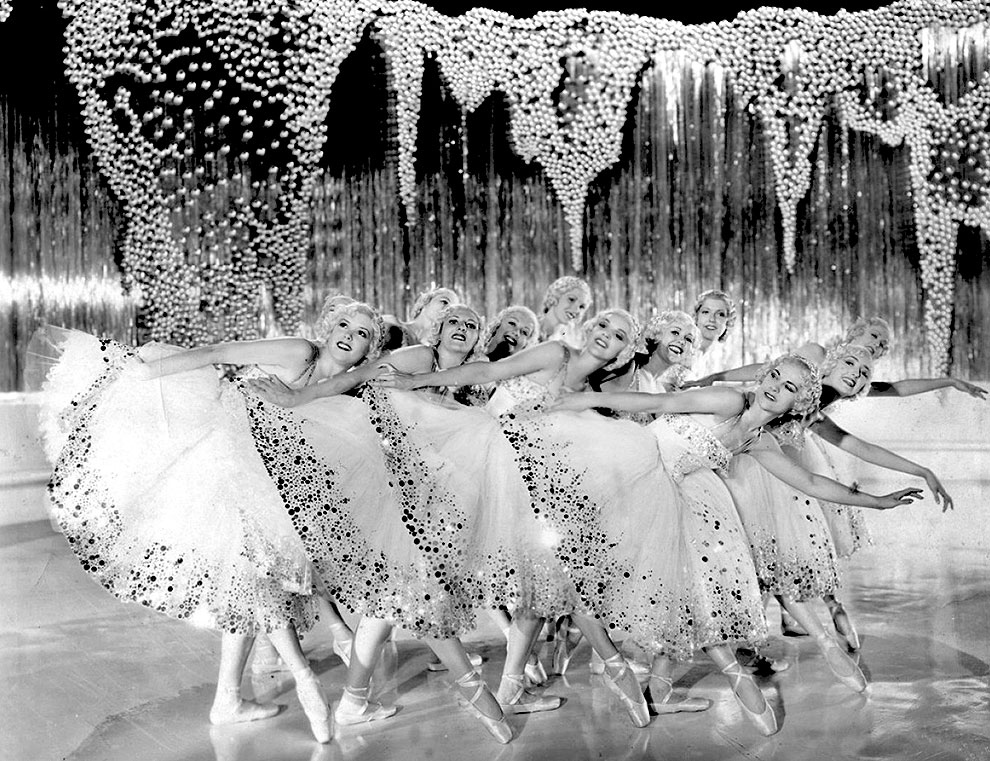
MGM
Directed by: Harry Beaumont
Written by: Sarah Y. Mason, Norman Houston, and James Gleason
The other Oscars it won: None
What it beat for Best Picture: Alibi, In Old Arizona, The Hollywood Revue of 1929, The Patriot
Written by: Sarah Y. Mason, Norman Houston, and James Gleason
The other Oscars it won: None
What it beat for Best Picture: Alibi, In Old Arizona, The Hollywood Revue of 1929, The Patriot
The second movie to win an Academy Award for Best Picture, the first modern movie musical, legendary producer Irving Thalberg’s first Oscar, and MGM’s first musical ever, is, sadly, not good by today’s standards. Still: respect.
81. Cavalcade (1933)
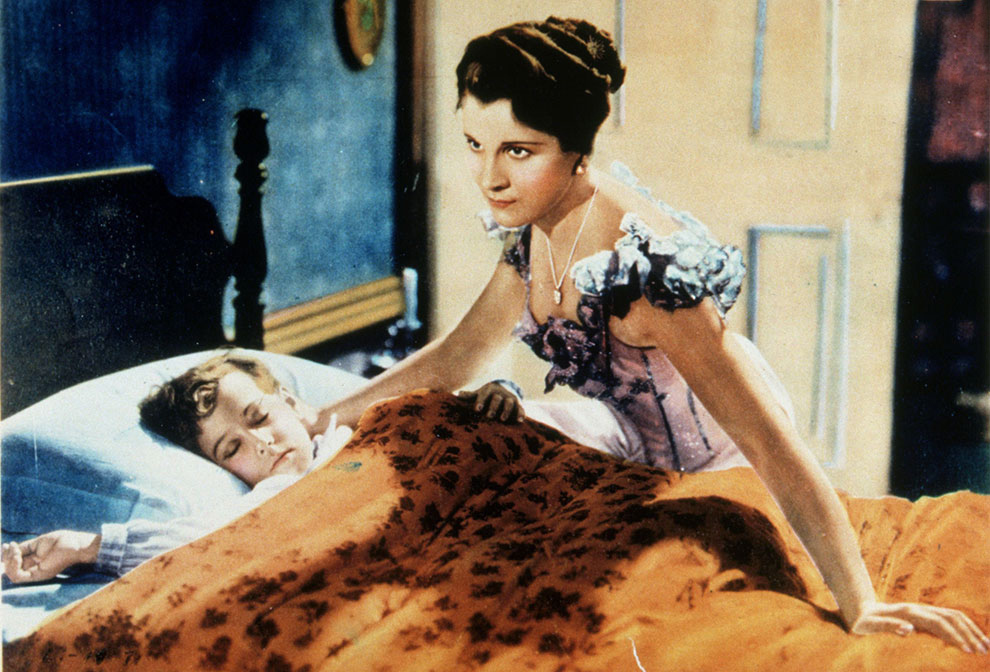
SNAP / Rex/REX USA
Directed by: Frank Lloyd
Written by: Reginald Berkeley and Sonya Levien
The other Oscars it won: Lloyd (Best Director); William S. Darling (Best Art Direction)
What it beat for Best Picture: A Farewell to Arms, 42nd Street, I Am a Fugitive from a Chain Gang, Lady for a Day, Little Women, The Private Life of Henry VIII, She Done Him Wrong, Smilin’ Through, State Fair
Written by: Reginald Berkeley and Sonya Levien
The other Oscars it won: Lloyd (Best Director); William S. Darling (Best Art Direction)
What it beat for Best Picture: A Farewell to Arms, 42nd Street, I Am a Fugitive from a Chain Gang, Lady for a Day, Little Women, The Private Life of Henry VIII, She Done Him Wrong, Smilin’ Through, State Fair
Cavalcade, which takes audiences through years of world events from the late 19th century until 1930 (the Boer War, the Titanic) through the eyes of an English family, was based on a Noel Coward play. The film was popular when it was released but has faded from people’s memories. It is watchable-ish now. There are a number of movies it beat for Best Picture, as you can see, that are more popular today. (The 1933 Marx Brother’s Duck Soup wasn’t nominated at the time, having been considered a disappointment.)
80. Birdman or (The Unexpected Virtue of Ignorance) (2014)

Fox Searchlight
Directed by: Alejandro González Iñárritu
Written by: Alejandro González Iñárritu, Nicolás Giacobone, Alexander Dinelaris, Armando Bo
The other Oscars it won: Iñárritu (Best Director); Iñárritu, Nicolás Giacobone, Alexander Dinelaris, Armando Bo (Best Original Screenplay); Emmanuel Lubezki (Best Cinematography)
What it beat for Best Picture: American Sniper, Boyhood, The Grand Budapest Hotel, The Imitation Game, Selma, The Theory of Everything, Whiplash
Written by: Alejandro González Iñárritu, Nicolás Giacobone, Alexander Dinelaris, Armando Bo
The other Oscars it won: Iñárritu (Best Director); Iñárritu, Nicolás Giacobone, Alexander Dinelaris, Armando Bo (Best Original Screenplay); Emmanuel Lubezki (Best Cinematography)
What it beat for Best Picture: American Sniper, Boyhood, The Grand Budapest Hotel, The Imitation Game, Selma, The Theory of Everything, Whiplash
Gleefully overblown in every way, Birdman opened to generally rapturous reviews about Michael Keaton’s welcome comeback, the supporting performances of Edward Norton and Emma Stone, and the camera work of Emmanuel Lubezki (which made the movie look like one continuous shot), and the movie on the whole. Only when Birdman swept the guild awards —the Screen Actors Guild award for Best Ensemble, the Directors Guild award for Iñárritu, and the Producers Guild award for the movie — did panic begin to set in: Might the Academy also think Birdman was actually better than Richard Linklater’s beautiful, loving, humane achievement for the ages, Boyhood? Yes. Yes, it did. In Birdman, Keaton plays Riggan Thomson, a un-fun-house mirror version of himself: an aged actor from a superhero franchise of yore, struggling to come back to find relevance and validation. (Thank god Keaton was in Spotlight in 2015, a movie in which he was able to actually show off his subtle, intelligent skills.) In his Broadway directing/writing/acting debut, Riggan is surrounded by caricatures of theater fools. These include Mike (Norton), a hothead egoist and star of the stage; Lesley (Naomi Watts), a desperate actor and woman who never ceases announcing phrases like “This is Broadway, and I’m here finally!”; and Laura (Andrea Riseborough), Riggan’s girlfriend and co-star, who doesn’t develop as a character beyond wanting more from Riggan. Without its achievements in cinematography, Birdman would be seen for what it is: an indulgent character dramedy dipped in magical realism about the worst, most annoying people we will — if we’re lucky — never meet. There are movies on this list that have not aged well after decades. Birdman, with its references to bloggers and virality and Meg Ryan’s plastic surgery, has managed to feel dated already. Watching it again, I felt that the feathered, threatening figure of Birdman spoke for me when he said to Riggan, “How did we end up here? This place is horrible.”
79. The Life of Emile Zola (1937)
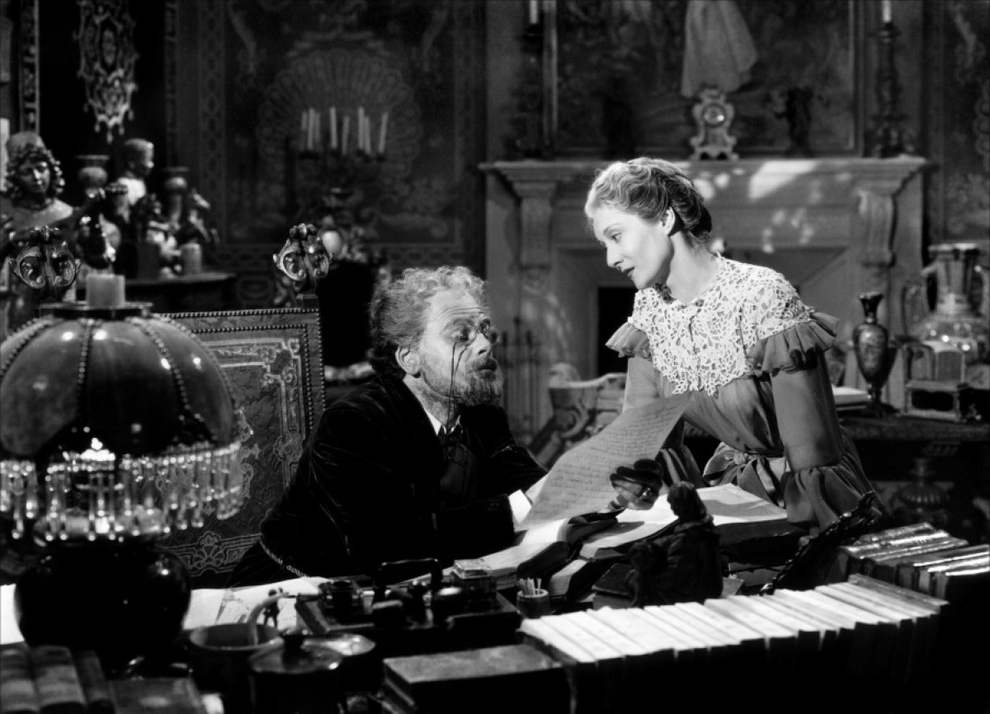
Warner Brothers
Directed by: William Dieterle
Written by: Norman Reilly Raine, Heinz Herald, and Geza Herczeg
The other Oscars it won: Raine, Herald, and Herczeg (Best Screenplay); Joseph Schildkraut (Best Supporting Actor)
What it beat for Best Picture: The Awful Truth, Captains Courageous, Dead End, The Good Earth, In Old Chicago, Lost Horizon, One Hundred Men and a Girl, Stage Door, A Star Is Born
Written by: Norman Reilly Raine, Heinz Herald, and Geza Herczeg
The other Oscars it won: Raine, Herald, and Herczeg (Best Screenplay); Joseph Schildkraut (Best Supporting Actor)
What it beat for Best Picture: The Awful Truth, Captains Courageous, Dead End, The Good Earth, In Old Chicago, Lost Horizon, One Hundred Men and a Girl, Stage Door, A Star Is Born
A tedious slog through Emile Zola’s adult life until the movie gets to the Dreyfus Affair, which brings the film some focus. No mention of anti-Semitism, though. As the scholar Ben Urwand detailed in a 2013 book, The Collaboration: Hollywood’s Pact with Hitler, it was Jack Warner of Warner Bros. himself who ordered the word “Jew” be excised from the screenplay.
78. The Lost Weekend (1945)
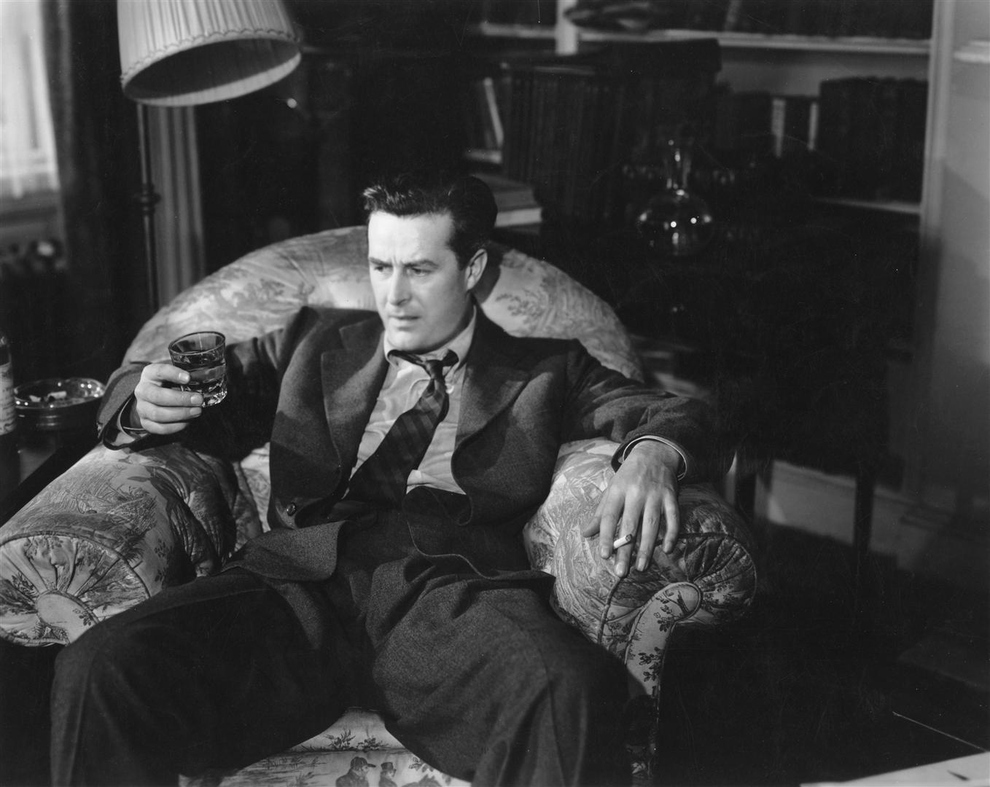
Paramount Pictures
Directed by: Billy Wilder
Written by: Charles Brackett and Billy Wilder
The other Oscars it won: Wilder (Best Director); Brackett and Wilder (Best Adapted Screenplay); Ray Milland (Best Actor)
What it beat for Best Picture: Anchors Aweigh, The Bells of St. Mary’s, Mildred Pierce, Spellbound
Written by: Charles Brackett and Billy Wilder
The other Oscars it won: Wilder (Best Director); Brackett and Wilder (Best Adapted Screenplay); Ray Milland (Best Actor)
What it beat for Best Picture: Anchors Aweigh, The Bells of St. Mary’s, Mildred Pierce, Spellbound
This movie presents a dilemma: How do you judge something now that has aged so poorly, but was provocative and brave at the time? Billy Wilder’s movie about an out-of-control alcoholic (Ray Milland) is an over-the-top melodrama, and, at this point, unintentionally campy. It’s certainly significant, though, both in the history of film and to see how people viewed addiction 70 years ago. Still, you will laugh watching it.
77. Gentleman’s Agreement (1947)
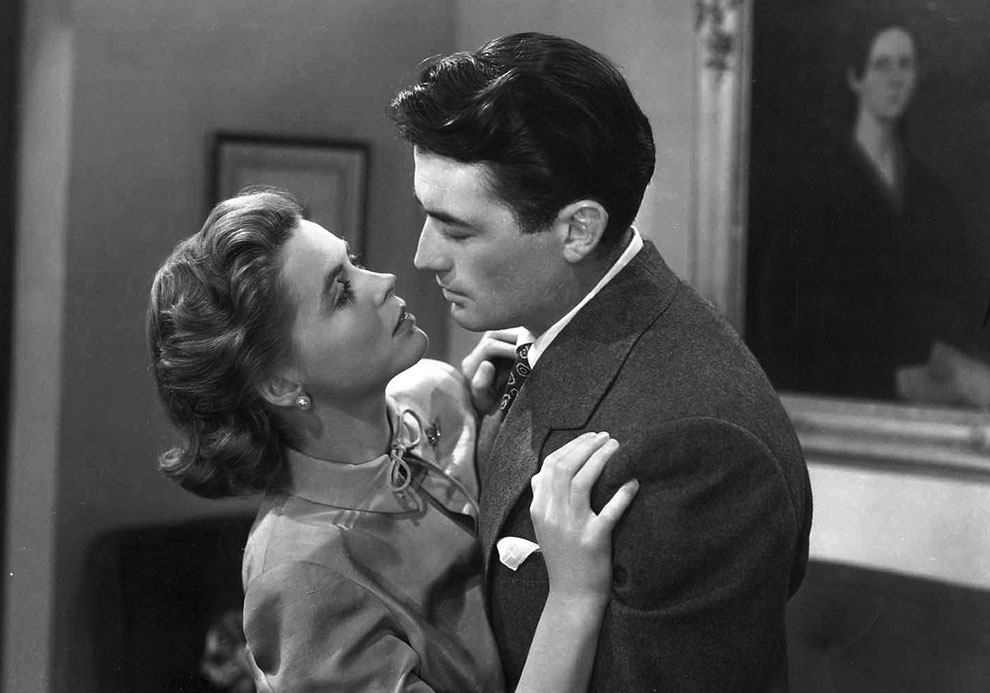
20th Century Fox
Directed by: Elia Kazan
Written by: Moss Hart
The other Oscars it won: Kazan (Best Director); Celeste Holm (Best Supporting Actress)
What it beat for Best Picture: The Bishop’s Wife, Crossfire, Great Expectations, Miracle on 34th Street
Written by: Moss Hart
The other Oscars it won: Kazan (Best Director); Celeste Holm (Best Supporting Actress)
What it beat for Best Picture: The Bishop’s Wife, Crossfire, Great Expectations, Miracle on 34th Street
To the modern viewer, Gentleman’s Agreement goes into the same bucket as The Lost Weekend: It’s an issue movie that was a step forward then. In the case of Gentleman’s Agreement, Gregory Peck plays a journalist who masquerades as a Jew in order to experience and write about anti-Semitism. Yet, as with The Life of Emile Zola, the movie is almost comically tame when confronting controversy directly — and does not mention Hitler or the Holocaust. It’s almost worth watching, if you haven’t yet, to see how bizarre that is.
76. Around the World in 80 Days (1956)
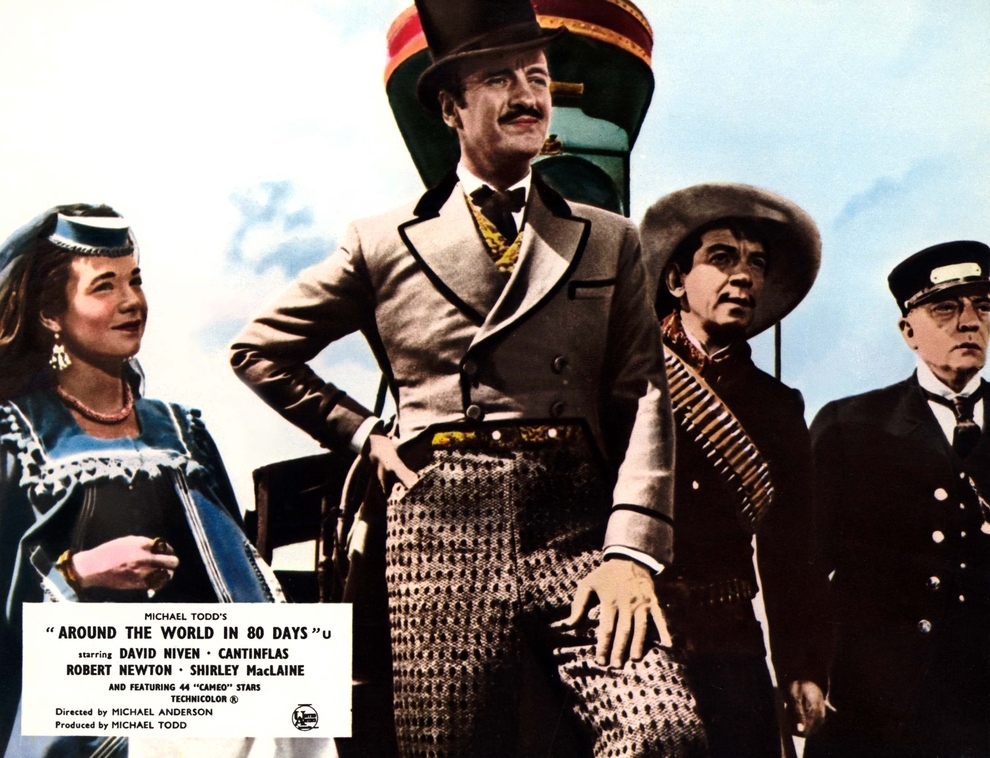
Moviestore Collection / Rex / Rex USA
Directed by: Michael Anderson
Written by: James Poe, John Farrow, and S.J. Perelman
The other Oscars it won: Poe, Farrow, and Perelman (Best Adapted Screenplay); Lionel Lindon (Best Cinematography – Color); Gene Ruggiero and Paul Weatherwax (Best Film Editing); Victor Young (Best Score – Dramatic or Comedy)
What it beat for Best Picture: Friendly Persuasion, Giant, The King and I, The Ten Commandments
Written by: James Poe, John Farrow, and S.J. Perelman
The other Oscars it won: Poe, Farrow, and Perelman (Best Adapted Screenplay); Lionel Lindon (Best Cinematography – Color); Gene Ruggiero and Paul Weatherwax (Best Film Editing); Victor Young (Best Score – Dramatic or Comedy)
What it beat for Best Picture: Friendly Persuasion, Giant, The King and I, The Ten Commandments
This damn movie is three hours long. It also features horrifyingly cringe-inducing ethnic stereotypes from, you know, around the world. But if you are in bed sick with the flu, and this movie is on, you can have fun looking for the crazy cameos, which include Marlene Dietrich and Frank Sinatra, as you slip in and out of consciousness. And in that respect, the movie represents the wrangling achievements of Mike Todd, the producer (of Elizabeth Taylor husband fame). The 1957 Oscars is also notable for two dubious reasons: John Ford’s The Searchers was nominated for zero awards, and the Hollywood blacklist hung over the screenwriting categories. (Both Dalton Trumbo and Michael Wilson, blacklisted writers, were nominated, and could not receive credit.)
75. Dances With Wolves (1990)
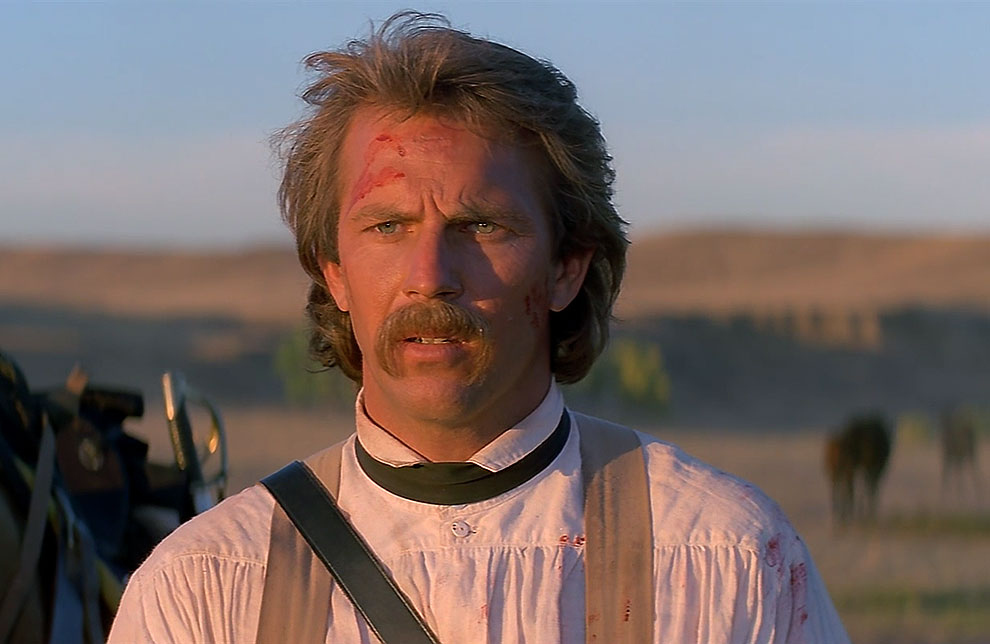
Orion Pictures
Directed by: Kevin Costner
Written by: Michael Blake
The other Oscars it won: Costner (Best Director); Blake (Best Adapted Screenplay); Dean Semler (Best Cinematography); Neil Travis (Best Film Editing); John Barry (Best Original Score); Jeffrey Perkins, Bill W. Benton, Greg Watkins, and Russell Williams II (Best Sound)
What it beat for Best Picture: Awakenings, Ghost, The Godfather Part III, Goodfellas
Written by: Michael Blake
The other Oscars it won: Costner (Best Director); Blake (Best Adapted Screenplay); Dean Semler (Best Cinematography); Neil Travis (Best Film Editing); John Barry (Best Original Score); Jeffrey Perkins, Bill W. Benton, Greg Watkins, and Russell Williams II (Best Sound)
What it beat for Best Picture: Awakenings, Ghost, The Godfather Part III, Goodfellas
Look at those weird nominees for Best Picture: What an awful year! But most important, oh my god, Dances With Wolves beat Goodfellas. Nightmare. It may be hard to remember when Kevin Costner was the biggest star in the United States, but that was the case. And Dances With Wolves, a white-person fantasy about bonding with Native Americans, was his apex: He produced, starred in, and directed (his first time) this film. Time hasn’t been kind to Dances With Wolves — rightly.
74. Out of Africa (1985)
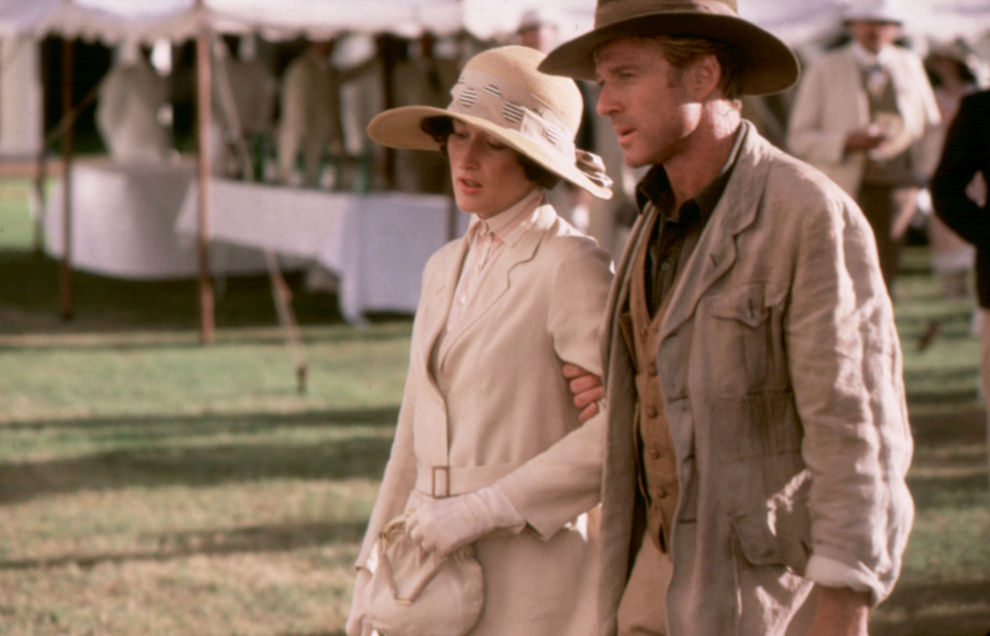
Universal Pictures /Moviestore Collection / Rex / Rex USA
Directed by: Sydney Pollack
Written by: Kurt Luedtke
The other Oscars it won: Pollack (Best Director); Luedtke (Best Adapted Screenplay); David Watkin (Best Cinematography); Stephen Grimes and Josie MacAvin (Best Art Direction); John Barry (Best Original Score); Chris Jenkins, Gary Alexander, Larry Stensvold, and Peter Handford (Best Sound)
What it beat for Best Picture: The Color Purple, Kiss of the Spider Woman, Prizzi’s Honor, Witness
Written by: Kurt Luedtke
The other Oscars it won: Pollack (Best Director); Luedtke (Best Adapted Screenplay); David Watkin (Best Cinematography); Stephen Grimes and Josie MacAvin (Best Art Direction); John Barry (Best Original Score); Chris Jenkins, Gary Alexander, Larry Stensvold, and Peter Handford (Best Sound)
What it beat for Best Picture: The Color Purple, Kiss of the Spider Woman, Prizzi’s Honor, Witness
Have you watched Out of Africa recently? Even when I first saw it, I remember thinking, Is it possible that Robert Redford is actively bad in this movie? Yes. Yes, he is. This film looks ravishing, and its wins for Best Cinematography and Art Direction are more than deserved. Meryl Streep works her ass off here too. But my god, is it boring. I prefer every other nominated movie over Out of Africa, but Ran, the Akira Kurosawa movie that wasn’t in the Best Picture category, was the actual best of the year, I think.
73. The English Patient (1996)
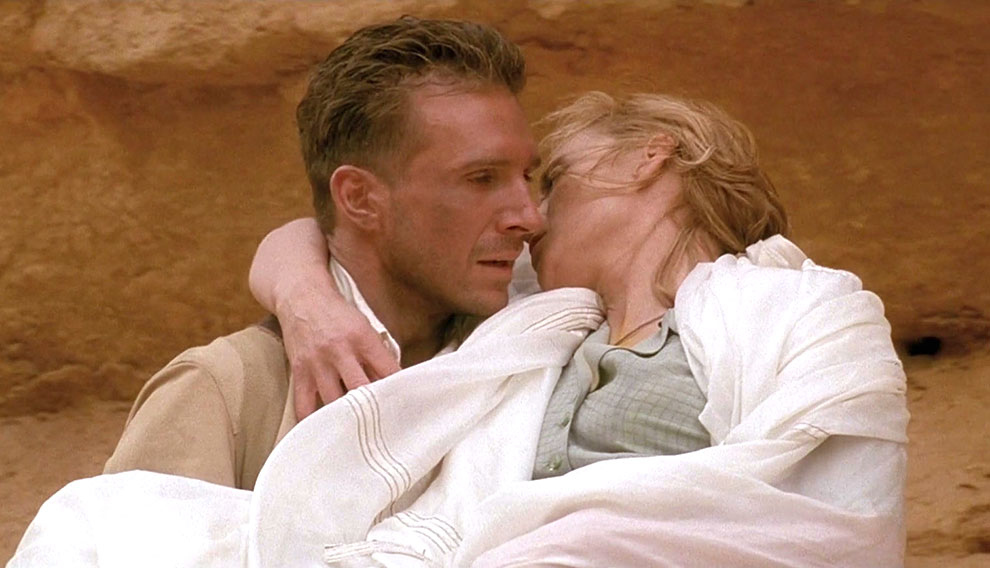
Miramax Films
Directed by: Anthony Minghella
Written by: Anthony Minghella
The other Oscars it won: Minghella (Best Director); Juliette Binoche (Best Supporting Actress); John Seale (Best Cinematography); Stuart Craig and Stephenie McMillan (Best Art Direction); Ann Roth (Best Costume Design); Walter Murch (Best Film Editing); Gabriel Yared (Best Original Score – Dramatic); Murch, Mark Berger, David Parker, and Chris Newman (Best Sound)
What it beat for Best Picture: Fargo, Jerry Maguire, Secrets & Lies, Shine
Written by: Anthony Minghella
The other Oscars it won: Minghella (Best Director); Juliette Binoche (Best Supporting Actress); John Seale (Best Cinematography); Stuart Craig and Stephenie McMillan (Best Art Direction); Ann Roth (Best Costume Design); Walter Murch (Best Film Editing); Gabriel Yared (Best Original Score – Dramatic); Murch, Mark Berger, David Parker, and Chris Newman (Best Sound)
What it beat for Best Picture: Fargo, Jerry Maguire, Secrets & Lies, Shine
There will be those who fault me for ranking this movie so low. And there are things I do love about The English Patient — mostly, Ralph Fiennes’ and Kristin Scott Thomas’ performances. But I’m putting it in proximity to Out of Africa because I associate them in bloat and indulgence. What should have won this year? The First Wives Club, clearly! Just kidding. (No, I am not.) But of the movies nominated, I favor Secrets & Lies. And Fargo. Maybe even Jerry Maguire!
72. Grand Hotel (1932)
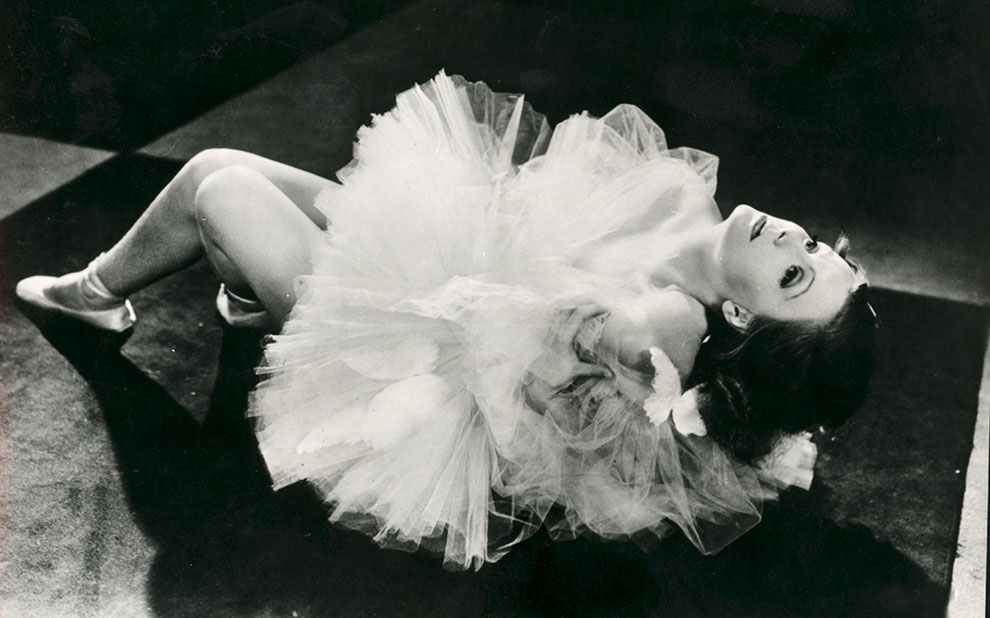
MGM / Moviestore Collection / Rex/ REXUSA
Directed by: Edmund Goulding
Written by: William A. Drake and Béla Balázs
The other Oscars it won: Not even nominated
What it beat for Best Picture: Arrowsmith, Bad Girl, The Champ, Five Star Final, One Hour With You, Shanghai Express, The Smiling Lieutenant
Written by: William A. Drake and Béla Balázs
The other Oscars it won: Not even nominated
What it beat for Best Picture: Arrowsmith, Bad Girl, The Champ, Five Star Final, One Hour With You, Shanghai Express, The Smiling Lieutenant
Still fascinating to watch because of the stars in it (Joan Crawford, Greta Garbo, John Barrymore, and Lionel Barrymore), and more of a movie the way we currently think of them than any of the other early winners. If this movie had been made 15 or 20 years later, it would have been soapy; instead, it bores. One bit of trivia: This is the only Best Picture winner ever not to receive any other nominations.
71. Gladiator (2000)

DreamWorks SKG
Directed by: Ridley Scott
Written by: David Franzoni, John Logan, and William Nicholson
The other Oscars it won: Russell Crowe (Best Actor); Janty Yates (Best Costume Design); Scott Millan, Bob Beemer, and Ken Weston (Best Sound); John Nelson, Neil Corbould, Tim Burke, and Rob Harvey (Best Visual Effects)
What it beat for Best Picture: Chocolat; Crouching Tiger, Hidden Dragon; Erin Brockovich; Traffic
Written by: David Franzoni, John Logan, and William Nicholson
The other Oscars it won: Russell Crowe (Best Actor); Janty Yates (Best Costume Design); Scott Millan, Bob Beemer, and Ken Weston (Best Sound); John Nelson, Neil Corbould, Tim Burke, and Rob Harvey (Best Visual Effects)
What it beat for Best Picture: Chocolat; Crouching Tiger, Hidden Dragon; Erin Brockovich; Traffic
How did this happen?
70. Mrs. Miniver (1942)
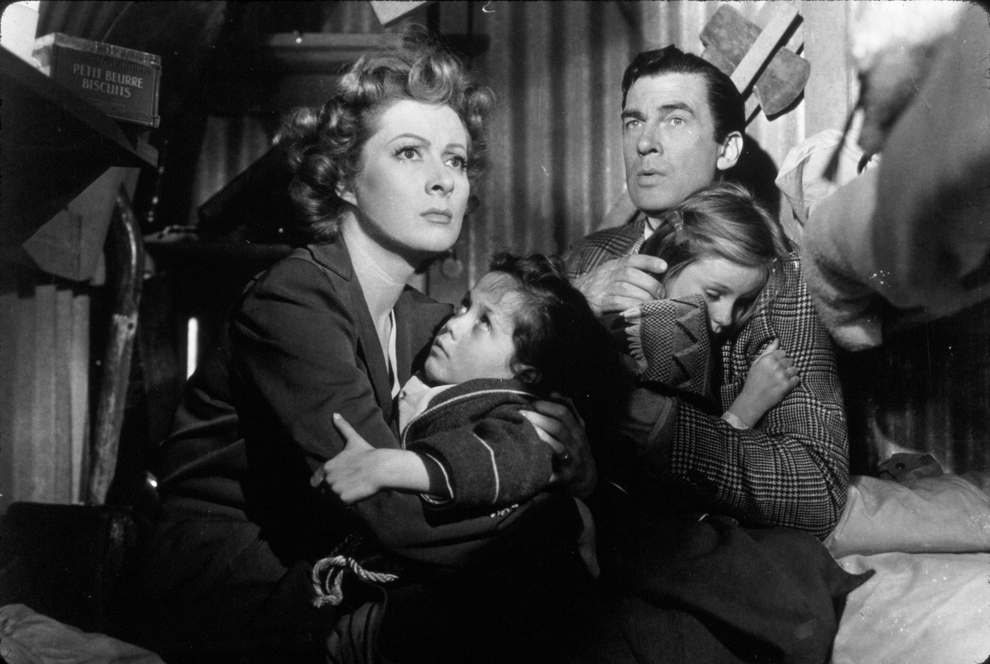
MGM / SNAP / Rex / REX USA
Directed by: William Wyler
Written by: Arthur Wimperis, George Froeschel, James Hilton, and Claudine West
The other Oscars it won: Wyler (Best Director); Wimperis, Froeschel, Hilton, and West (Best Screenplay); Greer Garson (Best Actress); Teresa Wright (Best Supporting Actress); Joseph Ruttenberg (Best Cinematography – Black and White)
What it beat for Best Picture: The Invaders, Kings Row, The Magnificent Ambersons, The Pied Piper, The Pride of the Yankees, Random Harvest, The Talk of the Town, Wake Island, Yankee Doodle Dandy
Written by: Arthur Wimperis, George Froeschel, James Hilton, and Claudine West
The other Oscars it won: Wyler (Best Director); Wimperis, Froeschel, Hilton, and West (Best Screenplay); Greer Garson (Best Actress); Teresa Wright (Best Supporting Actress); Joseph Ruttenberg (Best Cinematography – Black and White)
What it beat for Best Picture: The Invaders, Kings Row, The Magnificent Ambersons, The Pied Piper, The Pride of the Yankees, Random Harvest, The Talk of the Town, Wake Island, Yankee Doodle Dandy
The story of Mrs. Miniver served as almost literal propaganda to bolster British spirits during World War II. So it’s hard to judge the movie now on the usual merits. Greer Garson is great, though.
69. Driving Miss Daisy (1989)
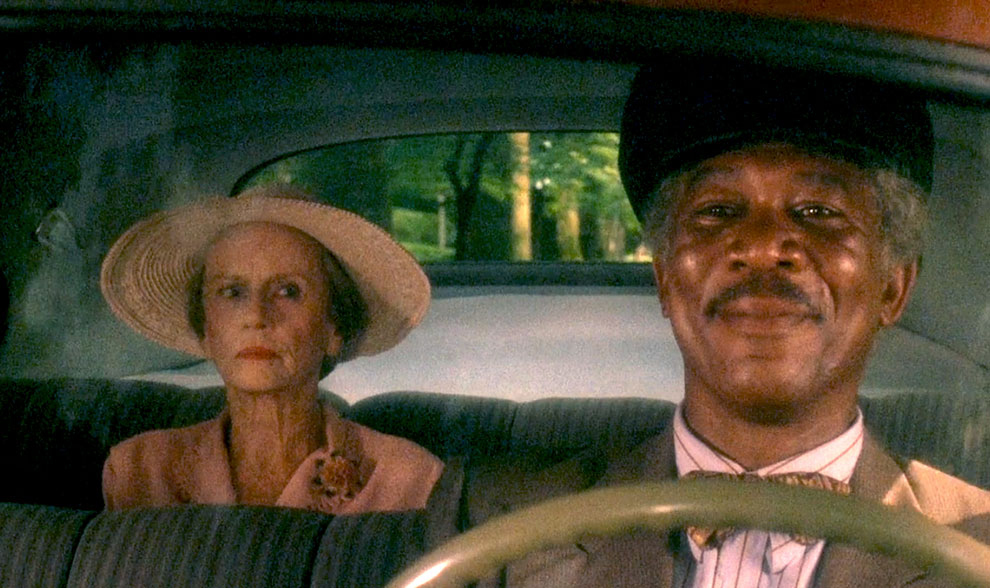
Majestic Films
Directed by: Bruce Beresford
Written by: Alfred Uhry
The other Oscars it won: Uhry (Best Adapted Screenplay); Jessica Tandy (Best Actress); Manlio Rocchetti, Lynn Barber, and Kevin Haney (Best Makeup)
What it beat for Best Picture: Born on the Fourth of July, Dead Poets Society, Field of Dreams, My Left Foot
Written by: Alfred Uhry
The other Oscars it won: Uhry (Best Adapted Screenplay); Jessica Tandy (Best Actress); Manlio Rocchetti, Lynn Barber, and Kevin Haney (Best Makeup)
What it beat for Best Picture: Born on the Fourth of July, Dead Poets Society, Field of Dreams, My Left Foot
There are, naturally, exceptions to what I’m about to assert: But the ’80s were a total mess, movie-wise. And Oscars-wise. Driving Miss Daisy is an example of a film of the time that was well-reviewed (check out Roger Ebert’s loving words for it here) and had wonderful performances (both Jessica Tandy and Morgan Freeman were great, of course). But its racial politics do not work anymore, and this movie is not “Best.” (Before you say that the Oscars rarely are the “Best,” and look at this whole list, and what do I expect? Yes, I agree. But let’s just agree to hold the Academy to the standards of the best movies on this list, or else why take the Academy Awards seriously at all? Onward!)
68. Gandhi (1982)

Columbia Pictures/ Moviestore Collection / Rex / REX USA
Directed by: Richard Attenborough
Written by: John Briley
The other Oscars it won: Attenborough (Best Director); Briley (Best Original Screenplay); Ben Kingsley (Best Actor); Billy Williams and Ronnie Taylor (Best Cinematography); Stuart Craig, Bob Laing, and Michael Seirton (Best Art Direction); John Mollo, and Bhanu Athaiya (Best Costume Design); John Bloom (Best Film Editing)
What it beat for Best Picture: E.T. The Extra-Terrestrial, Missing, Tootsie, The Verdict
Written by: John Briley
The other Oscars it won: Attenborough (Best Director); Briley (Best Original Screenplay); Ben Kingsley (Best Actor); Billy Williams and Ronnie Taylor (Best Cinematography); Stuart Craig, Bob Laing, and Michael Seirton (Best Art Direction); John Mollo, and Bhanu Athaiya (Best Costume Design); John Bloom (Best Film Editing)
What it beat for Best Picture: E.T. The Extra-Terrestrial, Missing, Tootsie, The Verdict
While there are things to admire about Gandhi — Ben Kingsley’s performance, Richard Attenborough’s ambitious scope — the movie is preachy and tedious. And not only did it beat E.T., but Tootsie is now considered a classic comedy. It’s also worth mentioning that Blade Runner, a movie much more admired now than when it was released, also premiered in 1982 (and it got two technical nominations).
67. Amadeus (1984)
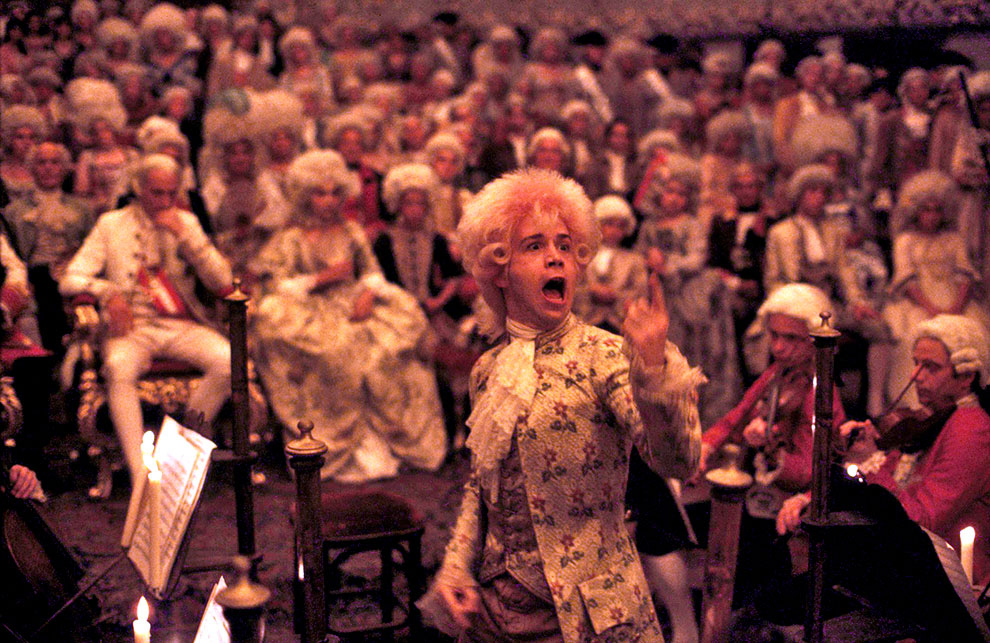
Orion Pictures
Directed by: Miloš Forman
Written by: Peter Shaffer
The other Oscars it won: Forman (Best Director); Shaffer (Best Adapted Screenplay); F. Murray Abraham (Best Actor); Patrizia von Brandenstein and Karel Černý (Best Art Direction); Theodor Pistek (Best Costume Design); Paul LeBlanc and Dick Smith (Best Makeup); Mark Berger, Tom Scott, Todd Boekelheide, and Chris Newman (Best Sound)
What it beat for Best Picture: The Killing Fields, A Passage to India, Places in the Heart, A Soldier’s Story
Written by: Peter Shaffer
The other Oscars it won: Forman (Best Director); Shaffer (Best Adapted Screenplay); F. Murray Abraham (Best Actor); Patrizia von Brandenstein and Karel Černý (Best Art Direction); Theodor Pistek (Best Costume Design); Paul LeBlanc and Dick Smith (Best Makeup); Mark Berger, Tom Scott, Todd Boekelheide, and Chris Newman (Best Sound)
What it beat for Best Picture: The Killing Fields, A Passage to India, Places in the Heart, A Soldier’s Story
We’re not even close to being done with these tiresome period movies from the ’80s. Look at the nominations at the 1985 Oscars: Not a single one was set in the present. Amadeus did give us the resonant Salieri vs. Mozart dynamic, pitting the overly serious workman against the irritating genius — I’m feeling more like Salieri with every entry!
66. The Last Emperor (1987)
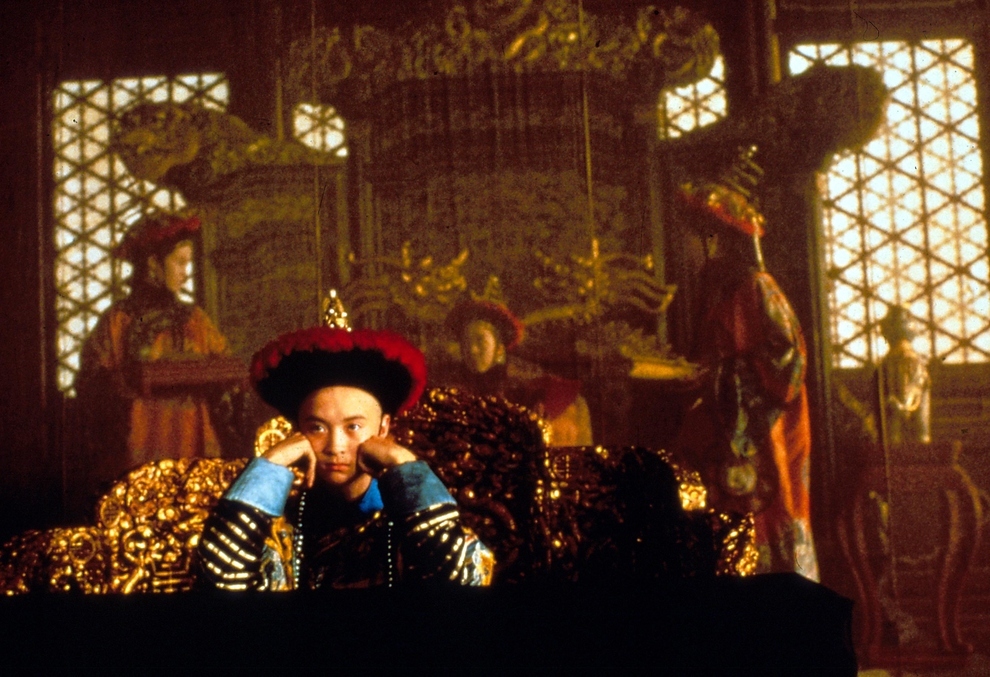
Moviestore Collection / Rex / REX USA
Directed by: Bernardo Bertolucci
Written by: Bernardo Bertolucci and Mark Peploe
The other Oscars it won: Bertolucci (Best Director); Bertolucci and Peploe (Best Adapted Screenplay); Vittorio Storaro (Best Cinematography); Ferdinando Scarfiotti, Bruno Cesari, and Osvaldo Desideri (Best Art Direction); James Acheson (Best Costume Design); Gabriella Cristiani (Best Film Editing); Ryûichi Sakamoto, David Byrne, and Cong Su (Best Original Score); Bill Rowe and Ivan Sharrock (Best Sound)
What it beat for Best Picture: Broadcast News, Fatal Attraction, Hope and Glory, Moonstruck
Written by: Bernardo Bertolucci and Mark Peploe
The other Oscars it won: Bertolucci (Best Director); Bertolucci and Peploe (Best Adapted Screenplay); Vittorio Storaro (Best Cinematography); Ferdinando Scarfiotti, Bruno Cesari, and Osvaldo Desideri (Best Art Direction); James Acheson (Best Costume Design); Gabriella Cristiani (Best Film Editing); Ryûichi Sakamoto, David Byrne, and Cong Su (Best Original Score); Bill Rowe and Ivan Sharrock (Best Sound)
What it beat for Best Picture: Broadcast News, Fatal Attraction, Hope and Glory, Moonstruck
There was an actual law on the books during the 1980s that every movie that won the Best Picture Oscar had to be 26 hours long. The Last Emperor was 26 hours long; Broadcast News was not. (Did you know that Harry and the Hendersons won an Academy Award? Rick Baker won this year for Best Makeup. Belated congratulations, Rick Baker!)
65. A Beautiful Mind (2001)
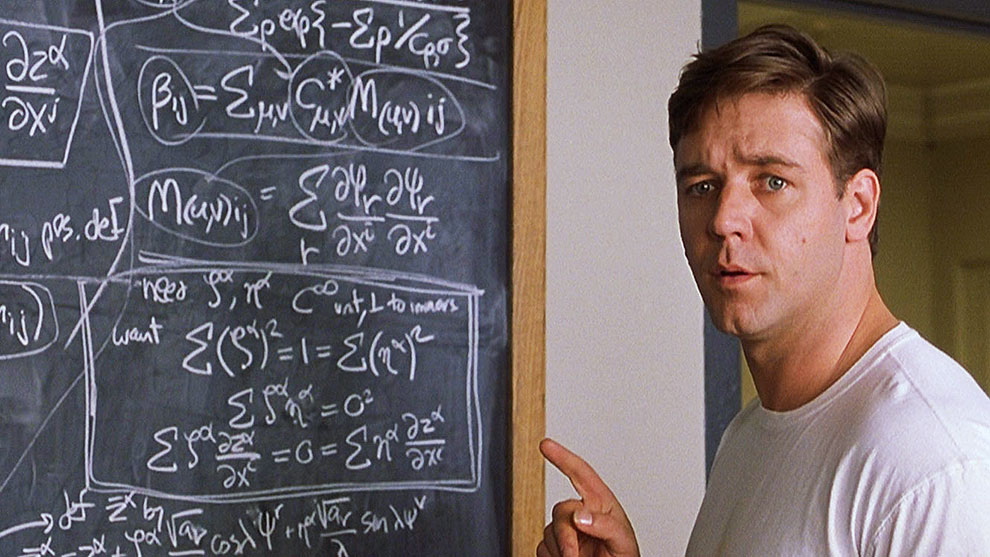
Universal Pictures
Directed by: Ron Howard
Written by: Akiva Goldsman
The other Oscars it won: Howard (Best Director); Goldsman (Best Adapted Screenplay); Jennifer Connelly (Best Supporting Actress)
What it beat for Best Picture: Gosford Park, In the Bedroom, The Lord of the Rings: The Fellowship of the Ring, Moulin Rouge
Written by: Akiva Goldsman
The other Oscars it won: Howard (Best Director); Goldsman (Best Adapted Screenplay); Jennifer Connelly (Best Supporting Actress)
What it beat for Best Picture: Gosford Park, In the Bedroom, The Lord of the Rings: The Fellowship of the Ring, Moulin Rouge
The year 2001 saw the releases of a number of movies I prefer over A Beautiful Mind — including the first Lord of the Rings and Gosford Park, which were nominated, and Memento, which was not. But one notable thing about this year was what A Beautiful Mind went through during Oscar season, which included lots of stories about John Nash, the real man whom Russell Crowe played in the movie. There were pieces about him being an anti-Semite and bisexual, all of which were likely disseminated to diminish the movie’s chances of winning. (Read this New York Times story if you’re interested in knowing more.) Clearly, it didn’t work.
64. Forrest Gump (1994)
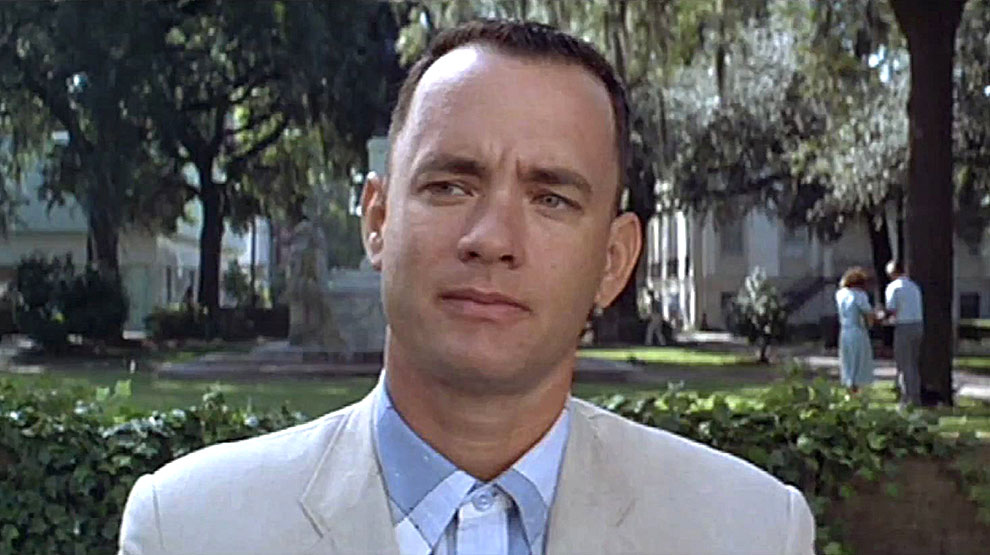
Paramount Pictures
Directed by: Robert Zemeckis
Written by: Eric Roth
The other Oscars it won: Zemeckis (Best Director); Roth (Best Adapted Screenplay); Tom Hanks (Best Actor); Arthur Schmidt (Best Film Editing); Ken Ralston, George Murphy, Stephen Rosenbaum, and Allen Hall (Best Visual Effects)
What it beat for Best Picture: Four Weddings and a Funeral, Pulp Fiction, Quiz Show, The Shawshank Redemption
Written by: Eric Roth
The other Oscars it won: Zemeckis (Best Director); Roth (Best Adapted Screenplay); Tom Hanks (Best Actor); Arthur Schmidt (Best Film Editing); Ken Ralston, George Murphy, Stephen Rosenbaum, and Allen Hall (Best Visual Effects)
What it beat for Best Picture: Four Weddings and a Funeral, Pulp Fiction, Quiz Show, The Shawshank Redemption
While there are plenty of movies I dislike more than Forrest Gump, I can’t think of many that I found to be as culturally damaging. And not because the whole country was saying things like, “Stupid is as stupid does” for a few years. (Which was awful.) But because telling the story of American upheaval during Vietnam and the Civil Rights movement through the perspective of a Southern white man with an IQ of 75, Forrest Gump managed to distill the most important, meaningful, brave, countercultural things that happened in the second half of the 20th century into some fast-food-like McRevolution, packaged and sold so that everyone (even Forrest!) could understand. And when I start thinking about the Jenny character (played by Robin Wright), the promiscuous, drug-addicted hippie who contracts an illness the movie chooses not to name as AIDS for some reason, I freak out. It’s hard to play a character as exaggerated as Forrest, and while someone like Dustin Hoffman pulls it off in Rain Man, Tom Hanks — who is often nuanced — falls into immediate caricature. So why is Forrest Gump not ranked even lower, then? Because it provoked fruitful conversations, no matter how maddening it is — and that is a gift movies packed with ideas give us, even if I find those ideas repellent. Beating Pulp Fiction, though? I mean, of course it did. But come on. (And I’m sure partisans of The Shawshank Redemption have some things to say about the 1995 Oscars as well.)
63. Mutiny on the Bounty (1935)
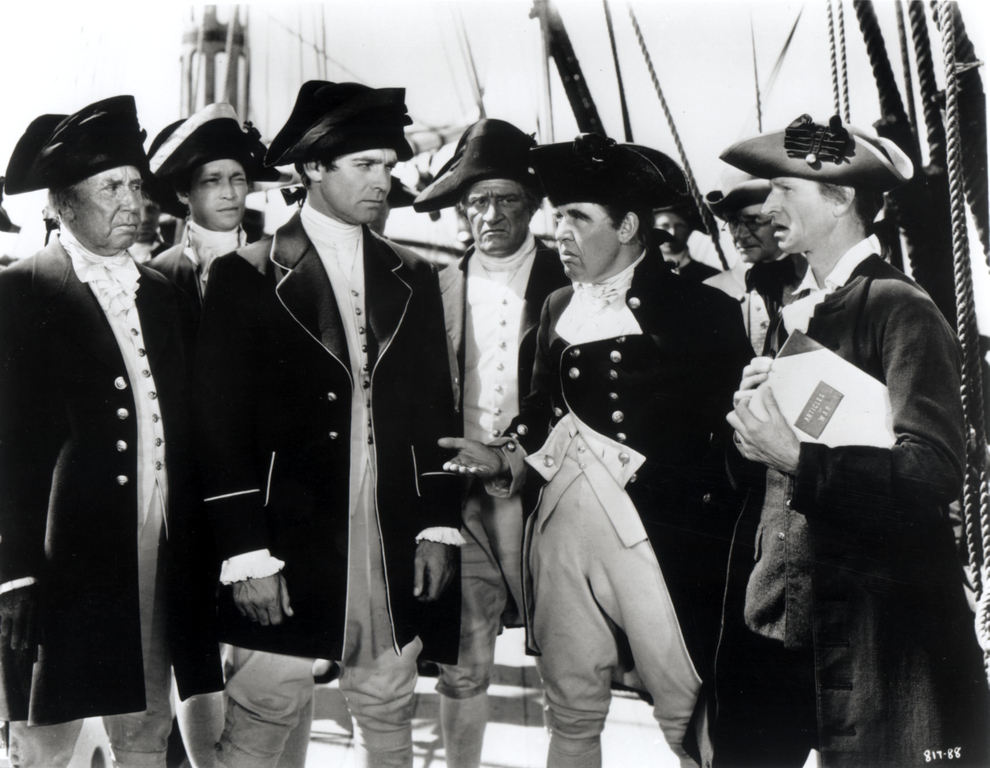
Moviestore Collection / Rex / REX USA
Directed by: Frank Lloyd
Written by: Jules Furthman, Talbot Jennings, and Carey Wilson
The other Oscars it won: None
What it beat for Best Picture: Alice Adams, Broadway Melody of 1936, Captain Blood, David Copperfield, The Informer, Les Misérables, The Lives of a Bengal Lancer, A Midsummer Night’s Dream, Naughty Marietta, Ruggles of Red Gap, Top Hat
Written by: Jules Furthman, Talbot Jennings, and Carey Wilson
The other Oscars it won: None
What it beat for Best Picture: Alice Adams, Broadway Melody of 1936, Captain Blood, David Copperfield, The Informer, Les Misérables, The Lives of a Bengal Lancer, A Midsummer Night’s Dream, Naughty Marietta, Ruggles of Red Gap, Top Hat
This two-hour-plus movie from 1935 isn’t the easiest to watch now, but it’s worth it for Charles Laughton’s scenery chewing as Captain Bligh. Also, apparently Laughton and co-star Clark Gable hated each other and Laughton would do imitations of Joan Crawford on the set? Amazing.
62. Going My Way (1944)
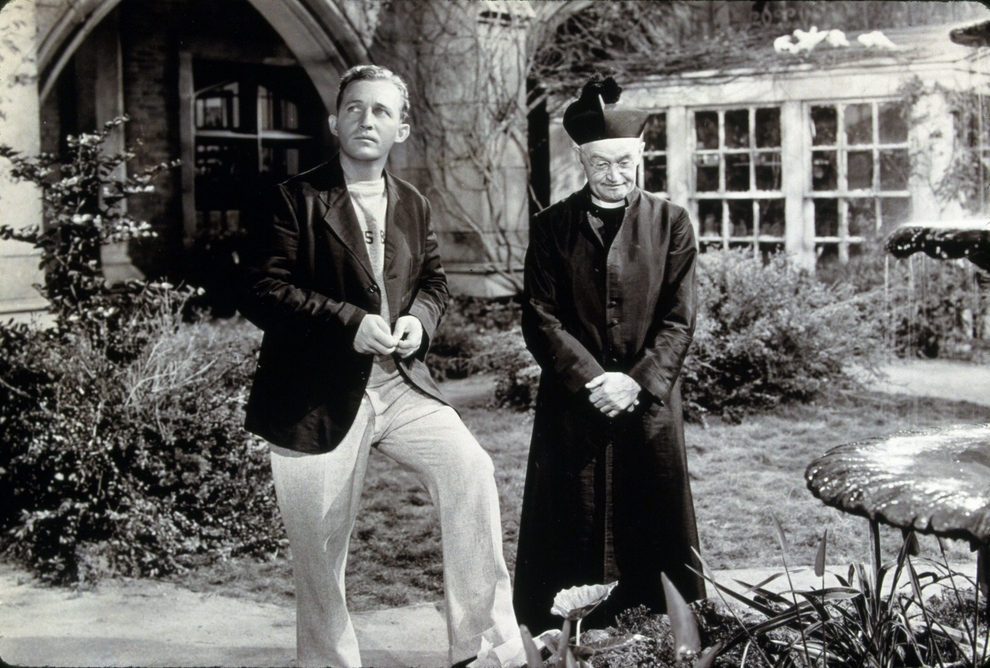
Paramount Pictures /SNAP / Rex/ REX USA
Directed by: Leo McCarey
Written by: Frank Butler and Frank Cavett; Story by Leo McCarey
The other Oscars it won: McCarey (Best Director); McCarey (Best Original Story); Butler and Cavett (Best Screenplay); Bing Crosby (Best Actor); Barry Fitzgerald (Best Supporting Actor); James Van Heusen and Johnny Burke (Best Original Song)
What it beat for Best Picture: Double Indemnity, Gaslight, Since You Went Away, Wilson
Written by: Frank Butler and Frank Cavett; Story by Leo McCarey
The other Oscars it won: McCarey (Best Director); McCarey (Best Original Story); Butler and Cavett (Best Screenplay); Bing Crosby (Best Actor); Barry Fitzgerald (Best Supporting Actor); James Van Heusen and Johnny Burke (Best Original Song)
What it beat for Best Picture: Double Indemnity, Gaslight, Since You Went Away, Wilson
It was a huge hit at the time, and the peak of Bing Crosby’s career. Yet the amiable Going My Way has been largely swept from Oscar history. Strangely, the sequel, 1945’s The Bells of St. Mary’s, in which Crosby returns as Father O’Malley, might be a more familiar title.
61. Hamlet (1948)
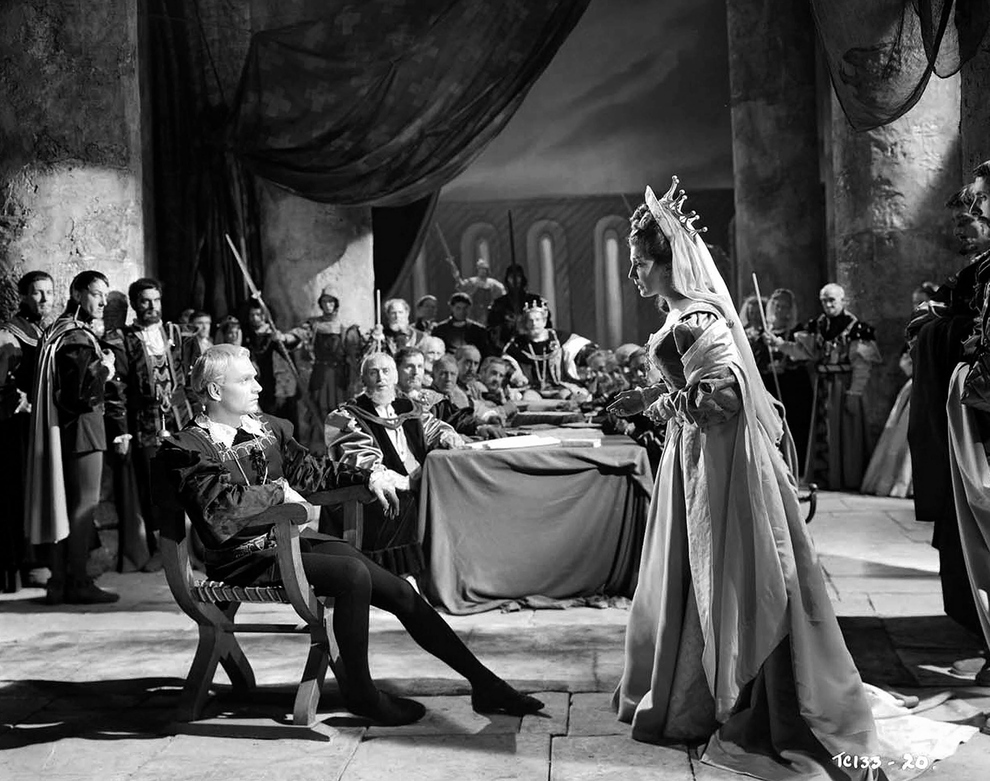
Moviestore / Rex / REX USA
Directed by: Laurence Olivier
Written by: Laurence Olivier
The other Oscars it won: Olivier (Best Actor); Roger K. Furse and Carmen Dillon (Best Art Direction – Black and White); Furse (Best Costume Design – Black and White)
What it beat for Best Picture: Johnny Belinda, The Red Shoes, The Snake Pit, The Treasure of the Sierra Madre
Written by: Laurence Olivier
The other Oscars it won: Olivier (Best Actor); Roger K. Furse and Carmen Dillon (Best Art Direction – Black and White); Furse (Best Costume Design – Black and White)
What it beat for Best Picture: Johnny Belinda, The Red Shoes, The Snake Pit, The Treasure of the Sierra Madre
While it’s certainly worth watching Laurence Olivier’s interpretation of Hamlet, there are no great filmed versions of Shakespeare’s best play. This truncated script does not change my mind.
60. West Side Story (1961)
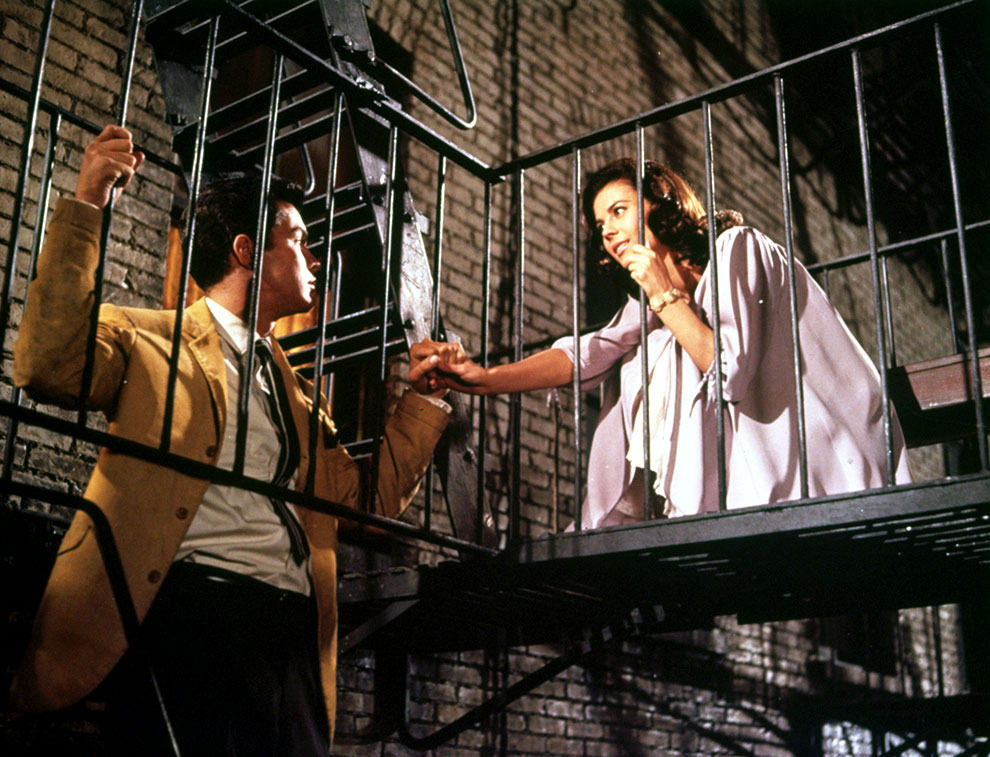
SNAP / Rex/REX USA
Directed by: Robert Wise and Jerome Robbins
Written by: Ernest Lehman
The other Oscars it won: Wise and Robbins (Best Director); George Chakiris (Best Supporting Actor); Rita Moreno (Best Supporting Actress); Daniel L. Fapp (Best Cinematography – Color); Boris Leven and Victor A. Gangelin (Best Art Direction – Color); Irene Sharaff (Best Costume Design – Color); Thomas Stanford (Best Film Editing); Saul Chaplin, Johnny Green, Sid Ramin, and Irwin Kostal (Best Score – Musical); Fred Hynes, Todd-AO Sound Department, Gordon E. Sawyer, Samuel Goldwyn Studio Sound Department (Best Sound)
What it beat for Best Picture: Fanny, The Guns of Navarone, The Hustler, Judgment at Nuremberg
Written by: Ernest Lehman
The other Oscars it won: Wise and Robbins (Best Director); George Chakiris (Best Supporting Actor); Rita Moreno (Best Supporting Actress); Daniel L. Fapp (Best Cinematography – Color); Boris Leven and Victor A. Gangelin (Best Art Direction – Color); Irene Sharaff (Best Costume Design – Color); Thomas Stanford (Best Film Editing); Saul Chaplin, Johnny Green, Sid Ramin, and Irwin Kostal (Best Score – Musical); Fred Hynes, Todd-AO Sound Department, Gordon E. Sawyer, Samuel Goldwyn Studio Sound Department (Best Sound)
What it beat for Best Picture: Fanny, The Guns of Navarone, The Hustler, Judgment at Nuremberg
When I imagine people yelling at me in the comments section of this list, I feel that West Side Story might be among the yelliest. Rita Moreno is exciting, and steals the movie. The dancing is unparalleled. And the music is — well, it’s the magical music from West Side Story! But Natalie Wood is terrible, so is Richard Beymer, and this movie is not the way you might remember it in your mind. Also, Judgment at Nuremberg is one of my favorites.
59. Tom Jones (1963)
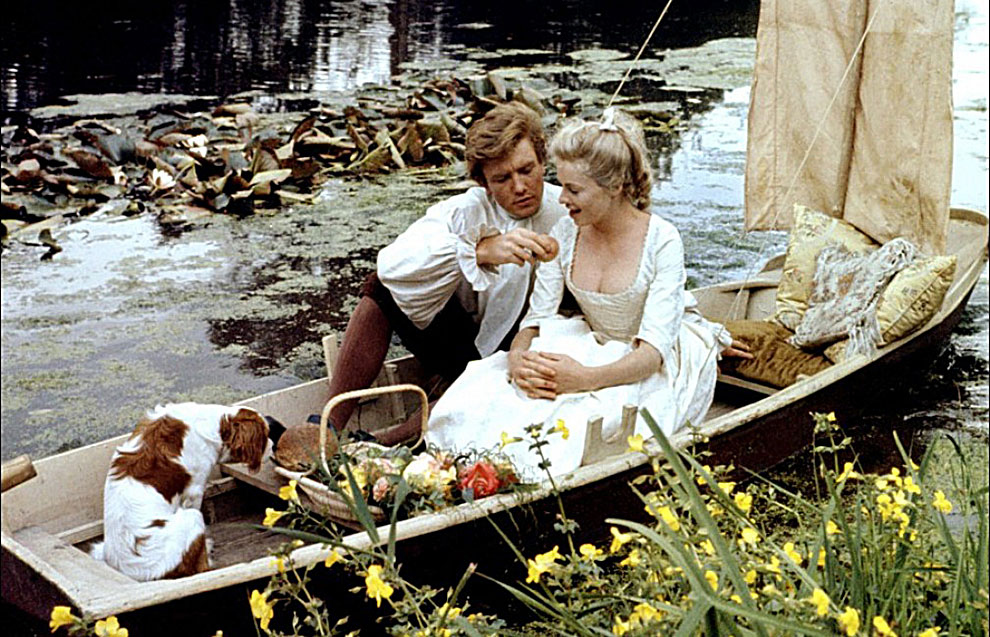
Woodfall Film Productions
Directed by: Tony Richardson
Written by: John Osborne
The other Oscars it won: Richardson (Best Director); Osborne (Best Adapted Screenplay); John Addison (Best Substantially Original Score)
What it beat for Best Picture: America, America, Cleopatra, How the West Was Won, Lilies of the Field
Written by: John Osborne
The other Oscars it won: Richardson (Best Director); Osborne (Best Adapted Screenplay); John Addison (Best Substantially Original Score)
What it beat for Best Picture: America, America, Cleopatra, How the West Was Won, Lilies of the Field
Have you seen Tom Jones? Have you heard of Tom Jones? It’s an odd movie, and one of the few comedies on this list. Tony Richardson’s stylish and anachronistic direction of Henry Fielding’s 18th century novel makes this movie light fun. (For those keeping track, Federico Fellini’s 8 1/2 was also released in 1963.)
58. An American in Paris (1951)
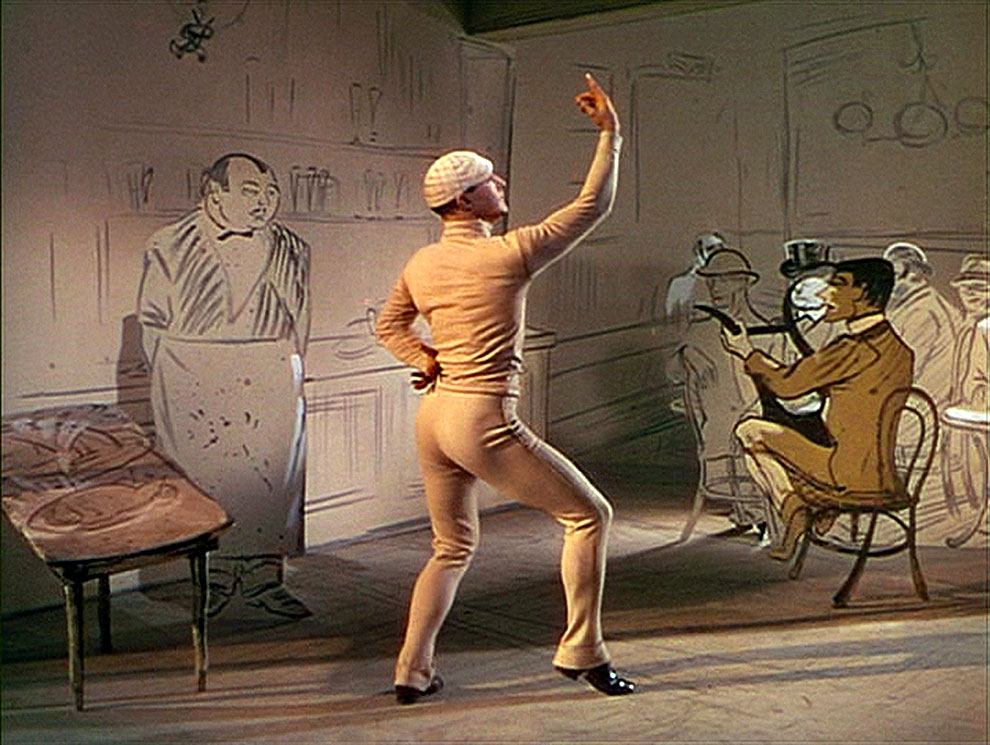
MGM
Directed by: Vincente Minnelli
Written by: Alan Jay Lerner
The other Oscars it won: Lerner (Best Screenplay); Alfred Gilks and John Alton (Best Cinematography – Color); Cedric Gibbons, Preston Ames, Edwin B. Willis, and Keogh Gleason (Best Art Direction – Color); Orry-Kelly, Walter Plunkett, and Irene Sharaff (Best Costume Design – Color); Johnny Green and Saul Chaplin (Best Score — Musical)
What it beat for Best Picture: Decision Before Dawn, A Place in the Sun, Quo Vadis, A Streetcar Named Desire
Written by: Alan Jay Lerner
The other Oscars it won: Lerner (Best Screenplay); Alfred Gilks and John Alton (Best Cinematography – Color); Cedric Gibbons, Preston Ames, Edwin B. Willis, and Keogh Gleason (Best Art Direction – Color); Orry-Kelly, Walter Plunkett, and Irene Sharaff (Best Costume Design – Color); Johnny Green and Saul Chaplin (Best Score — Musical)
What it beat for Best Picture: Decision Before Dawn, A Place in the Sun, Quo Vadis, A Streetcar Named Desire
The music, by George and Ira Gershwin, is, of course, still wonderful. Any time Gene Kelly is dancing on screen, all is right with the world. And the movie’s famous closing, an 18-minute musical number, is impressive and daring. Yet there’s something sour about An American in Paris — perhaps Kelly’s character didn’t always seem like such a jerk, but he does to modern eyes. It was a shock at the time that this movie won Best Picture, given that it was up against A Place in the Sun and A Streetcar Named Desire. Those movies have aged better than this one has, and so has the similar Kelly classic Singin’ in the Rain, which came out a year later.
57. How Green Was My Valley (1941)
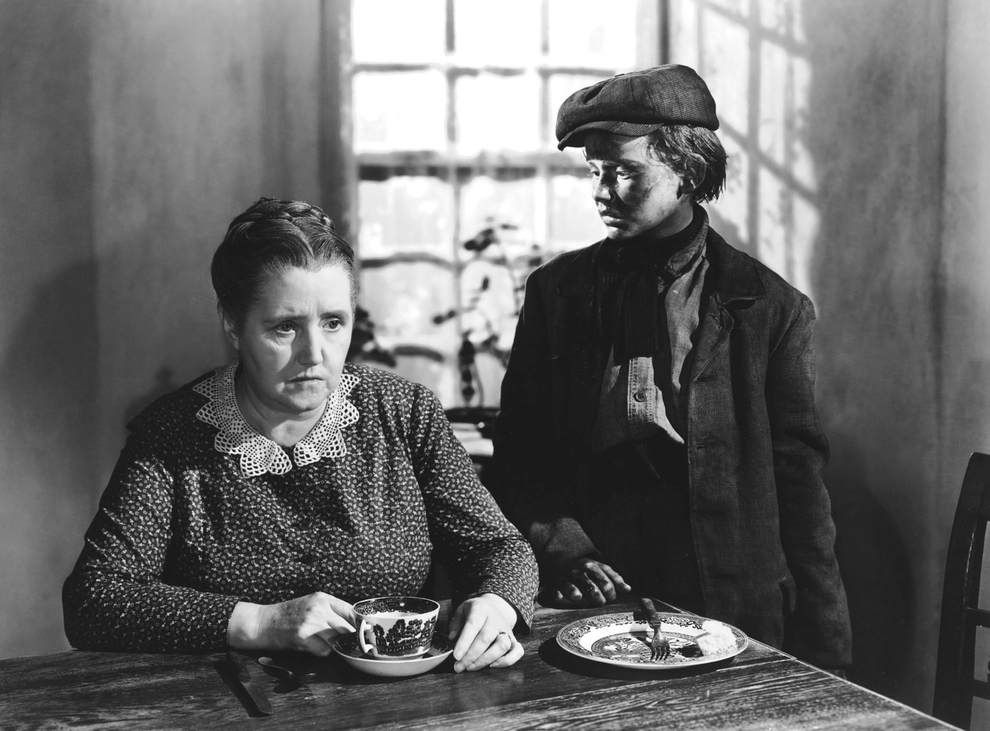
Moviestore Collection / Rex/ REX USA
Directed by: John Ford
Written by: Philip Dunne
The other Oscars it won: Ford (Best Director); Donald Crisp (Best Supporting Actor); Atrhur C. Miller (Best Cinematography – Black and White); Richard Day, Nathan Juran, and Thomas Little (Best Art Direction – Black and White)
What it beat for Best Picture: Blossoms in the Dust, Citizen Kane, Here Comes Mr. Jordan, Hold Back the Dawn, The Little Foxes, The Maltese Falcon, One Foot in Heaven, Sergeant York, Suspicion
Written by: Philip Dunne
The other Oscars it won: Ford (Best Director); Donald Crisp (Best Supporting Actor); Atrhur C. Miller (Best Cinematography – Black and White); Richard Day, Nathan Juran, and Thomas Little (Best Art Direction – Black and White)
What it beat for Best Picture: Blossoms in the Dust, Citizen Kane, Here Comes Mr. Jordan, Hold Back the Dawn, The Little Foxes, The Maltese Falcon, One Foot in Heaven, Sergeant York, Suspicion
Because How Green Was My Valley beat Citizen Kane at the 1942 Oscars, it is often called one of the worst Best Pictures of all-time. The anger is understandable — and The Maltese Falcon is also a better movie than How Green Was My Valley. But it was directed by John Ford. And features little Roddy McDowell! As a result, scientists have proven that How Green Was My Valley is, in fact, the 30th worst Best Picture of all-time. (I am the “scientists” in this instance using methods that I will reveal in a study to be made public at a future date.)
56. You Can’t Take It With You (1938)
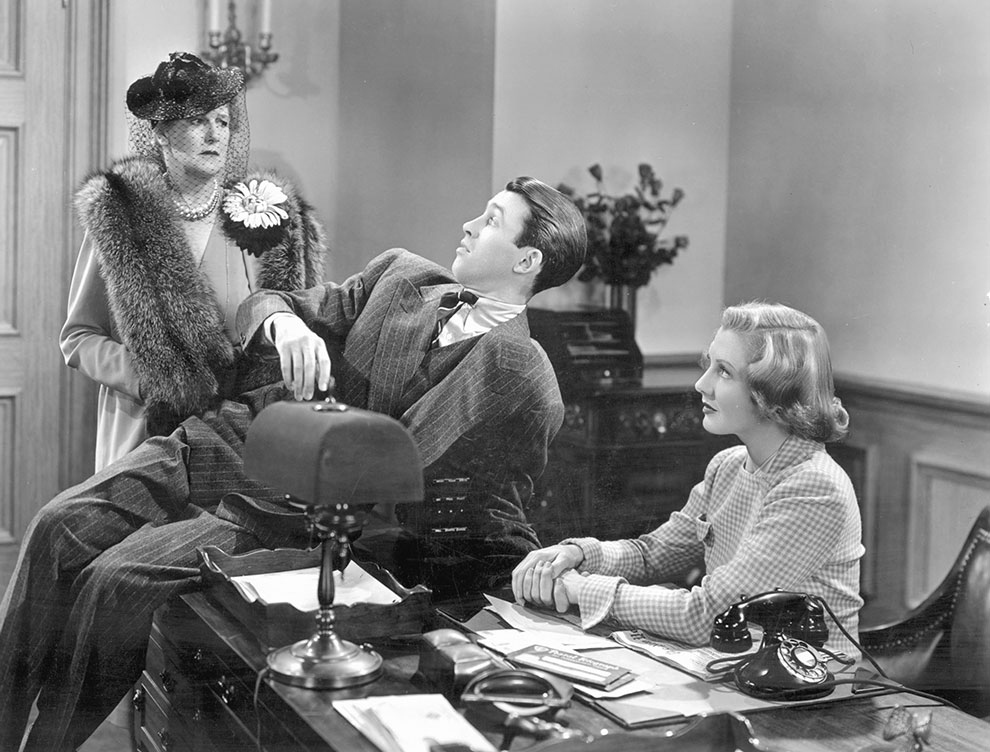
Moviestore Collection / Rex/ REX USA
Directed by: Frank Capra
Written by: Robert Riskin
The other Oscars it won: Capra (Best Director)
What it beat for Best Picture: The Adventures of Robin Hood, Alexander’s Ragtime Band, Boys Town, The Citadel, Four Daughters, Grand Illusion, Jezebel, Pygmalion, Test Pilot
Written by: Robert Riskin
The other Oscars it won: Capra (Best Director)
What it beat for Best Picture: The Adventures of Robin Hood, Alexander’s Ragtime Band, Boys Town, The Citadel, Four Daughters, Grand Illusion, Jezebel, Pygmalion, Test Pilot
This enjoyable, slight Frank Capra movie is often forgotten. Especially when compared with Capra’s more famous titles (one of which is also on this list).
55. Oliver! (1968)
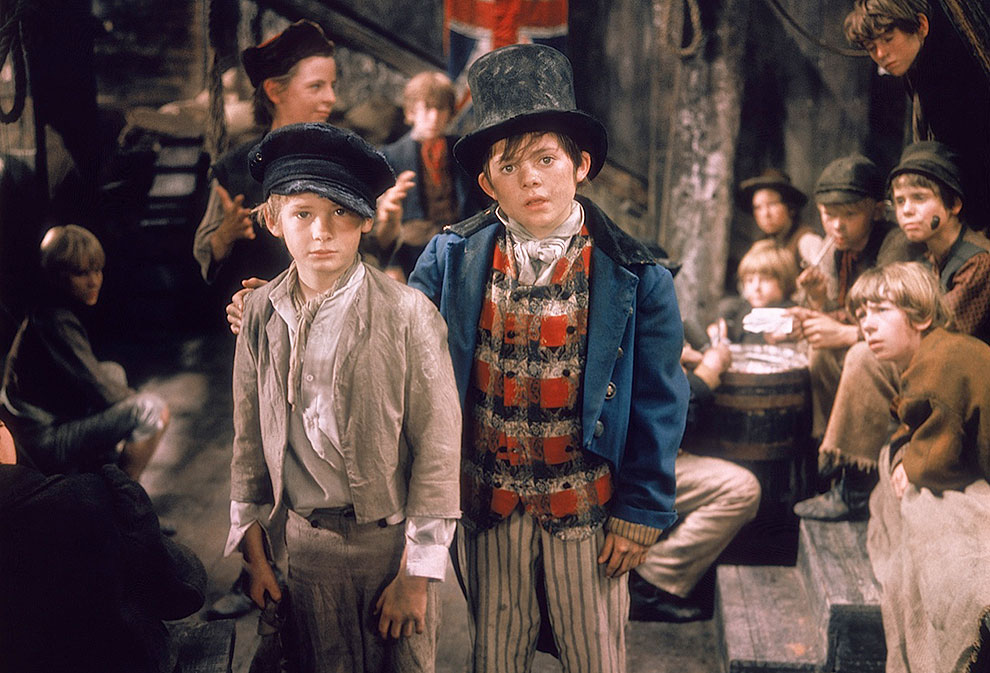
Columbia Pictures
Directed by: Carol Reed
Written by: Vernon Harris
The other Oscars it won: Reed (Best Director); John Box, Terence Marsh, Vernon Dixon, Ken Muggleston (Best Art Direction); John Green (Best Score); Shepperton Studio Sound Department (Best Sound); Onna White (Honorary Award)
What it beat for Best Picture: Funny Girl; The Lion in Winter; Rachel, Rachel; Romeo and Juliet
Written by: Vernon Harris
The other Oscars it won: Reed (Best Director); John Box, Terence Marsh, Vernon Dixon, Ken Muggleston (Best Art Direction); John Green (Best Score); Shepperton Studio Sound Department (Best Sound); Onna White (Honorary Award)
What it beat for Best Picture: Funny Girl; The Lion in Winter; Rachel, Rachel; Romeo and Juliet
I’m a huge fan of the music from Oliver!, and even as I type this I have managed to get “Where Is Love?” stuck in my head. But 2001: A Space Odyssey changed film as we know it, and it was not nominated. Rosemary’s Baby was also not nominated, yet we can probably all agree it’s a more important movie than Oliver!.
54. A Man for All Seasons (1966)
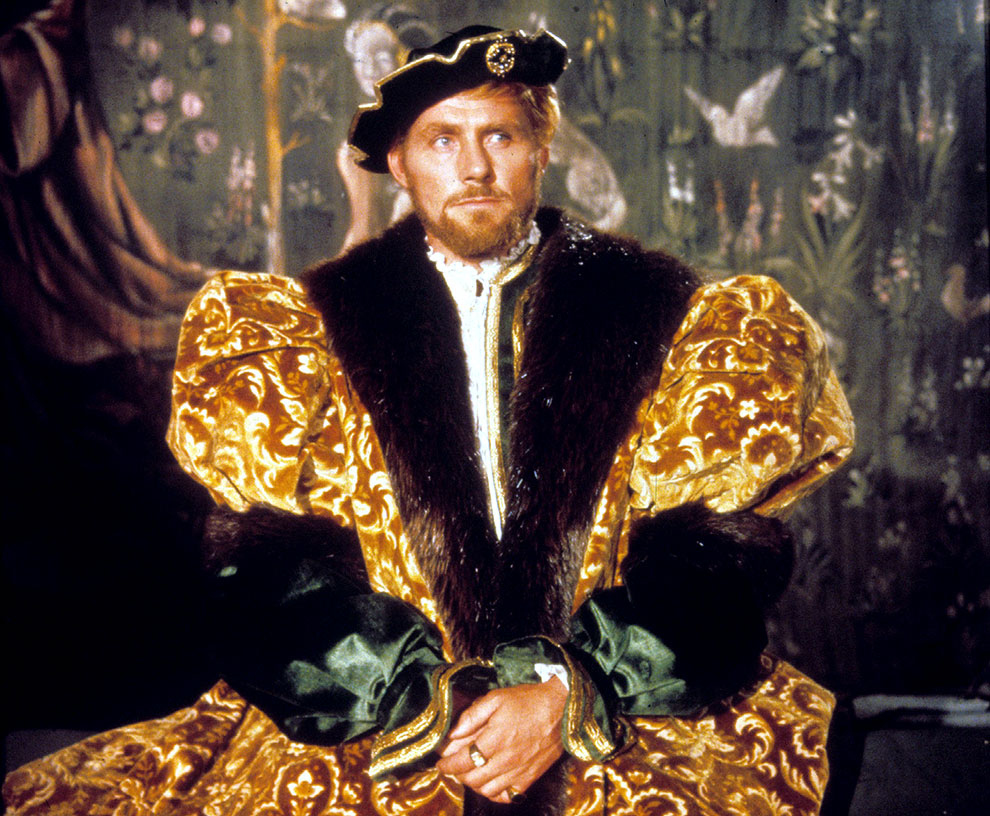
Moviestore Collection / Rex/REX USA
Directed by: Fred Zinnemann
Written by: Robert Bolt
The other Oscars it won: Zinnemann (Best Director); Bolt (Best Adapted Screenplay); Paul Scofield (Best Actor); Ted Moore (Best Cinematography – Color); Elizabeth Haffenden and Joan Bridge (Best Costume Design – Color)
What it beat for Best Picture: Alfie, The Russians Are Coming The Russians Are Coming, The Sand Pebbles, Who’s Afraid of Virginia Woolf?
Written by: Robert Bolt
The other Oscars it won: Zinnemann (Best Director); Bolt (Best Adapted Screenplay); Paul Scofield (Best Actor); Ted Moore (Best Cinematography – Color); Elizabeth Haffenden and Joan Bridge (Best Costume Design – Color)
What it beat for Best Picture: Alfie, The Russians Are Coming The Russians Are Coming, The Sand Pebbles, Who’s Afraid of Virginia Woolf?
A Man for All Seasons is a certain type of ’60s movie that represents the flux of the time. Caught between the big studio movies that had dominated the industry for decades and the revolution that was to come in late ’60s and ’70s, filmmakers produced things like A Man for All Seasons, in which Sir Thomas More defies Henry VIII in the question of marrying Anne Boleyn. As Pauline Kael wrote, it’s “moderately enjoyable.” (My choice here would have been Who’s Afraid of Virginia Woolf?)
53. All the King’s Men (1949)
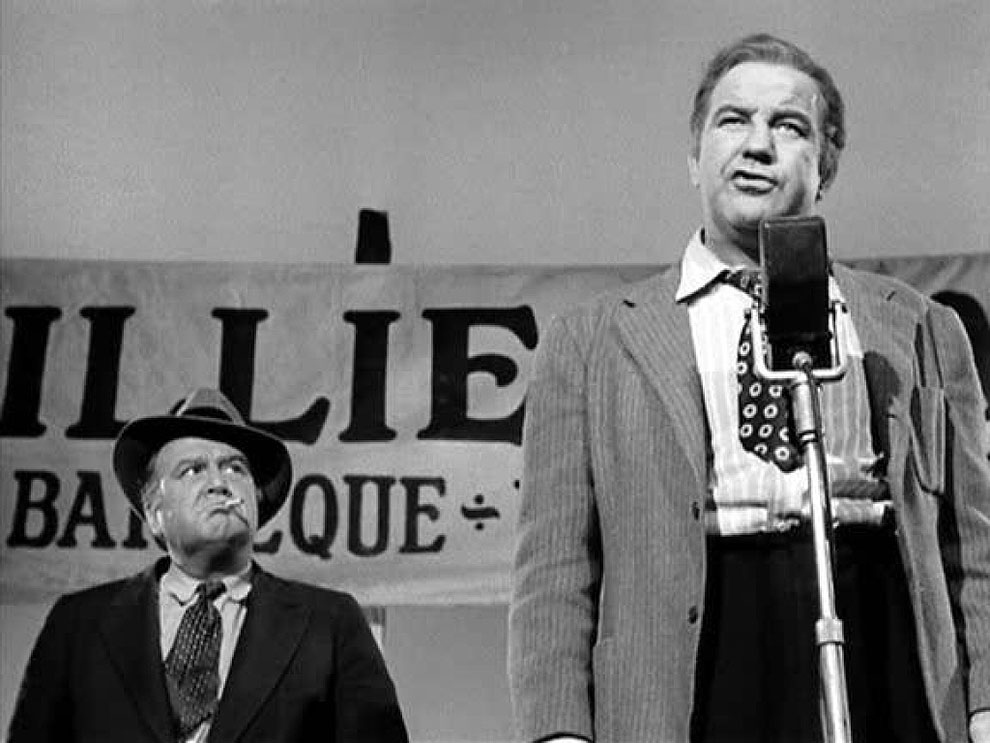
Columbia Pictures
Directed by: Robert Rossen
Written by: Robert Rossen
The other Oscars it won: Broderick Crawford (Best Actor); Mercedes McCambridge (Best Supporting Actress)
What it beat for Best Picture: Battleground, The Heiress, A Letter to Three Wives, Twelve O’Clock High
Written by: Robert Rossen
The other Oscars it won: Broderick Crawford (Best Actor); Mercedes McCambridge (Best Supporting Actress)
What it beat for Best Picture: Battleground, The Heiress, A Letter to Three Wives, Twelve O’Clock High
All the King’s Men’s look at the rise of a charismatic politician, Willie Stark (whom novelist Robert Penn Warren modeled on Huey Long, the Louisiana governor), hits with a heavy hand now. And the middle section of the movie is a mess. But Broderick Crawford is galvanizing as Stark, and the movie is an intriguing curiosity in our post-Clinton world.
52. The Artist (2011)

Weinstein Co.
Directed by: Michel Hazanavicius
Written by: Michel Hazanavicius
The other Oscars it won: Hazanavicius (Best Director); Jean Dujardin (Best Actor); Mark Bridges (Best Costume Design); Ludovic Bource (Best Original Score)
What it beat for Best Picture: The Descendants, Extremely Loud & Incredibly Close, The Help, Hugo, Midnight in Paris, Moneyball, The Tree of Life, War Horse
Written by: Michel Hazanavicius
The other Oscars it won: Hazanavicius (Best Director); Jean Dujardin (Best Actor); Mark Bridges (Best Costume Design); Ludovic Bource (Best Original Score)
What it beat for Best Picture: The Descendants, Extremely Loud & Incredibly Close, The Help, Hugo, Midnight in Paris, Moneyball, The Tree of Life, War Horse
That the affable Artist sailed through its Oscar season, totally unchallenged, is one of the great mysteries of the 21st century. Harvey Weinstein pushed it, of course. But he doesn’t always get his way. It’s a peculiarity, as is the movie.
51. Marty (1955)
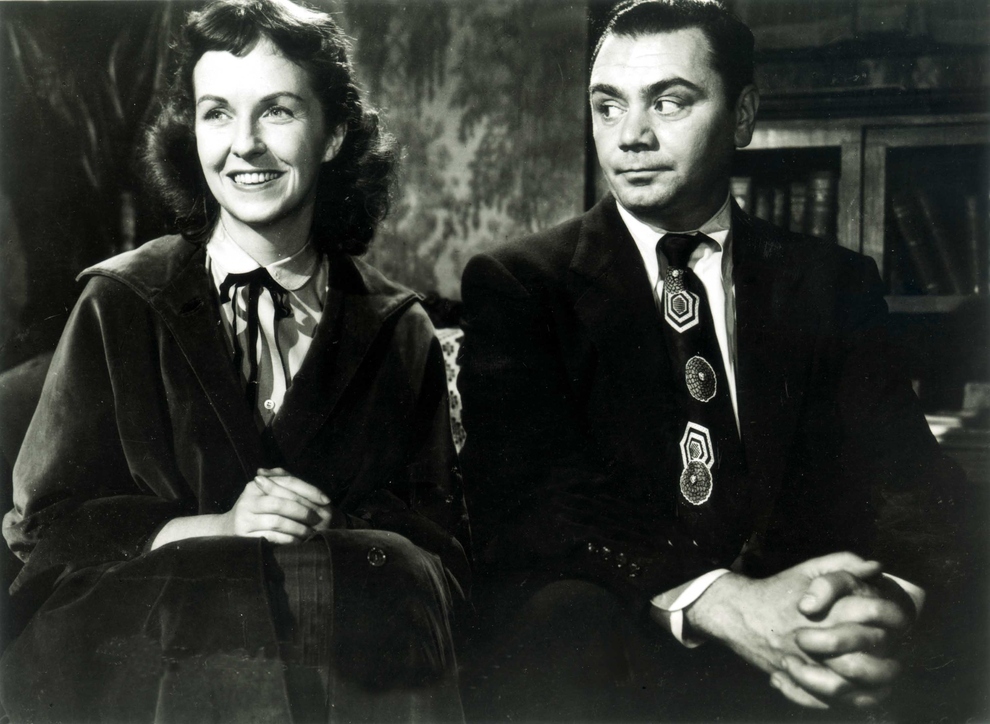
Moviestore Collection / Rex/REX USA
Directed by: Delbert Mann
Written by: Paddy Chayefsky
The other Oscars it won: Mann (Best Director); Ernest Borgnine (Best Actor); Chayefsky (Best Original Screenplay)
What it beat for Best Picture: Love Is a Many-Splendored Thing, Mister Roberts, Picnic, The Rose Tattoo
Written by: Paddy Chayefsky
The other Oscars it won: Mann (Best Director); Ernest Borgnine (Best Actor); Chayefsky (Best Original Screenplay)
What it beat for Best Picture: Love Is a Many-Splendored Thing, Mister Roberts, Picnic, The Rose Tattoo
Marty feels small now and, according to this fascinating New York Times review from the time, it did then too. “No matter what the movie people may say or think about television, they have it to thank for Marty, which came to the Sutton yesterday,” wrote The Times’ film critic Bosley Crowther in a rave. It’s lovely, though. And bears the distinction, unless I’m mistaken, of being the shortest Best Picture-winner (90 minutes). Which makes it even better!
50. Ben-Hur (1959)
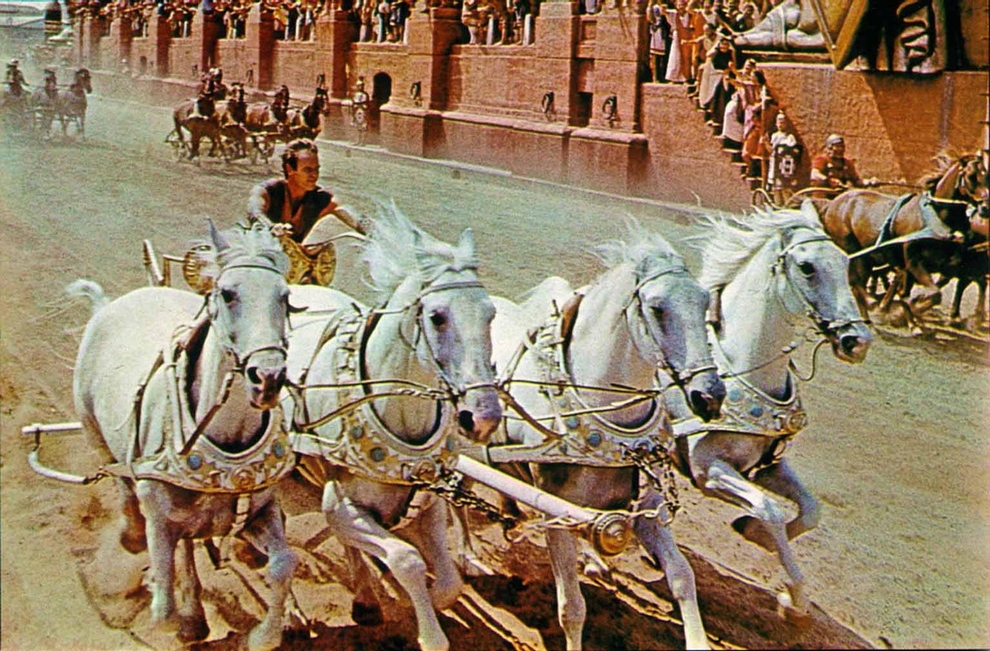
Moviestore Collection / Rex/REX USA
Directed by: William Wyler
Written by: Karl Tunberg
The other Oscars it won: Wyler (Best Director); Charlton Heston (Best Actor); Hugh Griffith (Best Supporting Actor); Robert L. Surtees (Best Cinematography – Color); William A. Horning, Edward C. Carfagno, and Hugh Hunt (Best Art Direction – Color); Elizabeth Haffenden (Best Costume Design – Color); Ralph E. Winters and John D. Dunning (Best Film Editing); Miklós Rózsa (Best Score – Dramatic or Comedy); Franklin E. Milton, Metro-Goldwyn-Mayer Studio Sound Department (Best Sound); A. Arnold Gillespie, Robert MacDonald, and Milo Lory (Best Special Effects)
What it beat for Best Picture: Anatomy of a Murder, The Diary of Anne Frank, The Nun’s Story, Room at the Top
Written by: Karl Tunberg
The other Oscars it won: Wyler (Best Director); Charlton Heston (Best Actor); Hugh Griffith (Best Supporting Actor); Robert L. Surtees (Best Cinematography – Color); William A. Horning, Edward C. Carfagno, and Hugh Hunt (Best Art Direction – Color); Elizabeth Haffenden (Best Costume Design – Color); Ralph E. Winters and John D. Dunning (Best Film Editing); Miklós Rózsa (Best Score – Dramatic or Comedy); Franklin E. Milton, Metro-Goldwyn-Mayer Studio Sound Department (Best Sound); A. Arnold Gillespie, Robert MacDonald, and Milo Lory (Best Special Effects)
What it beat for Best Picture: Anatomy of a Murder, The Diary of Anne Frank, The Nun’s Story, Room at the Top
William Wyler’s famous chariot race is still thrilling. The feud Ben-Hur sparked years later between its star, Charlton Heston, and one of the many writers of the movie, Gore Vidal, over its gay subtext, is just a bonus.
49. Chicago (2002)

Miramax Films
Directed by: Rob Marshall
Written by: Bill Condon
The other Oscars it won: Catherine Zeta-Jones (Best Supporting Actress); John Myhre and Gordon Sim (Best Art Direction); Colleen Atwood (Best Costume Design); Martin Walsh (Best Film Editing); Michael Minkler, Dominick Tavella, and David Lee (Best Sound)
What it beat for Best Picture: Gangs of New York, The Hours, The Lord of the Rings: The Two Towers, The Pianist
Written by: Bill Condon
The other Oscars it won: Catherine Zeta-Jones (Best Supporting Actress); John Myhre and Gordon Sim (Best Art Direction); Colleen Atwood (Best Costume Design); Martin Walsh (Best Film Editing); Michael Minkler, Dominick Tavella, and David Lee (Best Sound)
What it beat for Best Picture: Gangs of New York, The Hours, The Lord of the Rings: The Two Towers, The Pianist
The year before Chicago was released, Moulin Rouge revived the musical format, which had been moribund for years. Chicago was a boisterous box office success that was propelled into Academy Awards consideration by Harvey Weinstein. That probably should not have happened, but it wasn’t a strong year for the Best Picture category.
48. Braveheart (1995)
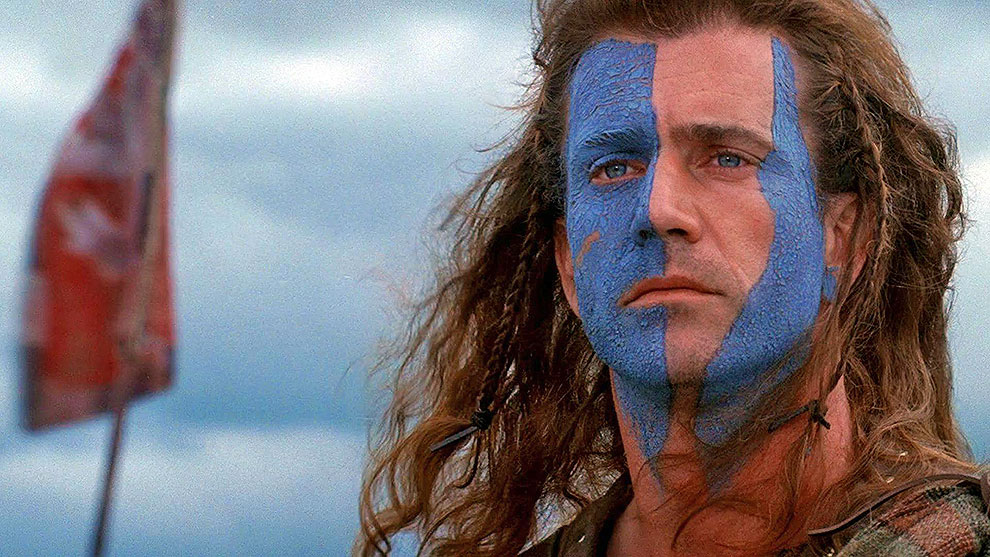
Paramount Pictures
Directed by: Mel Gibson
Written by: Randall Wallace
The other Oscars it won: Gibson (Best Director); John Toll (Best Cinematography); Peter Frampton, Paul Pattison, and Lois Burwell (Best Makeup); Lon Bender and Per Hallberg (Best Sound Effects Editing)
What it beat for Best Picture: Apollo 13, Babe, Il Postino: The Postman, Sense and Sensibility
Written by: Randall Wallace
The other Oscars it won: Gibson (Best Director); John Toll (Best Cinematography); Peter Frampton, Paul Pattison, and Lois Burwell (Best Makeup); Lon Bender and Per Hallberg (Best Sound Effects Editing)
What it beat for Best Picture: Apollo 13, Babe, Il Postino: The Postman, Sense and Sensibility
It’s impossible to watch Braveheart without thinking about Mel Gibson’s politics, whether it’s the movie’s anachronistic obsession with personal freedom (or more precisely “FREEEEEEEEEDOMMMMMMMM!”) or its troubling characterization of the fey Prince Edward. The battle scenes are exciting, though. (Can we pay homage to Babe, the best movie of 1995?)
47. American Beauty (1999)
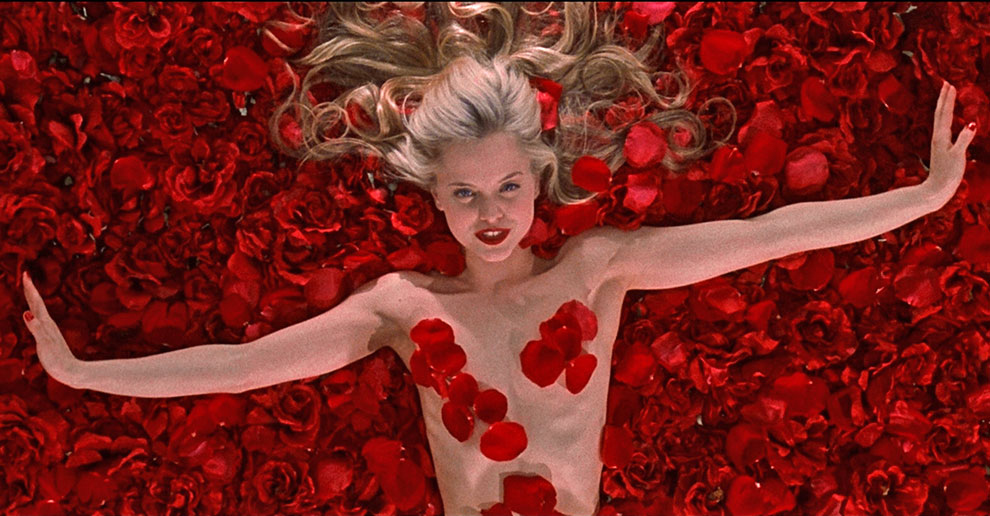
DreamWorks SKG
Directed by: Sam Mendes
Written by: Alan Ball
The other Oscars it won: Mendes (Best Director); Ball (Best Original Screenplay); Kevin Spacey (Best Actor); Conrad L. Hall (Best Cinematography)
What it beat for Best Picture: The Cider House Rules, The Green Mile, The Insider, The Sixth Sense
Written by: Alan Ball
The other Oscars it won: Mendes (Best Director); Ball (Best Original Screenplay); Kevin Spacey (Best Actor); Conrad L. Hall (Best Cinematography)
What it beat for Best Picture: The Cider House Rules, The Green Mile, The Insider, The Sixth Sense
My friend David Jefferson has a theory that certain actors and actresses are prone to turning into drag queen versions of themselves — in certain roles, their tics get exaggerated, they rely on old tricks, and they go way over the top. Meryl Streep in August: Osage County, for example (though I haven’t cleared that one with David). Or Anthony Hopkins in pretty much everything he’s done after The Silence of the Lambs. This is all to say that American Beauty is when Kevin Spacey began his drag journey — it lasted years to ill effect (K-PAX, Casino Jack), but now he has put those shade tendencies to good use on House of Cards. From Spacey’s narration down to the plastic bag, American Beauty drives a lot of people crazy. (I like it fine.) Note the weak competition.
46. Million Dollar Baby (2004)

Warner Brothers
Directed by: Clint Eastwood
Written by: Paul Haggis
The other Oscars it won: Eastwood (Best Director); Hilary Swank (Best Actress); Morgan Freeman (Best Supporting Actor)
What it beat for Best Picture: The Aviator, Finding Neverland, Ray, Sideways
Written by: Paul Haggis
The other Oscars it won: Eastwood (Best Director); Hilary Swank (Best Actress); Morgan Freeman (Best Supporting Actor)
What it beat for Best Picture: The Aviator, Finding Neverland, Ray, Sideways
How you feel about Million Dollar Baby depends entirely on your feelings about the Clint Eastwood-Hilary Swank relationship within it. Do you buy her as a boxer, and him as her teacher and father figure? It’s also possible to be moved by this movie — which extorts tears from your eyes — without thinking it’s actually great (or even good).
45. The Sound of Music (1965)
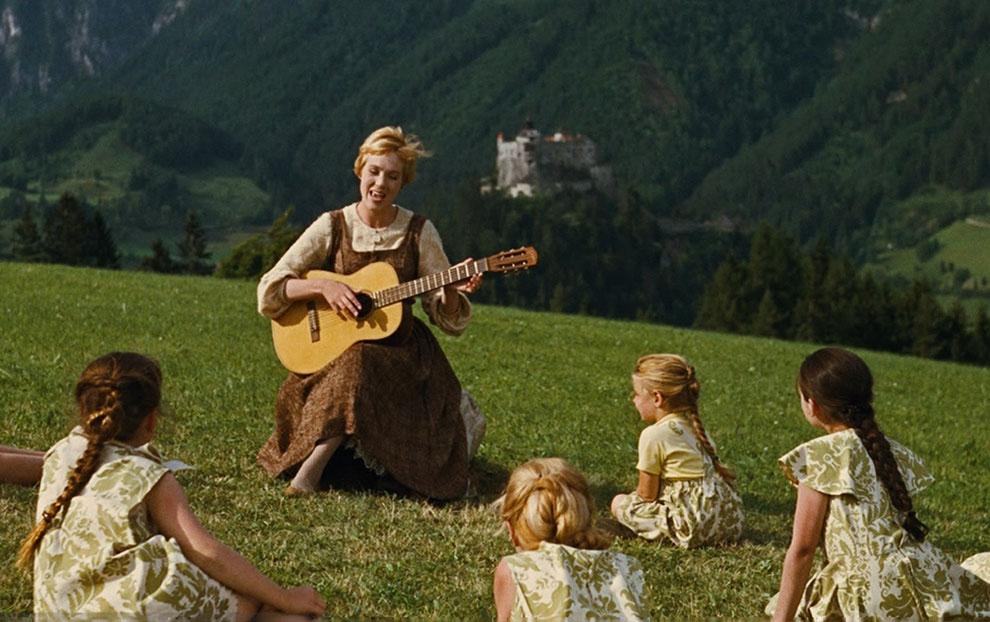
20th Century Fox
Directed by: Robert Wise
Written by: Ernest Lehman
The other Oscars it won: Wise (Best Director); William Reynolds (Best Film Editing); Irwin Kostal (Best Score – Adaptation or Treatment); James Corcoran, 20th Century-Fox Studio Sound Department, Fred Hynes, Todd-AO Sound Department (Best Sound)
What it beat for Best Picture: Darling, Doctor Zhivago, Ship of Fools, A Thousand Clowns
Written by: Ernest Lehman
The other Oscars it won: Wise (Best Director); William Reynolds (Best Film Editing); Irwin Kostal (Best Score – Adaptation or Treatment); James Corcoran, 20th Century-Fox Studio Sound Department, Fred Hynes, Todd-AO Sound Department (Best Sound)
What it beat for Best Picture: Darling, Doctor Zhivago, Ship of Fools, A Thousand Clowns
Is it possible to have perspective on the The Sound of Music if you saw it as a child? Because to see it when you’re little is to fall in love with it. Most of the music is enchanting, especially when you have it memorized — and Julie Andrews is nearly able to carry the entire movie. But not quite.
44. Kramer vs. Kramer (1979)
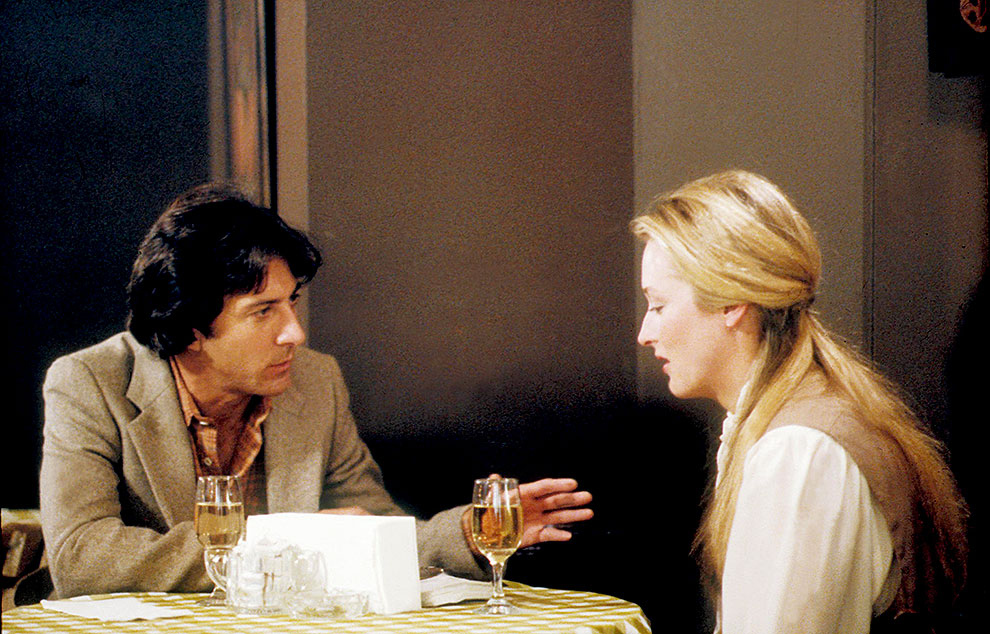
Moviestore Collection / Rex/REX USA
Directed by: Robert Benton
Written by: Robert Benton
The other Oscars it won: Benton (Best Director); Benton (Best Adapted Screenplay); Dustin Hoffman (Best Actor); Meryl Streep (Best Supporting Actress)
What it beat for Best Picture: All That Jazz, Apocalypse Now, Breaking Away, Norma Rae
Written by: Robert Benton
The other Oscars it won: Benton (Best Director); Benton (Best Adapted Screenplay); Dustin Hoffman (Best Actor); Meryl Streep (Best Supporting Actress)
What it beat for Best Picture: All That Jazz, Apocalypse Now, Breaking Away, Norma Rae
The tear-jerking Kramer vs. Kramer has at its center the beautiful father-son relationship enacted by Dustin Hoffman and Justin Henry. The custody fight that surrounds it is a somewhat ugly manifestation of a “men can be parents too” thread that rose up as a backlash to ’70s feminism. But also: Kramer vs. Kramer won the year that I attended the Oscars because — disclosure alert — my late father wrote and produced All That Jazz, and, frankly, I have no objective stance on this movie. I do think, though, that Apocalypse Now is a film for the ages.
43. Ordinary People (1980)
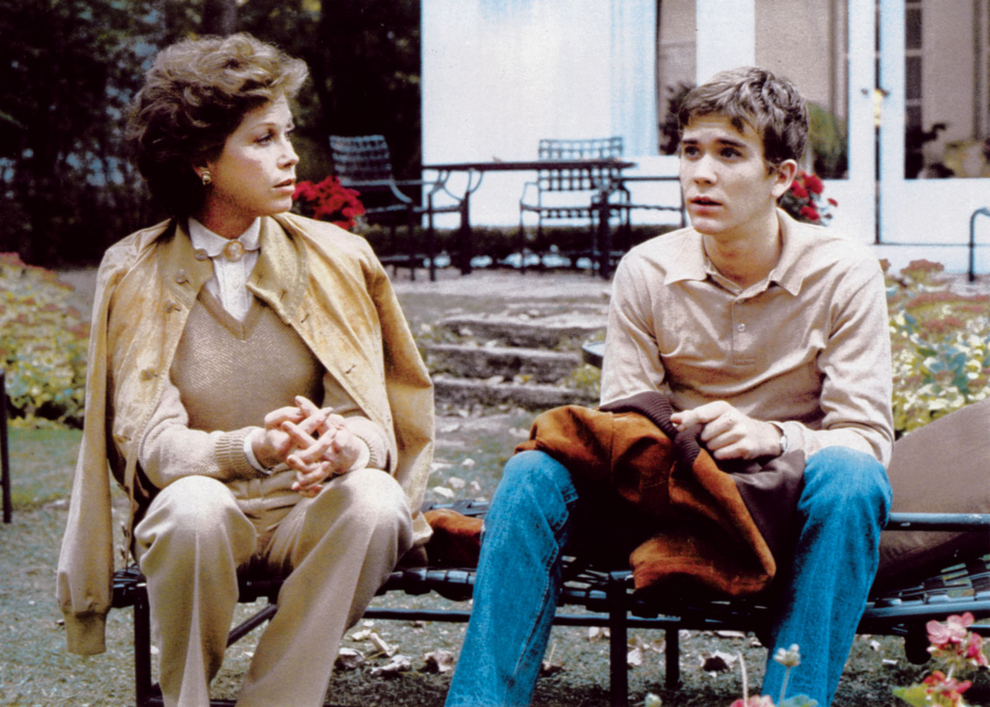
Paramount Pictures
Directed by: Robert Redford
Written by: Alvin Sargent
The other Oscars it won: Redford (Best Director); Sargent (Best Adapted Screenplay); Timothy Hutton (Best Supporting Actor)
What it beat for Best Picture: Coal Miner’s Daughter, The Elephant Man, Raging Bull, Tess
Written by: Alvin Sargent
The other Oscars it won: Redford (Best Director); Sargent (Best Adapted Screenplay); Timothy Hutton (Best Supporting Actor)
What it beat for Best Picture: Coal Miner’s Daughter, The Elephant Man, Raging Bull, Tess
Another movie about nurturing men (and boys who need to be nurtured) who have terrible mothers. But there had never been a teenaged character onscreen like Timothy Hutton’s troubled Conrad. And therapy had never been rendered as it was in Hutton’s and Judd Hirsch’s sessions before, either — it’s a heart-rending movie. (Ordinary People did beat Raging Bull, and a lot of people don’t like that.)
42. Argo (2012)

Warner Brothers
Directed by: Ben Affleck
Written by: Chris Terrio
The other Oscars it won: Terrio (Best Adapted Screenplay); William Goldenberg (Best Film Editing)
What it beat for Best Picture: Amour, Beasts of the Southern Wild, Django Unchained, Les Misérables, Life of Pi, Lincoln, Silver Linings Playbook, Zero Dark Thirty
Written by: Chris Terrio
The other Oscars it won: Terrio (Best Adapted Screenplay); William Goldenberg (Best Film Editing)
What it beat for Best Picture: Amour, Beasts of the Southern Wild, Django Unchained, Les Misérables, Life of Pi, Lincoln, Silver Linings Playbook, Zero Dark Thirty
From the moment it won, Argo was judged as a weak winner (though I’m not quite clear on what was supposed to win: Lincoln? Zero Dark Thirty?). But as you might agree by this point in this list, there are so many Best Picture winners that are worse than the enjoyable Argo!
41. Platoon (1986)

Moviestore Collection / Rex/REX USA
Directed by: Oliver Stone
Written by: Oliver Stone
The other Oscars it won: Stone (Best Director); Claire Simpson (Best Film Editing); John K. Wilkinson, Richard D. Rogers, Charles “Bud” Grenzbach, and Simon Kaye (Best Sound)
What it beat for Best Picture: Children of a Lesser God, Hannah and Her Sisters, The Mission, A Room With a View
Written by: Oliver Stone
The other Oscars it won: Stone (Best Director); Claire Simpson (Best Film Editing); John K. Wilkinson, Richard D. Rogers, Charles “Bud” Grenzbach, and Simon Kaye (Best Sound)
What it beat for Best Picture: Children of a Lesser God, Hannah and Her Sisters, The Mission, A Room With a View
Having little to do with the movie itself, Platoon hasn’t aged well. Oliver Stone has become a strange figure in American pop culture, and it’s hard to watch Charlie Sheen in anything these days. Platoon also was not universally beloved upon its release — the Variety review, for instance, refers to Sheen’s voiceover in the letters he writes home as “simpy narration,” and says the movie doesn’t go far enough. Also, as we now know better than we did then, Stone does not have a light touch. But as a release during the hawkish Reagan ’80s, Platoon gave audiences something to think about, and the acting, especially Willem Dafoe and Tom Berenger, was strong and evocative. It’s also worth mentioning that in the bleak desert where the ’80s and the Oscars converged, the 1987 ceremony featured some good entries. Beyond Platoon’s Best Picture rivals, Aliens, The Color of Money, Hoosiers, and Blue Velvet were also in the mix in the major categories.
40. Shakespeare in Love (1998)
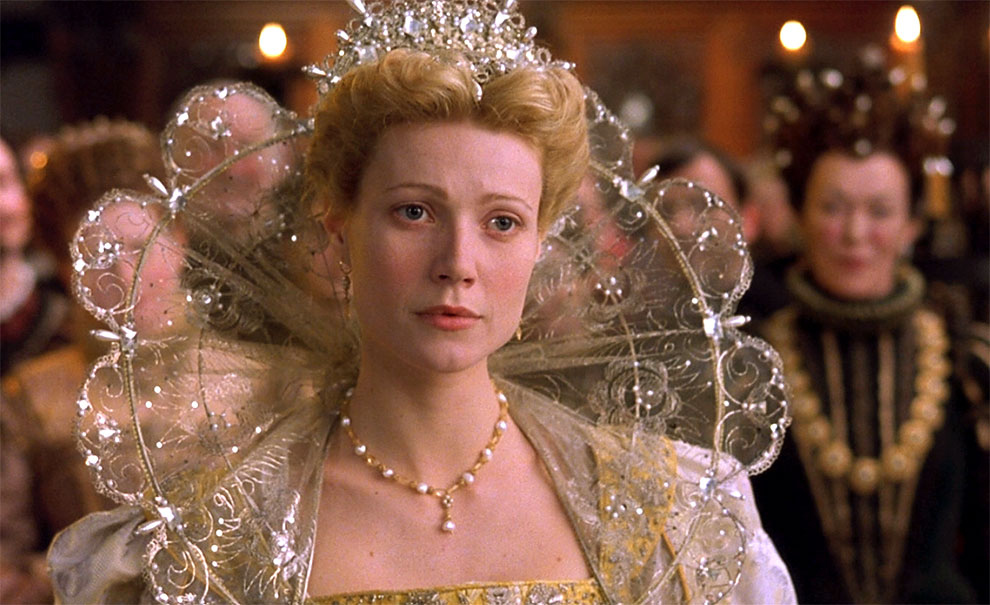
Universal Pictures
Directed by: John Madden
Written by: Marc Norman and Tom Stoppard
The other Oscars it won: Norman and Stoppard (Best Original Screenplay); Gwyneth Paltrow (Best Actress); Judi Dench (Best Supporting Actress); Martin Childs and Jill Quertier (Best Art Direction); Sandy Powell (Best Costume Design); Stephen Warbeck (Best Original Score – Musical or Comedy)
What it beat for Best Picture: Elizabeth, Life Is Beautiful, Saving Private Ryan, The Thin Red Line
Written by: Marc Norman and Tom Stoppard
The other Oscars it won: Norman and Stoppard (Best Original Screenplay); Gwyneth Paltrow (Best Actress); Judi Dench (Best Supporting Actress); Martin Childs and Jill Quertier (Best Art Direction); Sandy Powell (Best Costume Design); Stephen Warbeck (Best Original Score – Musical or Comedy)
What it beat for Best Picture: Elizabeth, Life Is Beautiful, Saving Private Ryan, The Thin Red Line
Shakespeare in Love — like How Green Was My Valley — is sometimes remembered as a bad movie because it (as the narrative goes) unfairly usurped Saving Private Ryan’s rightful win at the 1999 Academy Awards. And it certainly was a surprise: If you watch the clip of the win, you can lip-read Gwyneth Paltrow saying, “I can’t believe it.” But just because it wasn’t expected, and just because people got angry at Harvey Weinstein’s aggressive campaign tactics after this year, that doesn’t mean Shakespeare in Love isn’t charming. It remains well-written, directed, and acted.
39. Rain Man (1988)
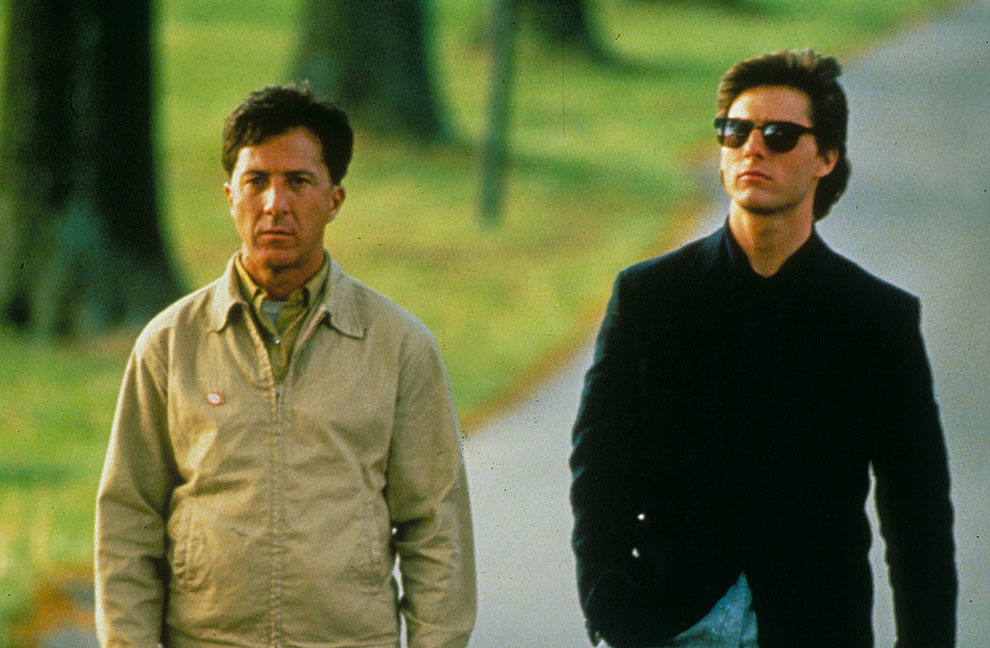
Moviestore Collection / Rex/ REX USA
Directed by: Barry Levinson
Written by: Ronald Bass and Barry Morrow
The other Oscars it won: Levinson (Best Director); Bass and Morrow (Best Original Screenplay); Dustin Hoffman (Best Actor)
What it beat for Best Picture: The Accidental Tourist, Dangerous Liaisons, Mississippi Burning, Working Girl
Written by: Ronald Bass and Barry Morrow
The other Oscars it won: Levinson (Best Director); Bass and Morrow (Best Original Screenplay); Dustin Hoffman (Best Actor)
What it beat for Best Picture: The Accidental Tourist, Dangerous Liaisons, Mississippi Burning, Working Girl
Barry Levinson’s Rain Man is mostly remembered in caricature: “Uh oh, fart,” or “I’m definitely not wearing my underwear,” or “three minutes to Wapner,” all in Dustin Hoffman’s invented monotone as the brilliant, autistic Raymond. Naturally and deservedly, it was Hoffman who won Best Actor, but it’s Tom Cruise’s performance — as the person who changes — that is so impressive on repeated viewings. Cruise had already begun his forays into Oscar-bait movies with 1986’s The Color of Money, but was still two years from getting his own nomination for Born on the Fourth of July. (He has since gotten two more, for Jerry Maguire and Magnolia, but has never won.)
38. The King’s Speech (2010)
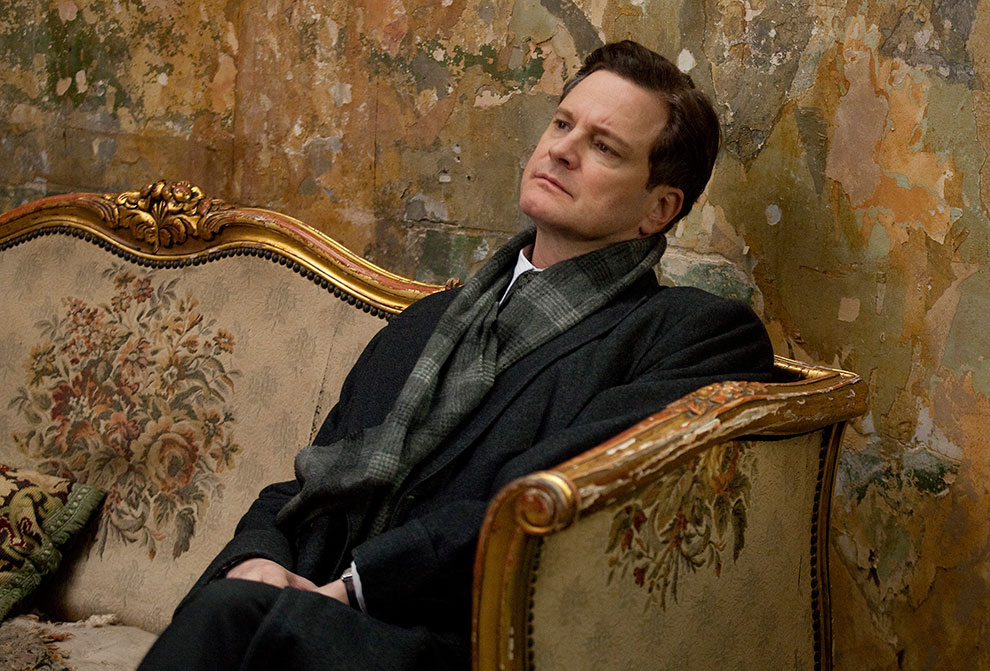
Weinstein Co.
Directed by: Tom Hooper
Written by: David Seidler
The other Oscars it won: Hooper (Best Director); Seidler (Best Original Screenplay); Colin Firth (Best Actor)
What it beat for Best Picture: Black Swan, The Fighter, Inception, The Kids Are All Right, 127 Hours, The Social Network, Toy Story 3, True Grit, Winter’s Bone
Written by: David Seidler
The other Oscars it won: Hooper (Best Director); Seidler (Best Original Screenplay); Colin Firth (Best Actor)
What it beat for Best Picture: Black Swan, The Fighter, Inception, The Kids Are All Right, 127 Hours, The Social Network, Toy Story 3, True Grit, Winter’s Bone
This middlebrow crowd-pleaser is not one for film snobs. Or even Oscar snobs — the more daring choice at the 2010 Academy Awards would have been David Fincher’s Mark Zuckerberg-skewering film The Social Network. But it’s well-acted (Colin Firth, Geoffrey Rush, and the surprising Helena Bonham-Carter), and moving.
37. Chariots of Fire (1981)
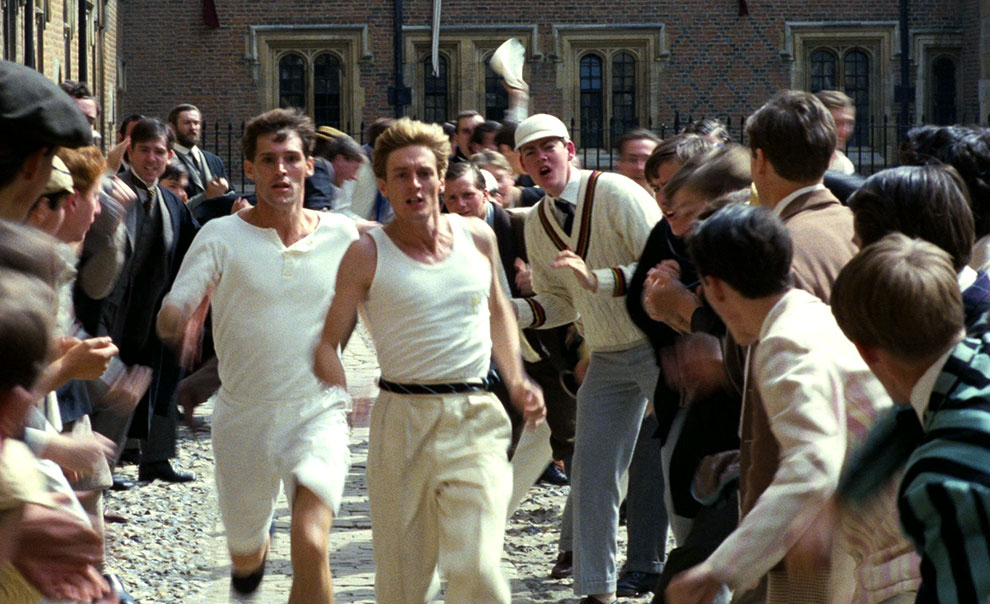
20th Century Fox
Directed by: Hugh Hudson
Written by: Colin Welland
The other Oscars it won: Welland (Best Original Screenplay); Milena Canonero (Best Costume Design); Vangelis (Best Original Score)
What it beat for Best Picture: Atlantic City, On Golden Pond, Raiders of the Lost Ark, Reds
Written by: Colin Welland
The other Oscars it won: Welland (Best Original Screenplay); Milena Canonero (Best Costume Design); Vangelis (Best Original Score)
What it beat for Best Picture: Atlantic City, On Golden Pond, Raiders of the Lost Ark, Reds
Chariots of Fire is a quiet movie about two very different young men, both of whom are aspiring Olympic runners; they were played by Ian Charleson and Ben Cross, both of whom were unknown. It was an unlikely cultural sensation when it came out, which is a funny thing to remember now, and it still has one of the most famous soundtracks of all-time. The problem with Chariots of Fire in Oscar history is that it beat Warren Beatty’s Reds, one of the best movies of the dreadful ’80s.
36. Slumdog Millionaire (2008)
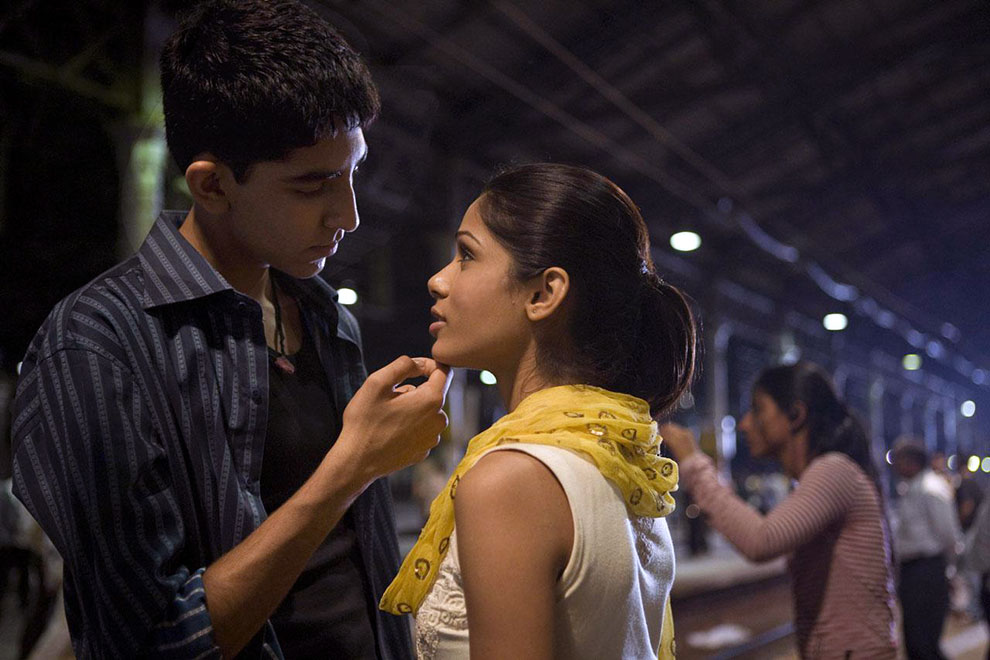
Fox Searchlight Pictures
Directed by: Danny Boyle
Written by: Simon Beaufoy
The other Oscars it won: Boyle (Best Director); Beaufoy (Best Adapted Screenplay); Anthony Dod Mantle (Best Cinematography); Chris Dickens (Best Film Editing); A.R. Rahman (Best Original Score); A.R. Rahman and Gulzar (Best Original Song); Ian Tapp, Richard Pryke, and Resul Pookutty (Best Sound Mixing)
What it beat for Best Picture: The Curious Case of Benjamin Button, Frost/Nixon, Milk, The Reader
Written by: Simon Beaufoy
The other Oscars it won: Boyle (Best Director); Beaufoy (Best Adapted Screenplay); Anthony Dod Mantle (Best Cinematography); Chris Dickens (Best Film Editing); A.R. Rahman (Best Original Score); A.R. Rahman and Gulzar (Best Original Song); Ian Tapp, Richard Pryke, and Resul Pookutty (Best Sound Mixing)
What it beat for Best Picture: The Curious Case of Benjamin Button, Frost/Nixon, Milk, The Reader
It’s easy to forget, even a few years later, how surprising Slumdog Millionaire’s ascent to Best Picture was. Danny Boyle’s movie — with its inventive structure, fast-paced editing, and mostly unknown cast — leapt over the more standard fare of Benjamin Button. Still, I prefer Milk, or Rachel Getting Married, which wasn’t nominated.
35. The Hurt Locker (2009)
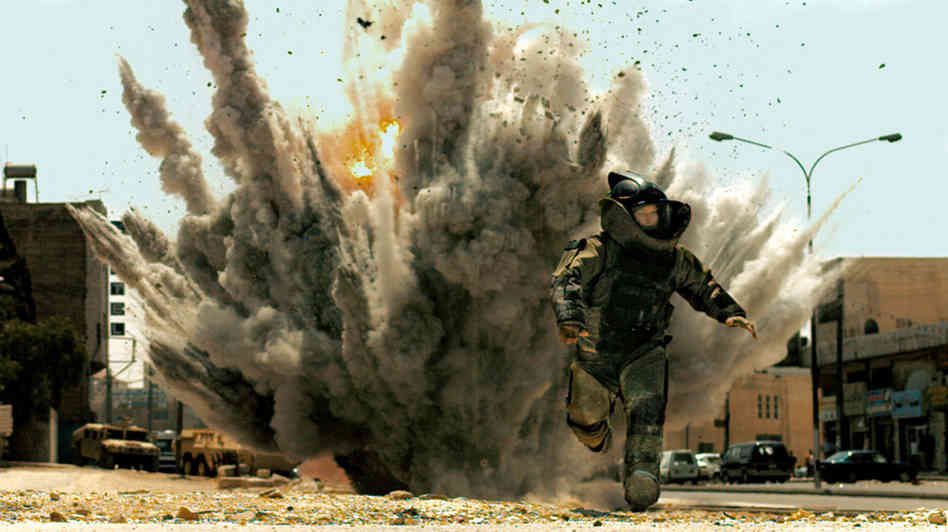
Summit Entertainment
Directed by: Kathryn Bigelow
Written by: Mark Boal
The other Oscars it won: Bigelow (Best Director); Boal (Best Original Screenplay); Bob Murawski and Chris Innis (Best Film Editing); Paul N. J. Ottosson (Best Sound Editing); Ottosson and Ray Beckett (Best Sound Mixing)
What it beat for Best Picture: Avatar, The Blind Side, District 9, An Education, Inglourious Basterds, Precious: Based on the Novel “Push” by Sapphire, A Serious Man, Up, Up in the Air
Written by: Mark Boal
The other Oscars it won: Bigelow (Best Director); Boal (Best Original Screenplay); Bob Murawski and Chris Innis (Best Film Editing); Paul N. J. Ottosson (Best Sound Editing); Ottosson and Ray Beckett (Best Sound Mixing)
What it beat for Best Picture: Avatar, The Blind Side, District 9, An Education, Inglourious Basterds, Precious: Based on the Novel “Push” by Sapphire, A Serious Man, Up, Up in the Air
The death match at the 2010 Oscars, which pitted Kathryn Bigelow’s The Hurt Locker against James Cameron’s Avatar was as intense and gripping as The Hurt Locker itself — especially when you factor in that the two directors had once been married. As the competition came to a close, The Hurt Locker fended off a smear campaign — most saliently, that veterans of the Iraq war didn’t like the portrayal of Jeremy Renner’s character, the reckless bomb defuser — to win. Bigelow won too, making her the first and only woman so far to win the Best Director Oscar.
34. The Departed (2006)
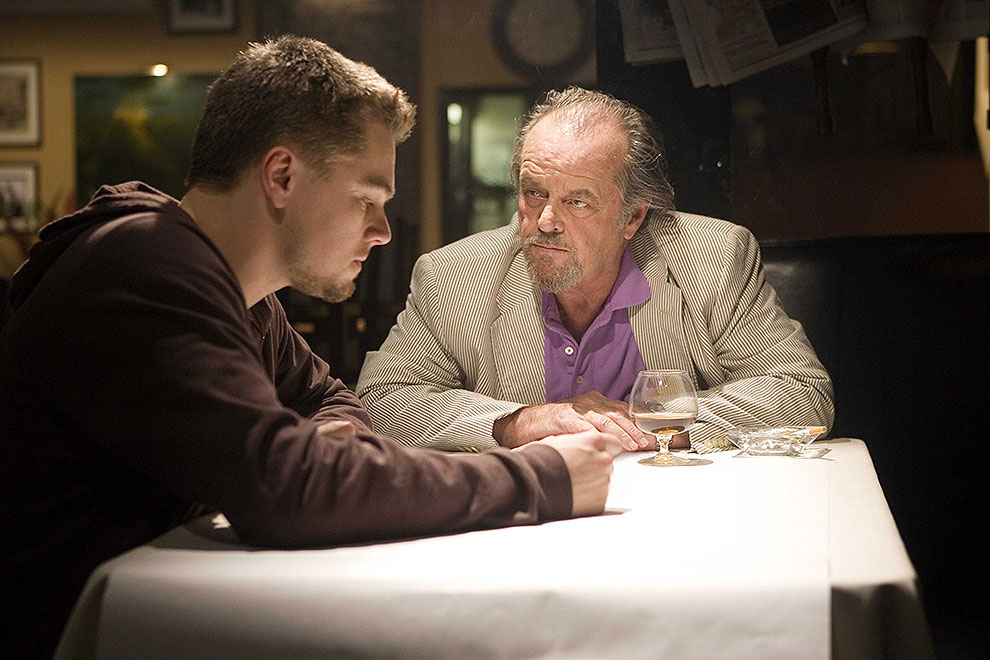
Warner Brothers
Directed by: Martin Scorsese
Written by: William Monahan
The other Oscars it won: Scorsese (Best Director); Monahan (Best Adapted Screenplay); Thelma Schoonmaker (Best Film Editing)
What it beat for Best Picture: Babel, Letters from Iwo Jima, Little Miss Sunshine, The Queen
Written by: William Monahan
The other Oscars it won: Scorsese (Best Director); Monahan (Best Adapted Screenplay); Thelma Schoonmaker (Best Film Editing)
What it beat for Best Picture: Babel, Letters from Iwo Jima, Little Miss Sunshine, The Queen
When Martin Scorsese’s filmography is complete, The Departed will be somewhere in the middle. But he had never won Best Director before, nor had any of his movies won Best Picture, so The Departed was crowned. It’s good, of course!
33. Titanic (1997)
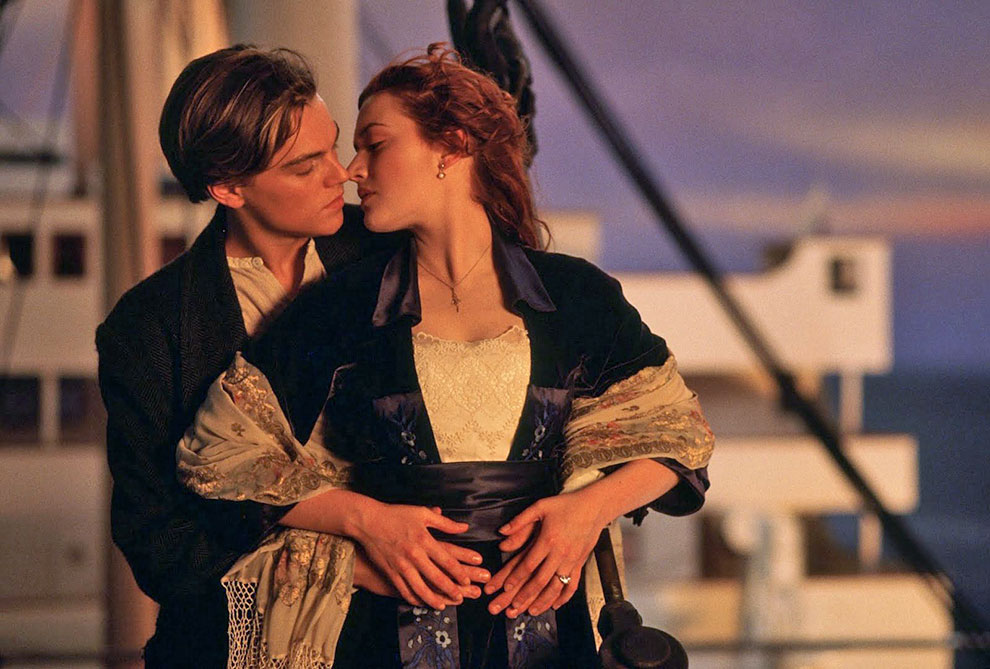
20th Century FOX
Directed by: James Cameron
Written by: James Cameron
The other Oscars it won: Cameron (Best Director); Russell Carpenter (Best Cinematography); Peter Lamont and Michael Ford (Best Art Direction); Deborah L. Scott (Best Costume Design); Conrad Buff, Cameron, and Richard A. Harris (Best Film Editing); James Horner (Best Original Score — Dramatic); Horner and Will Jennings (Best Original Song); Gary Rydstrom, Tom Johnson, Gary Summers, Mark Ulano (Best Sound); Tom Bellfort and Christopher Boyes (Best Sound Effects Editing); Robert Legato, Mark Lasoff, Thomas L. Fisher, and Michael Kanfer (Best Visual Effects)
What it beat for Best Picture: As Good as It Gets, The Full Monty, Good Will Hunting, L.A. Confidential
Written by: James Cameron
The other Oscars it won: Cameron (Best Director); Russell Carpenter (Best Cinematography); Peter Lamont and Michael Ford (Best Art Direction); Deborah L. Scott (Best Costume Design); Conrad Buff, Cameron, and Richard A. Harris (Best Film Editing); James Horner (Best Original Score — Dramatic); Horner and Will Jennings (Best Original Song); Gary Rydstrom, Tom Johnson, Gary Summers, Mark Ulano (Best Sound); Tom Bellfort and Christopher Boyes (Best Sound Effects Editing); Robert Legato, Mark Lasoff, Thomas L. Fisher, and Michael Kanfer (Best Visual Effects)
What it beat for Best Picture: As Good as It Gets, The Full Monty, Good Will Hunting, L.A. Confidential
The hardest movies to write about are the ones that have changed for you over the years. I saw Titanic the day it opened, in a packed — and emotionally packed — theater in New York City on a freezing December day. It was, I’m not embarrassed to say, a magical experience. The movie is a massive spectacle, and the story is epic. I cried more than once. Upon repeated viewings, on smaller screens, and with the phenomenon of Titanic (as opposed to the film Titanic) as a backdrop, the movie’s flaws — its terrible, cartoonish screenplay — glare. And yet, there will always be that first time I saw it. And that was a gift.
32. Annie Hall (1977)
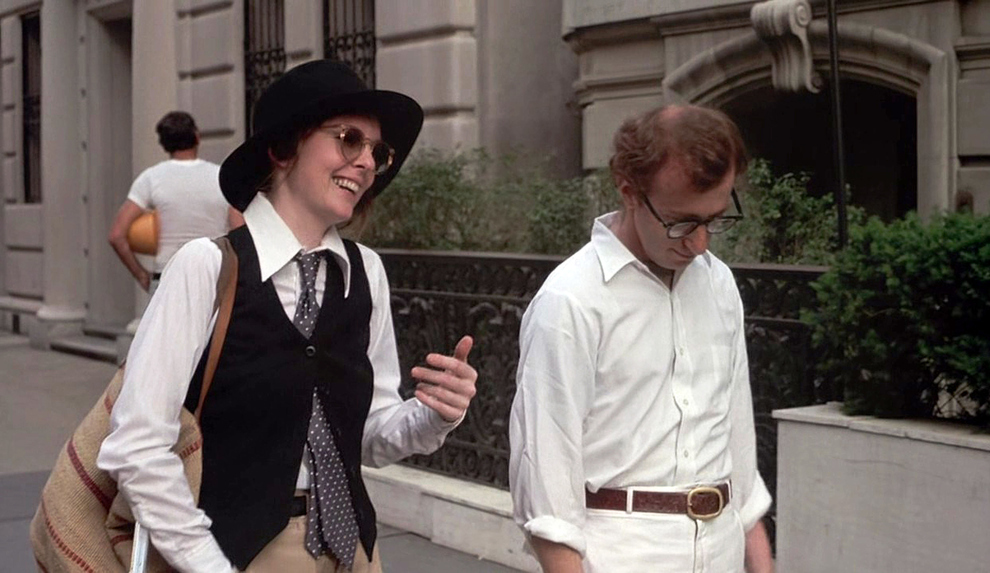
United Artists / Moviestore Collection / Rex / REX USA
Directed by: Woody Allen
Written by: Woody Allen and Marshall Brickman
The other Oscars it won: Allen (Best Director); Allen and Brickman (Best Original Screenplay); Diane Keaton (Best Actress)
What it beat for Best Picture: The Goodbye Girl, Julia, Star Wars, The Turning Point
Written by: Woody Allen and Marshall Brickman
The other Oscars it won: Allen (Best Director); Allen and Brickman (Best Original Screenplay); Diane Keaton (Best Actress)
What it beat for Best Picture: The Goodbye Girl, Julia, Star Wars, The Turning Point
To most of his fans, Woody Allen’s Annie Hall is the defining Allen comedy, the movie that sent his career away from the pure comedy of Bananas and Sleeper down a more complex, romantic path. Annie Hall was a sensation, from Diane Keaton’s trend-setting wardrobe to Allen’s breaking-the-fourth-wall techniques. Of course, to Allen’s detractors, Annie Hall is a fantasy about the belittlement of one of his silly women archetypes. (Not to be confused with one of his hysterics.)
31. All Quiet on the Western Front (1930)
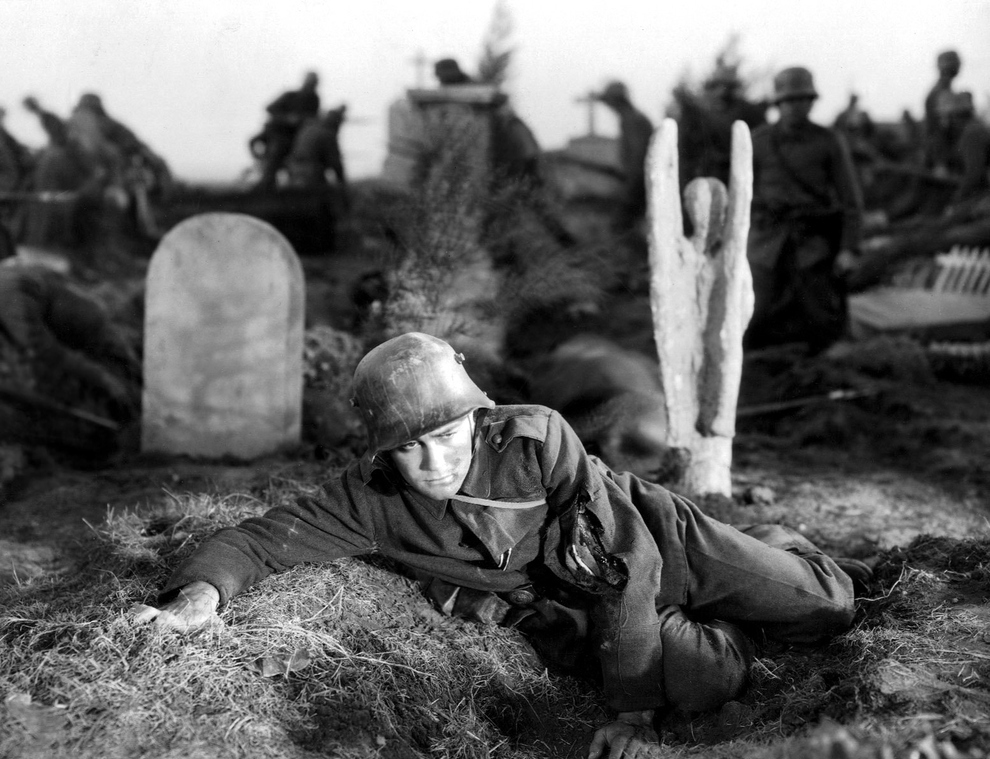
GTV Archive / REX USA
Directed by: Lewis Milestone
Written by: George Abbott, Maxwell Anderson, and Del Andrews
The other Oscars it won: Milestone (Best Director)
What it beat for Best Picture: The Big House, Disraeli, The Divorcee, The Love Parade
Written by: George Abbott, Maxwell Anderson, and Del Andrews
The other Oscars it won: Milestone (Best Director)
What it beat for Best Picture: The Big House, Disraeli, The Divorcee, The Love Parade
This unsparing anti-war film, based on the novel by Erich Maria Remarque, holds up well to modern eyes. (Modern ears, on the other hand, might wonder why the young German soldiers of World War I all had variations on Northeastern American tough-guy accents.) It’s a sad, brutal rendering of war made all the more depressing when you consider how many of the people who originally saw it would be fighting in World War II soon enough. If you happen to catch All Quiet on the Western Front on TCM, it looks pretty gorgeous.
30. Rocky (1976)
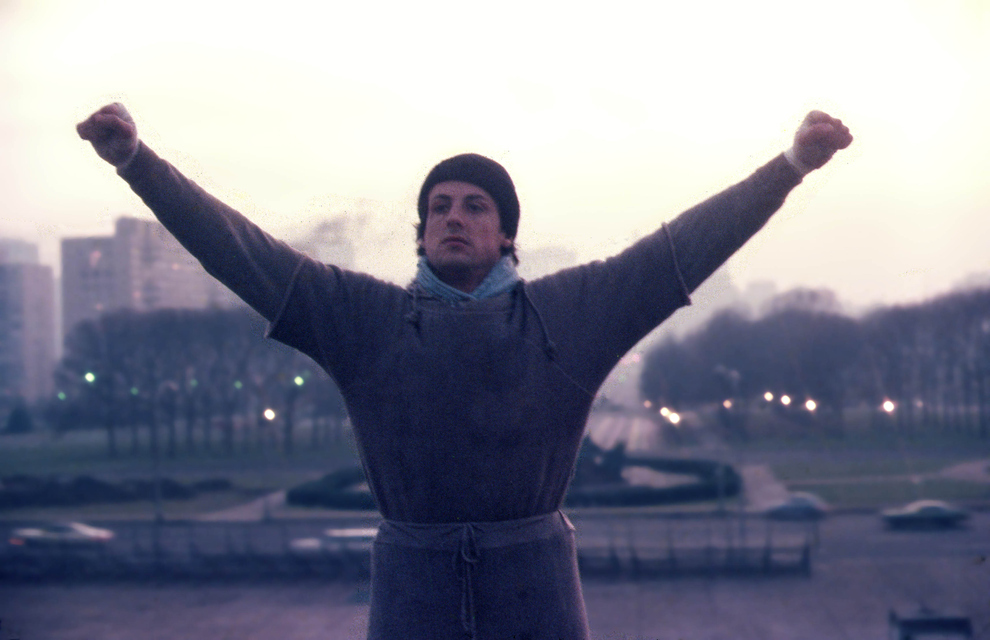
United Artists /Moviestore Collection / Rex / REX USA
Directed by: John G. Avildsen
Written by: Sylvester Stallone
The other Oscars it won: Avildsen (Best Director); Richard Halsey and Scott Conrad (Best Film Editing)
What it beat for Best Picture: All the President’s Men, Bound for Glory, Network, Taxi Driver
Written by: Sylvester Stallone
The other Oscars it won: Avildsen (Best Director); Richard Halsey and Scott Conrad (Best Film Editing)
What it beat for Best Picture: All the President’s Men, Bound for Glory, Network, Taxi Driver
Because it won against some classic movies, and because it spawned some questionable sequels, Rocky has suffered from slings and arrows cast against it over the years. But putting all of that aside, it’s a lovely movie with a strong point of view, and created the template for the modern sports movie. Sylvester Stallone, who now could also join the actors-who-play-drag-versions-of-themselves revue, is touching as Rocky — and he threw his whole body into it. Stallone was also nominated for Best Original Screenplay, but lost to Paddy Chayefsky for Network. (Thank god.)
29. The Sting (1973)
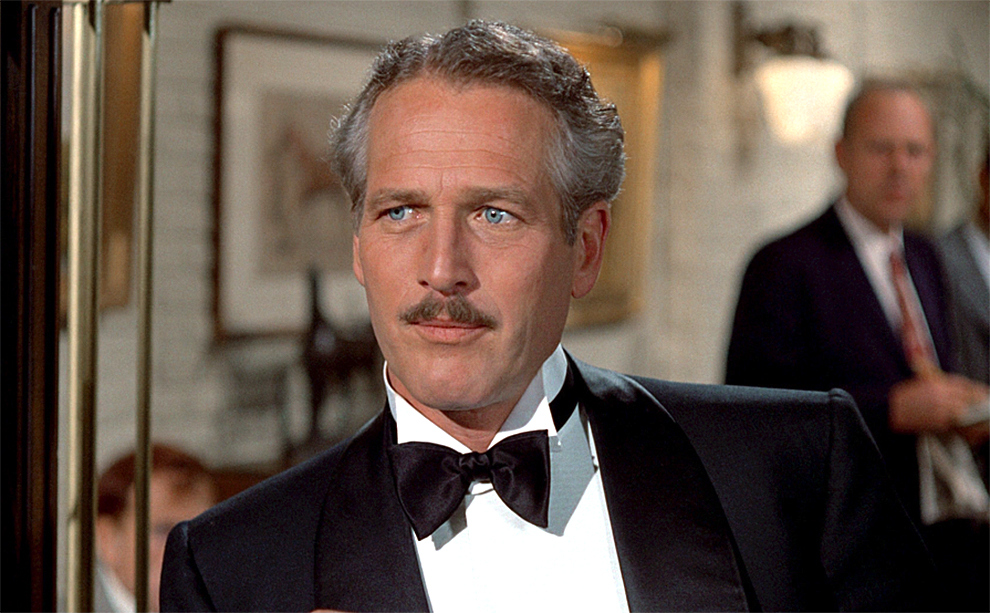
Universal Pictures
Directed by: George Roy Hill
Written by: David S. Ward
The other Oscars it won: Hill (Best Director); Ward (Best Original Screenplay); Henry Bumstead and James Payne (Best Art Direction); Edith Head (Best Costume Design); William Reynolds (Best Film Editing); Marvin Hamlisch (Best Score)
What it beat for Best Picture: American Graffiti, Cries and Whispers, The Exorcist, A Touch of Class
Written by: David S. Ward
The other Oscars it won: Hill (Best Director); Ward (Best Original Screenplay); Henry Bumstead and James Payne (Best Art Direction); Edith Head (Best Costume Design); William Reynolds (Best Film Editing); Marvin Hamlisch (Best Score)
What it beat for Best Picture: American Graffiti, Cries and Whispers, The Exorcist, A Touch of Class
Having seen The Sting a number of times, I still can never remember the actual “sting.” But that doesn’t mean the movie is forgettable; it means it’s complicated. The Sting does, however, get forgotten in Oscars history because it’s sandwiched between the two Godfather films, and has acted like an inadvertent palate cleanser as a result. Terrific Robert Redford and Paul Newman here, and just the best Edith Head costumes. (Though she was nominated two more times, The Sting was her last of eight Oscars.)
28. Spotlight, 2015

Open Road
Directed by: Tom McCarthy
Written by: Josh Singer and Tom McCarthy
The other Oscars it won: Singer and McCarthy (Best Original Screenplay)
What it beat for Best Picture: The Big Short, Bridge of Spies,
Brooklyn, Mad Max: Fury Road, The Martian, The Revenant, Room
Written by: Josh Singer and Tom McCarthy
The other Oscars it won: Singer and McCarthy (Best Original Screenplay)
What it beat for Best Picture: The Big Short, Bridge of Spies,
Brooklyn, Mad Max: Fury Road, The Martian, The Revenant, Room
Alejandro González Iñárritu’s The Revenant was the Best Picture favorite all throughout awards season until the week before the Oscars, when some pundits switched their predictions and correctly called it for Spotlight. Hallelujah, and what a relief! There is a lot to appreciate about The Revenant: Iñárritu’s huge scope and ambition, Leonardo DiCaprio’s undaunted Best Actor–winning performance, and Tom Hardy’s over-the-top villain, Fitzgerald. It’s all very big. Spotlight, on the other hand, is understated and precise. It’s a step-by-step, practically surgical look at how the Boston Globe’s investigative team, known as Spotlight, not only uncovered dozens of pedophiliac priests in the Boston area, but — more importantly — implicated the powerful archbishop of the city in their investigation. Cardinal Bernard Law, a pillar of the city, was directly complicit in coverups and payoffs, in shuffling the pedophiles from one parish to another, and in overseeing the mechanisms that concealed (and therefore allowed) these hideous crimes against children. Spotlight’s plot is sensational by nature, but the movie is never garish or exploitative — director Tom McCarthy treats even the attacks of Sept. 11, which interrupted the group’s reporting, with subtlety. The ensemble acting (which won a SAG Award) is triumphant, with the main cast — Michael Keaton, Rachel McAdams, Mark Ruffalo, Brian d’Arcy James, Liev Schreiber, and John Slattery — delivering quiet (with the exception of Ruffalo!) and realistic performances as dogged journalists (in pleated pants, no less). But the casting excellence doesn’t stop there: There’s Stanley Tucci as the slightly unhinged lawyer who sets off the movie’s course of events with his lawsuits against one priest; there’s Billy Crudup as a fancy lawyer who’s made a cottage industry out of sex abuse settlements; there’s Paul Guilfoyle as a dead-eyed Catholic Church spokesman who tries to use his influence to chill the investigation; and there are Michael Cyril Creighton and Jimmy LeBlanc — neither of whom I’d ever seen before — as survivors. Even Richard Jenkins, playing a former priest who is an expert on abuse in the Catholic Church, is excellent — and he’s only heard on the phone, for god’s sake! What I mean is: Every tiny piece of Spotlight works together to make a satisfying, propulsive whole. Rewatch it now if you want to feel better about the world.
27. Schindler’s List (1993)
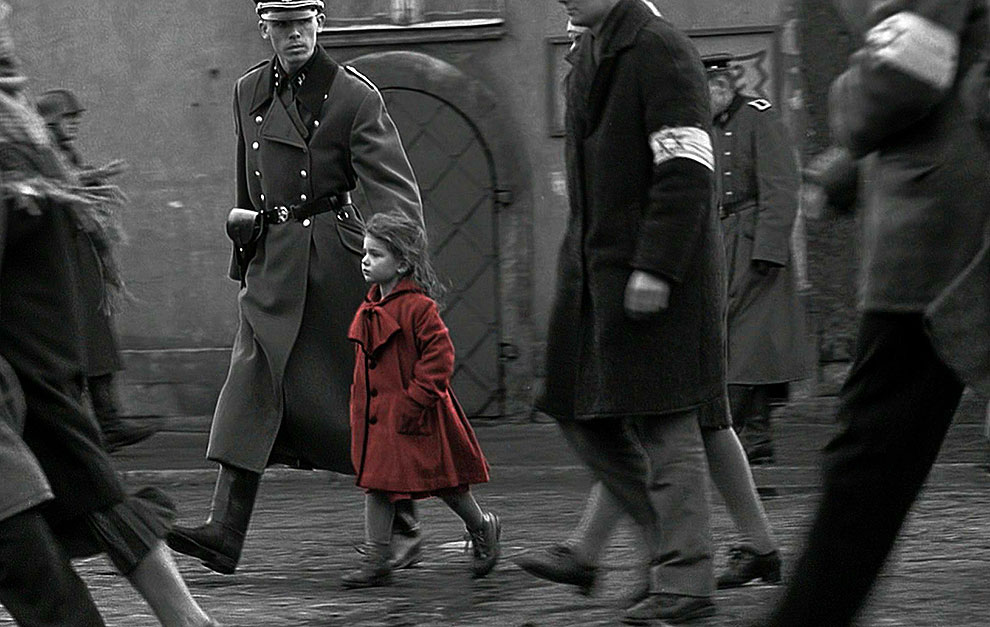
Universal Pictures
Directed by: Steven Spielberg
Written by: Steven Zaillian
The other Oscars it won: Spielberg (Best Director); Zaillian (Best Adapted Screenplay); Allan Starski and Ewa Braun (Best Art Direction); Janusz Kaminski (Best Cinematography); Michael Kahn (Best Film Editing); Christina Smith, Matthew Mungle, and Judy Alexander Cory (Best Makeup); John Williams (Best Original Score)
What it beat for Best Picture: The Fugitive, In the Name of the Father, The Piano, The Remains of the Day
Written by: Steven Zaillian
The other Oscars it won: Spielberg (Best Director); Zaillian (Best Adapted Screenplay); Allan Starski and Ewa Braun (Best Art Direction); Janusz Kaminski (Best Cinematography); Michael Kahn (Best Film Editing); Christina Smith, Matthew Mungle, and Judy Alexander Cory (Best Makeup); John Williams (Best Original Score)
What it beat for Best Picture: The Fugitive, In the Name of the Father, The Piano, The Remains of the Day
Schindler’s List is one of the most important movies of the 20th century, and critics are nearly unanimous that it’s the best movie ever made about the Holocaust. And probably ever will be. It’s certainly a stunning technical and visual achievement for Steven Spielberg. Not coincidentally, it’s yielded Spielberg his only Best Picture Oscar (so far). And Liam Neeson, who was not well known when the movie came out, grounds the movie. If you’re looking for a dissenting voice on Schindler’s List, do read Liel Leibovitz’s 2011 essay in Tablet in which he dissects the movie’s flaws: that the Jewish characters “do not matter”; that the villain, Amon Goeth (Ralph Fiennes), is “otherworldly” (like the shark in Jaws) instead of a realistic, ordinary person; and that it’s troubling that the only movie most people will ever see about the Holocaust is about life instead of death.
26. The Lord of the Rings: The Return of the King (2003)
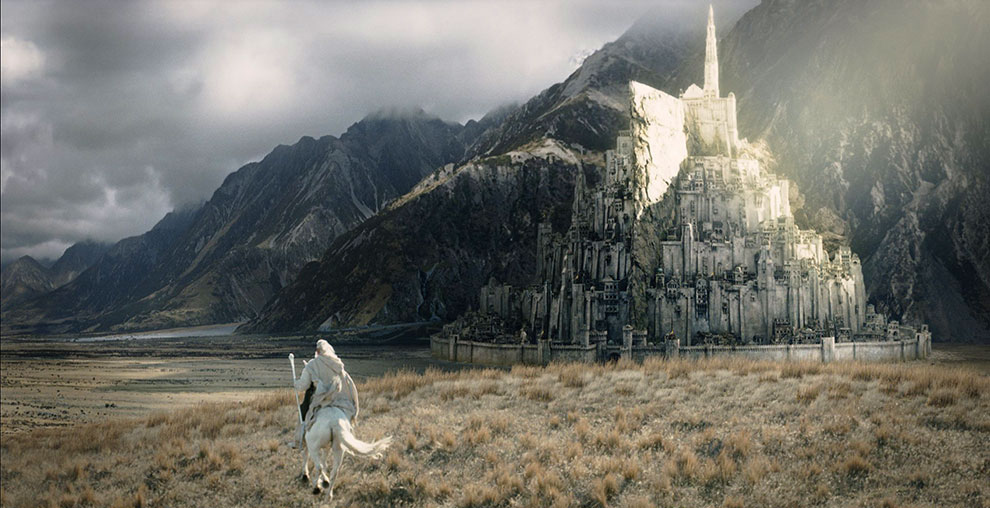
New Line Cinema
Directed by: Peter Jackson
Written by: Fran Walsh, Philippa Boyens, and Peter Jackson
The other Oscars it won: Jackson (Best Director); Walsh, Boyens, and Jackson (Best Adapted Screenplay); Grant Major, Dan Hennah, and Alan Lee (Best Art Direction); Ngila Dickson and Richard Taylor (Best Costume Design); Jamie Selkirk (Best Film Editing); Peter King and Taylor (Best Makeup); Howard Shore (Best Original Score); Walsh, Shore, and Annie Lennox (Best Original Song); Christopher Boyes, Michael Semanick, Michael Hedges, and Hammond Peek (Best Sound Mixing); Jim Rygiel, Joe Letteri, Randall William Cook, and Alex Funke (Best Visual Effects)
What it beat for Best Picture: Lost in Translation, Master and Commander: The Far Side of the World, Mystic River, Seabiscuit
Written by: Fran Walsh, Philippa Boyens, and Peter Jackson
The other Oscars it won: Jackson (Best Director); Walsh, Boyens, and Jackson (Best Adapted Screenplay); Grant Major, Dan Hennah, and Alan Lee (Best Art Direction); Ngila Dickson and Richard Taylor (Best Costume Design); Jamie Selkirk (Best Film Editing); Peter King and Taylor (Best Makeup); Howard Shore (Best Original Score); Walsh, Shore, and Annie Lennox (Best Original Song); Christopher Boyes, Michael Semanick, Michael Hedges, and Hammond Peek (Best Sound Mixing); Jim Rygiel, Joe Letteri, Randall William Cook, and Alex Funke (Best Visual Effects)
What it beat for Best Picture: Lost in Translation, Master and Commander: The Far Side of the World, Mystic River, Seabiscuit
Has the legacy of Peter Jackson’s superlative Lord of the Rings trilogy been tainted by his mediocre Hobbit trilogy? I feel that way myself but don’t know how widespread that sentiment is. These movies really are ambitious wonderments, and though the first two were nominated for Best Picture, it apparently took the Academy two years of voting to get used to the idea of it winning. And then they really went crazy: The Lord of the Rings: The Return of the King was nominated for 11 awards and won every single one for the biggest sweep in Oscars history.
25. On the Waterfront (1954)

Columbia Pictures / Moviestore Collection / Rex/ REX USA
Directed by: Elia Kazan
Written by: Budd Schulberg
The other Oscars it won: Kazan (Best Director); Schulberg (Best Original Screenplay); Marlon Brando (Best Actor); Eva Marie Saint (Best Supporting Actress); Boris Kaufman (Best Cinematography – Black and White); Richard Day (Best Art Direction – Black and White); Gene Milford (Best Film Editing)
What it beat for Best Picture: The Caine Mutiny, The Country Girl, Seven Brides for Seven Brothers, Three Coins in the Fountain
Written by: Budd Schulberg
The other Oscars it won: Kazan (Best Director); Schulberg (Best Original Screenplay); Marlon Brando (Best Actor); Eva Marie Saint (Best Supporting Actress); Boris Kaufman (Best Cinematography – Black and White); Richard Day (Best Art Direction – Black and White); Gene Milford (Best Film Editing)
What it beat for Best Picture: The Caine Mutiny, The Country Girl, Seven Brides for Seven Brothers, Three Coins in the Fountain
In order to enjoy On the Waterfront, you have to overlook Elia Kazan using it to voice his self-justifications for naming names to the House Un-American Activities Committee. If you manage that, you can see Marlon Brando’s best performance ever, and a marvelous supporting cast too (Eva Marie Saint, Rod Steiger, Karl Malden, and Lee J. Cobb).
24. In the Heat of the Night (1967)
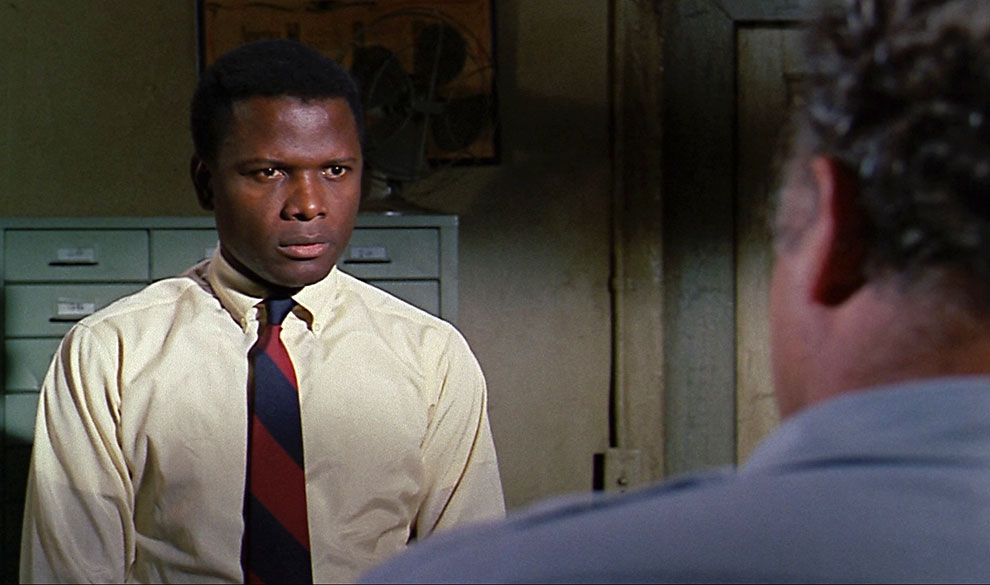
United Artists
Directed by: Norman Jewison
Written by: Stirling Silliphant
The other Oscars it won: Silliphant (Best Adapted Screenplay); Rod Steiger (Best Actor); Hal Ashby (Best Film Editing); Samuel Goldwyn Studio Sound Department (Best Sound)
What it beat for Best Picture: Bonnie and Clyde, Doctor Dolittle, The Graduate, Guess Who’s Coming to Dinner
Written by: Stirling Silliphant
The other Oscars it won: Silliphant (Best Adapted Screenplay); Rod Steiger (Best Actor); Hal Ashby (Best Film Editing); Samuel Goldwyn Studio Sound Department (Best Sound)
What it beat for Best Picture: Bonnie and Clyde, Doctor Dolittle, The Graduate, Guess Who’s Coming to Dinner
Because In the Heat of the Night won against The Graduate and Bonnie and Clyde, both of which are considered among the best American movies ever, it is remembered with some derision. And yes, one of those movies should have won. But In the Heat of the Night is such a delight, as is watching Sidney Poitier kick ass. It is one of the rare movies on this list that has perhaps aged into being a better film.
23. Midnight Cowboy (1969)
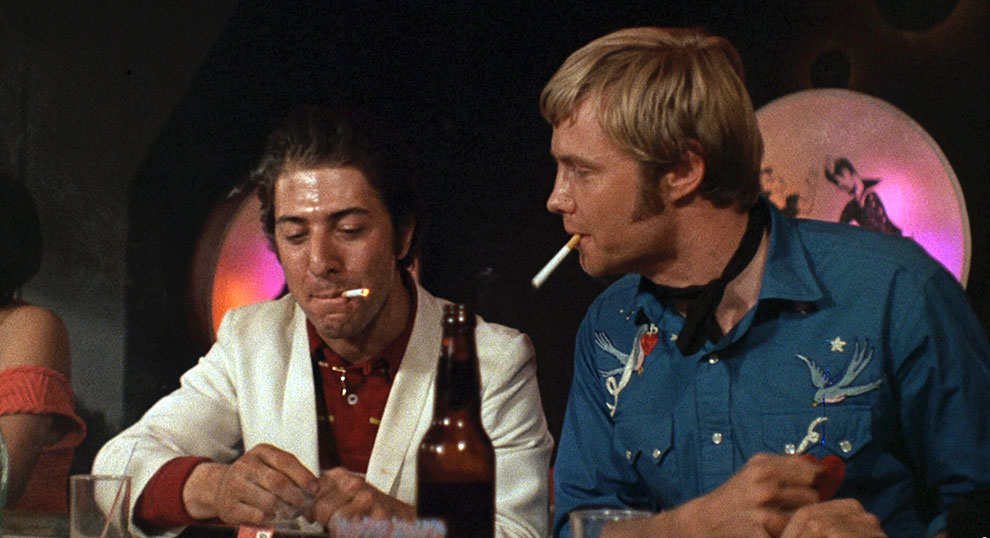
United Artists
Directed by: John Schlesinger
Written by: Waldo Salt
The other Oscars it won: Schlesinger (Best Director); Salt (Best Adapted Screenplay)
What it beat for Best Picture: Anne of the Thousand Days, Butch Cassidy and the Sundance Kid, Hello, Dolly!, Z
Written by: Waldo Salt
The other Oscars it won: Schlesinger (Best Director); Salt (Best Adapted Screenplay)
What it beat for Best Picture: Anne of the Thousand Days, Butch Cassidy and the Sundance Kid, Hello, Dolly!, Z
Midnight Cowboy was a daring spectacle in 1969, and its portrayal of prostitution and same-sex relationships (and gay male prostitution) was unprecedented. Dustin Hoffman and Jon Voight work remarkably together, and the fact that they’re physical opposites makes every scene visually interesting. It’s an imperfect movie, and its sexual politics are odd. There are also strange meanderings in the story, as in the Andy Warhol-inspired party sequence that doesn’t really work in the movie. But from an anthropological perspective, Midnight Cowboy’s view of love and sex in 1969 and its portrayal of New York bottom-feeders are enthralling.
22. The Apartment (1960)

United Artists
Directed by: Billy Wilder
Written by: Billy Wilder and I.A.L. Diamond
The other Oscars it won: Wilder (Best Director); Diamond and Wilder (Best Original Screenplay); Alexander Trauner and Edward G. Boyle (Best Art Direction – Black and White); Daniel Mandell (Best Film Editing)
What it beat for Best Picture: The Alamo, Elmer Gantry, Sons and Lovers, The Sundowners
Written by: Billy Wilder and I.A.L. Diamond
The other Oscars it won: Wilder (Best Director); Diamond and Wilder (Best Original Screenplay); Alexander Trauner and Edward G. Boyle (Best Art Direction – Black and White); Daniel Mandell (Best Film Editing)
What it beat for Best Picture: The Alamo, Elmer Gantry, Sons and Lovers, The Sundowners
The Apartment has plenty of funny moments in it, but at some point in the past 50 years, it evolved from being classified as a comedy to a pretty pure drama — after all, it’s the poignant story of two lost single people and the more powerful people who use them. Best ending of a romance ever.
21. Rebecca (1940)

United Artist
Directed by: Alfred Hitchcock
Written by: Philip MacDonald and Michael Hogan
The other Oscars it won: George Barnes (Best Cinematography – Black and White)
What it beat for Best Picture: All This, and Heaven Too, Foreign Correspondent, The Grapes of Wrath, The Great Dictator, Kitty Foyle, The Letter, The Long Voyage Home, Our Town, The Philadelphia Story
Written by: Philip MacDonald and Michael Hogan
The other Oscars it won: George Barnes (Best Cinematography – Black and White)
What it beat for Best Picture: All This, and Heaven Too, Foreign Correspondent, The Grapes of Wrath, The Great Dictator, Kitty Foyle, The Letter, The Long Voyage Home, Our Town, The Philadelphia Story
Rebecca has one of the best beginnings of a movie ever, with Joan Fontaine’s voiceover of the Daphne Du Maurier novel’s famous first line, “Last night I dreamt I went to Manderley again.” Rebecca was Alfred Hitchcock’s only movie to win Best Picture — he beat his own (much lesser) work, Foreign Correspondent, which was also released in 1940. The fog, in which the movie is encased, should have won Best Supporting Actor.
20. No Country for Old Men (2007)
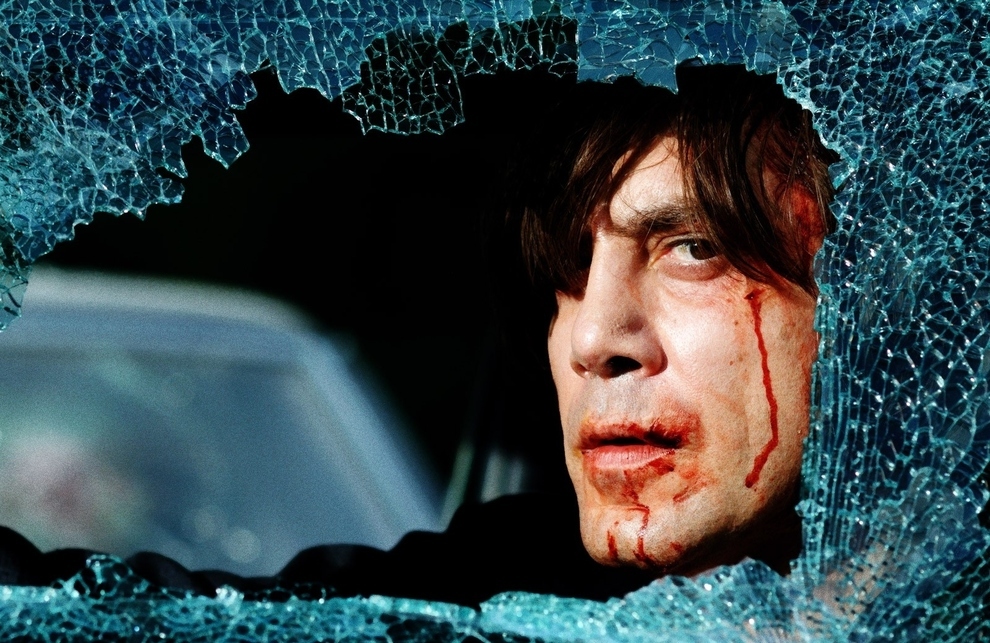
Paramount Vantage
Directed by: Joel and Ethan Coen
Written by: Joel Coen and Ethan Coen
The other Oscars it won: Coen and Coen (Best Director); Coen and Coen (Best Adapted Screenplay); Javier Bardem (Best Supporting Actor)
What it beat for Best Picture: Atonement, Juno, Michael Clayton, There Will Be Blood
Written by: Joel Coen and Ethan Coen
The other Oscars it won: Coen and Coen (Best Director); Coen and Coen (Best Adapted Screenplay); Javier Bardem (Best Supporting Actor)
What it beat for Best Picture: Atonement, Juno, Michael Clayton, There Will Be Blood
Though there were plenty of people who preferred the messier, similarly dark There Will Be Blood at the 2008 Oscars; the formal precision of Joel and Ethan Coen’s No Country for Old Men was more of an Oscar movie. While Javier Bardem won as the psychotic, Terminator-like Anton, Tommy Lee Jones wasn’t nominated as Sheriff Bell. (He was, weirdly, nominated for Best Actor for the movie In the Valley of Elah, which no one has thought of since.)
19. Terms of Endearment (1983)
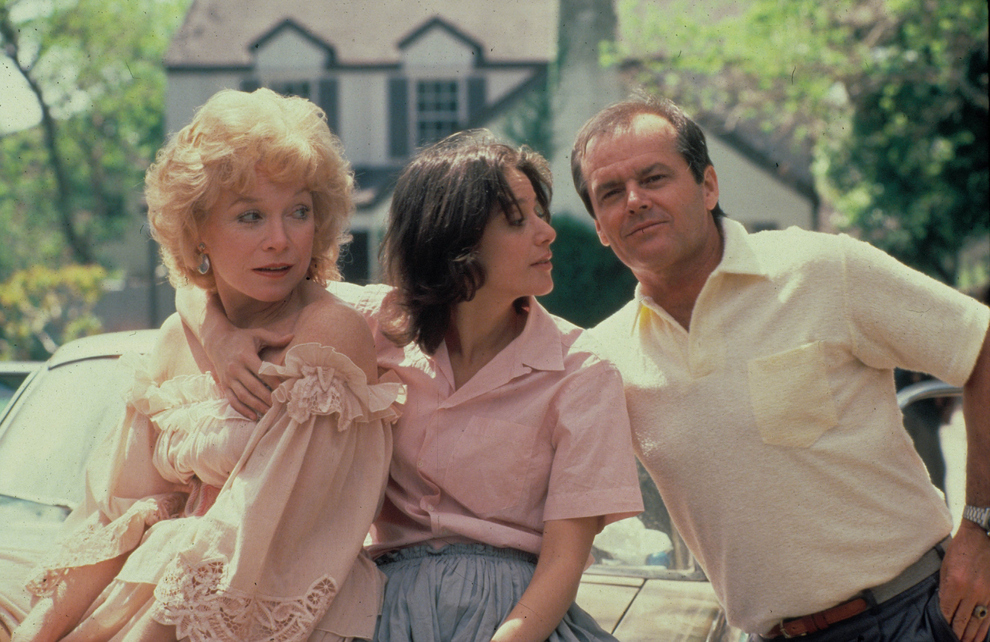
Moviestore / Rex / REX USA
Directed by: James L. Brooks
Written by: James L. Brooks
The other Oscars it won: Brooks (Best Director); Brooks (Best Adapted Screenplay); Shirley MacLaine (Best Actress); Jack Nicholson (Best Supporting Actor)
What it beat for Best Picture: The Big Chill, The Dresser, The Right Stuff, Tender Mercies
Written by: James L. Brooks
The other Oscars it won: Brooks (Best Director); Brooks (Best Adapted Screenplay); Shirley MacLaine (Best Actress); Jack Nicholson (Best Supporting Actor)
What it beat for Best Picture: The Big Chill, The Dresser, The Right Stuff, Tender Mercies
This old-fashioned weepy, one of the few “women’s films” that’s ever won Best Picture, has turned out to be timeless — because the screenplay, which James L. Brooks adapted from Larry McMurtry’s novel, is sharp as hell. Shirley MacLaine and Debra Winger, who pretty much hated each other throughout filming (and after), made their competition work for the movie. MacLaine gets the showier role in Aurora, so she won the Oscar, but it’s Winger as funny introvert Emma who will break your heart. Even so, Jack Nicholson somehow manages to steal every scene, and there’s never been a movie jerk before or since like Jeff Daniels’ Flap. Also, Terms of Endearment has the saddest scene ever in a movie, and I just watched it and am now crying at my desk.
18. The French Connection (1971)
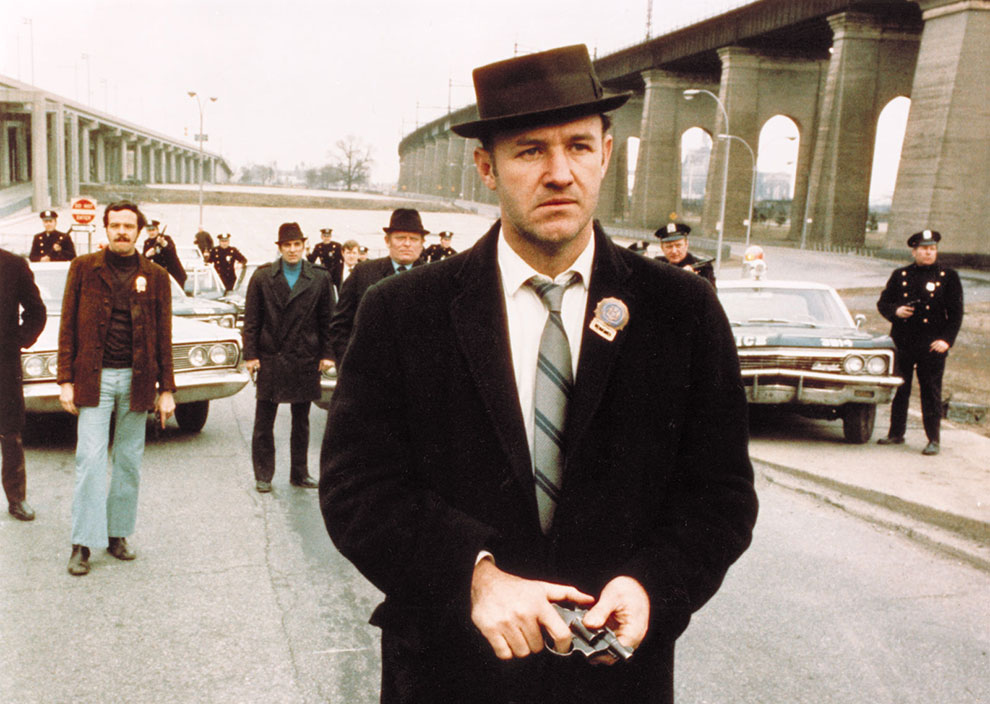
Twentieth Century Fox
Directed by: William Friedkin
Written by: Ernest Tidyman
The other Oscars it won: Friedkin (Best Director); Tidyman (Best Adapted Screenplay); Gene Hackman (Best Actor); Gerald B. Greenberg (Best Film Editing)
What it beat for Best Picture: A Clockwork Orange, Fiddler on the Roof, The Last Picture Show, Nicholas and Alexandra
Written by: Ernest Tidyman
The other Oscars it won: Friedkin (Best Director); Tidyman (Best Adapted Screenplay); Gene Hackman (Best Actor); Gerald B. Greenberg (Best Film Editing)
What it beat for Best Picture: A Clockwork Orange, Fiddler on the Roof, The Last Picture Show, Nicholas and Alexandra
Popeye Doyle, the vicious and single-minded cop determined to bring down a heroin ring, is the defining role of Gene Hackman’s long career as a character actor. But he was the lead here, and was rewarded for it. The French Connection is propulsive, and is defined by the car-versus-subway chase scene, though to see the movie now, you may not be as impressed since William Friedkin’s direction of it has been imitated for more than 40 years. That’s OK, though: The movie stands on its own merits, even if seems like an odd Oscar movie to us. (Do you think A Clockwork Orange should have won here? There are certainly lots of people who do.)
17. The Best Years of Our Lives (1946)
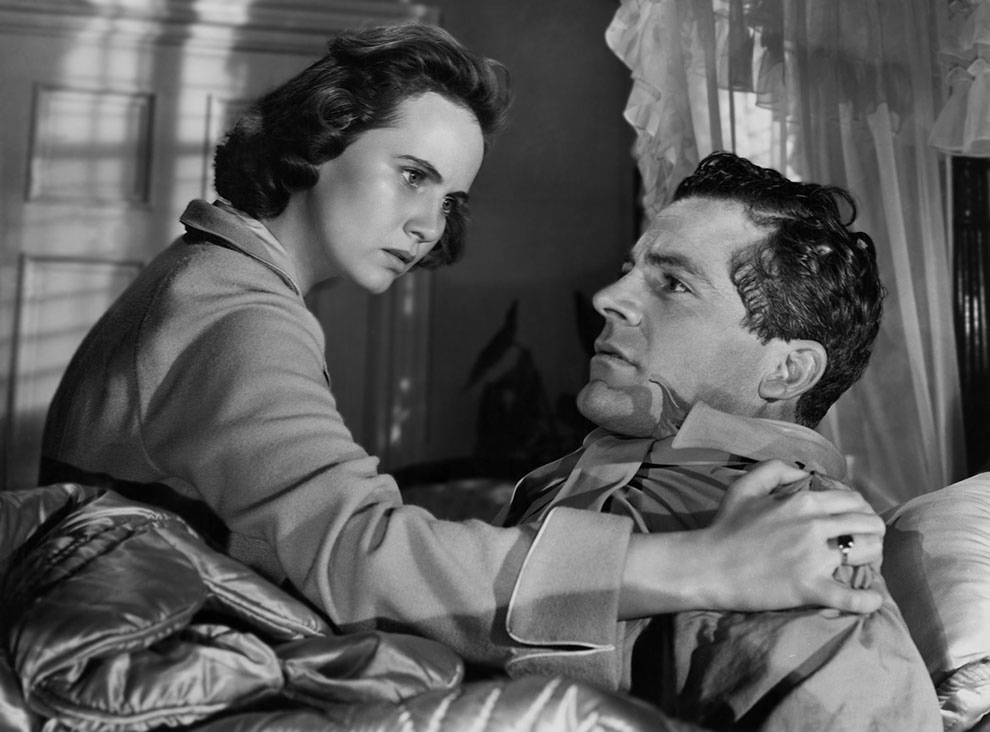
MGM
Directed by: William Wyler
Written by: Robert E. Sherwood
The other Oscars it won: Wyler (Best Director); Sherwood (Best Adapted Screenplay); Fredric March (Best Actor); Harold Russell (Best Supporting Actor); Daniel Mandell (Best Film Editing); Hugo Friedhofer (Best Original Score – Dramatic or Comedy); Russell (Honorary Award)
What it beat for Best Picture: Henry V, It’s a Wonderful Life, The Razor’s Edge, The Yearling
Written by: Robert E. Sherwood
The other Oscars it won: Wyler (Best Director); Sherwood (Best Adapted Screenplay); Fredric March (Best Actor); Harold Russell (Best Supporting Actor); Daniel Mandell (Best Film Editing); Hugo Friedhofer (Best Original Score – Dramatic or Comedy); Russell (Honorary Award)
What it beat for Best Picture: Henry V, It’s a Wonderful Life, The Razor’s Edge, The Yearling
There are movies like Gentleman’s Agreement that try to address the wounds of World War II and fail to. And then there is The Best Years of Our Lives. This gutsy story about three veterans of the war who’ve returned home physically and psychologically damaged is touching, and rarely dogmatic despite how recently the war had ended. One Oscars oddity about this movie: Harold Russell, who plays Homer Parrish, was not an actor, but a veteran who had lost both of his hands in the war. He won Best Supporting Actor and a special Oscar “for bringing hope and courage to his fellow veterans through his appearance in The Best Years of Our Lives.”
16. My Fair Lady (1964)
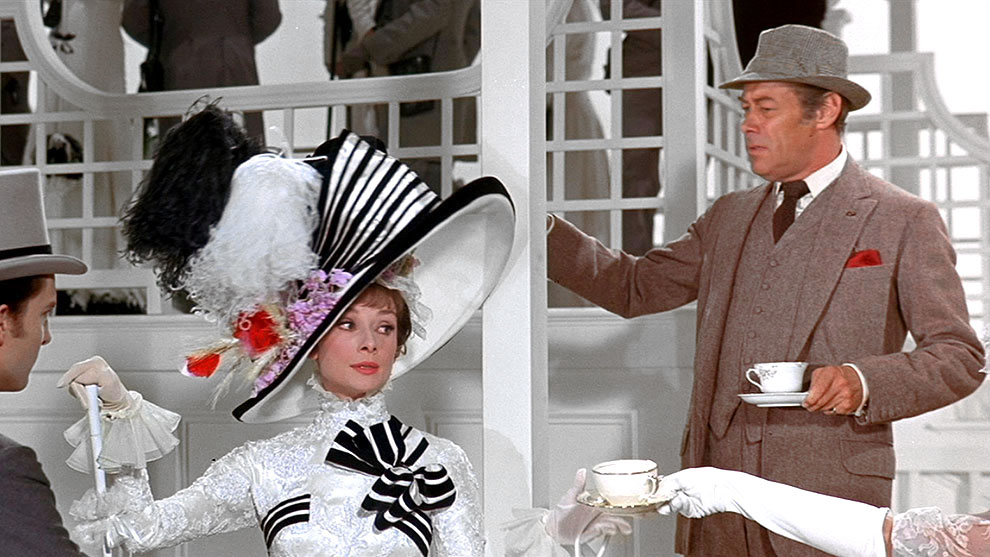
Warner Brothers
Directed by: George Cukor
Written by: Alan Jay Lerner
The other Oscars it won: Cukor (Best Director); Rex Harrison (Best Actor); Gene Allen, Cecil Beaton, and George James Hopkins (Best Art Direction – Color); Harry Stradling (Best Cinematography – Color); Cecil Beaton (Best Costume Design – Color); Warner Bros. Studio Sound Department and George R. Groves (Best Sound); André Previn (Best Score — Adaptation or Treatment)
What it beat for Best Picture: Becket, Dr. Strangelove or: How I Learned to Stop Worrying and Love the Bomb, Mary Poppins, Zorba the Greek
Written by: Alan Jay Lerner
The other Oscars it won: Cukor (Best Director); Rex Harrison (Best Actor); Gene Allen, Cecil Beaton, and George James Hopkins (Best Art Direction – Color); Harry Stradling (Best Cinematography – Color); Cecil Beaton (Best Costume Design – Color); Warner Bros. Studio Sound Department and George R. Groves (Best Sound); André Previn (Best Score — Adaptation or Treatment)
What it beat for Best Picture: Becket, Dr. Strangelove or: How I Learned to Stop Worrying and Love the Bomb, Mary Poppins, Zorba the Greek
To express his enthusiasm for My Fair Lady, Roger Ebert aped its premise, writing, “It is unnecessary to summarize the plot or list the songs; if you are not familiar with both, you are culturally illiterate, although in six months I could pass you off as a critic at Cannes, or even a clerk in a good video store, which requires better taste.” Just under three hours, George Cukor’s adaptation of the musical does sweep you up. And with distance coupled with the pervasive non-singing era in which we live, we can now appreciate Audrey Hepburn, whose Eliza was under great scrutiny because Hepburn was not Julie Andrews (who played the character on stage) and because she did not sing the songs herself. What an odd time 1964 was to yield both this old Hollywood Warner Bros. production and Stanley Kubrick’s Dr. Strangelove.
15. From Here to Eternity (1953)
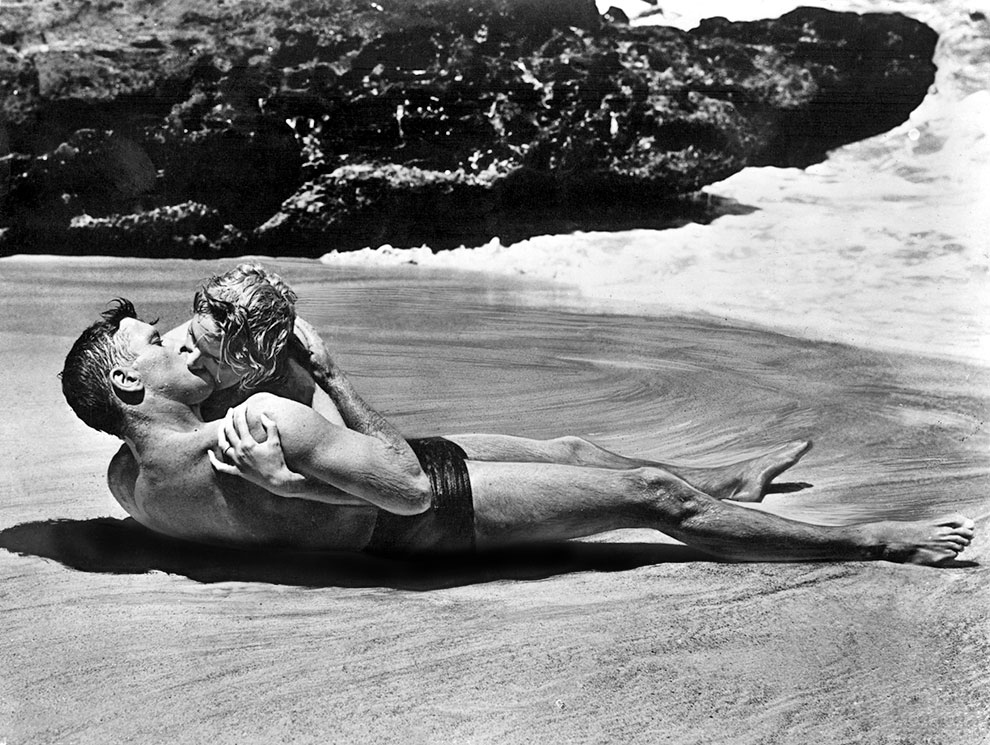
Columbia Pictures
Directed by: Fred Zinnemann
Written by: Daniel Taradash
The other Oscars it won: Zinnemann (Best Director); Taradash (Best Screenplay); Frank Sinatra (Best Supporting Actor); Donna Reed (Best Supporting Actress); Burnett Guffey (Best Cinematography – Black and White); William Lyon (Best Film Editing); John P. Livadary, Columbia Studio Sound Department (Best Sound)
What it beat for Best Picture: Julius Caesar, The Robe, Roman Holiday, Shane
Written by: Daniel Taradash
The other Oscars it won: Zinnemann (Best Director); Taradash (Best Screenplay); Frank Sinatra (Best Supporting Actor); Donna Reed (Best Supporting Actress); Burnett Guffey (Best Cinematography – Black and White); William Lyon (Best Film Editing); John P. Livadary, Columbia Studio Sound Department (Best Sound)
What it beat for Best Picture: Julius Caesar, The Robe, Roman Holiday, Shane
The dread of Pearl Harbor looms over From Here to Eternity, where an ensemble that includes Burt Lancaster, Frank Sinatra, Donna Reed, and Montgomery Clift enact personal dramas that will soon be eclipsed, we know, by the beginning of World War II. The famous image of Lancaster and Deborah Kerr in the surf has overshadowed From Here to Eternity, but there’s a lot more going on here. (Read this interesting piece from The New Republic in 2011 that focuses on Reed’s desperate character, Lorene, for one example.)
14. Patton (1970)
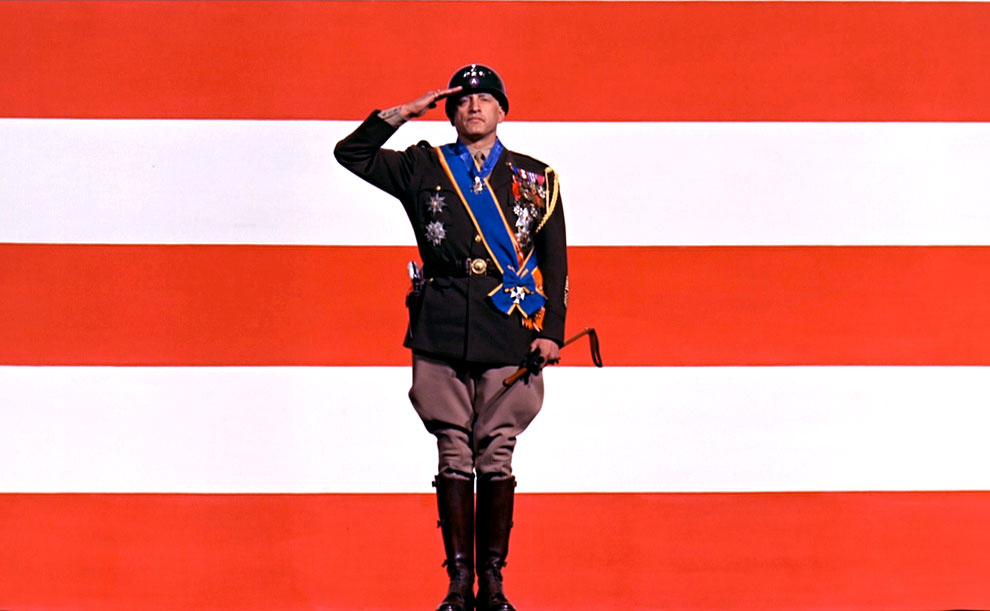
20th Century Fox
Directed by: Franklin J. Schaffner
Written by: Francis Ford Coppola and Edmund H. North
The other Oscars it won: Schaffner (Best Director); Coppola and North (Best Screenplay); George C. Scott (Best Actor); Urie McCleary, Gil Parrondo, Antonio Mateos, and Pierre-Louis Thevenet (Best Art Direction); Hugh S. Fowler (Best Film Editing); Douglas Williams and Don Bassman (Best Sound)
What it beat for Best Picture: Airport, Five Easy Pieces, Love Story, M*A*S*H
Written by: Francis Ford Coppola and Edmund H. North
The other Oscars it won: Schaffner (Best Director); Coppola and North (Best Screenplay); George C. Scott (Best Actor); Urie McCleary, Gil Parrondo, Antonio Mateos, and Pierre-Louis Thevenet (Best Art Direction); Hugh S. Fowler (Best Film Editing); Douglas Williams and Don Bassman (Best Sound)
What it beat for Best Picture: Airport, Five Easy Pieces, Love Story, M*A*S*H
There are a few movies on this list that I’ve noted have been forgotten; Patton’s director, Franklin J. Schaffner, who won Best Director here, and also made The Planet of the Apes, Papillon, The Boys From Brazil, and had a prolific career in television during the Golden Age, is, if not forgotten, then overlooked. Patton is riveting because of George C. Scott’s intensity, of course, but also because of Schaffner’s choices to make Scott the center of every scene. There’s also the movie’s signature stunning visual that goes along with Scott’s famous speech.
13. One Flew Over the Cuckoo’s Nest (1975)
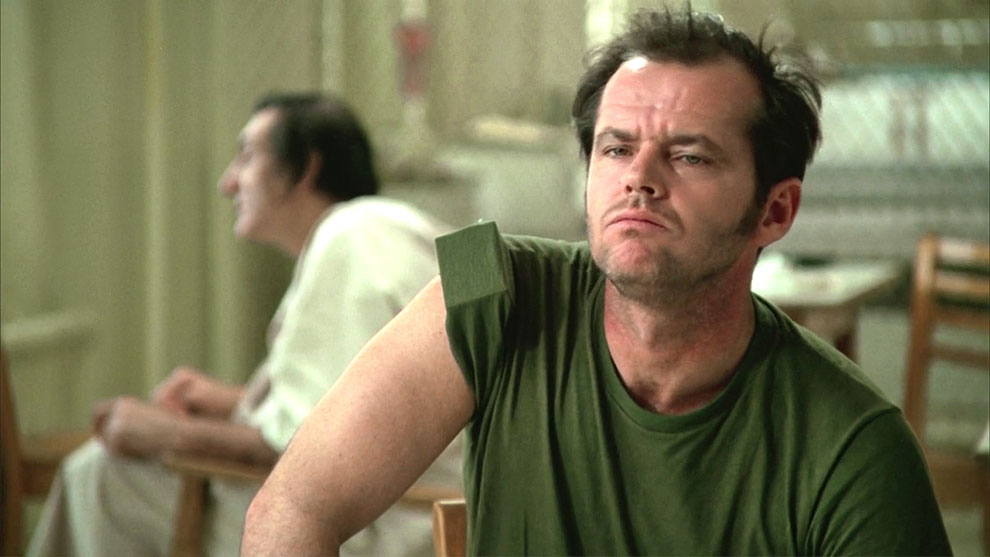
United Artists
Directed by: Miloš Forman
Written by: Lawrence Hauben and Bo Goldman
The other Oscars it won: Forman (Best Director); Hauben and Goldman (Best Adapted Screenplay); Jack Nicholson (Best Actor); Louise Fletcher (Best Actress)
What it beat for Best Picture: Barry Lyndon, Dog Day Afternoon, Jaws, Nashville
Written by: Lawrence Hauben and Bo Goldman
The other Oscars it won: Forman (Best Director); Hauben and Goldman (Best Adapted Screenplay); Jack Nicholson (Best Actor); Louise Fletcher (Best Actress)
What it beat for Best Picture: Barry Lyndon, Dog Day Afternoon, Jaws, Nashville
What a year for movies — can you imagine? Jaws is my favorite movie of all-time, so that would be my personal pick here. But One Flew over the Cuckoo’s Nest, with its quintessential ’70s message (translated from Ken Kesey’s 1962 book) about rebellion and identity — seen through Jack Nicholson’s McMurphy vs. Louise Fletcher’s Nurse Ratched — certainly makes sense as the winner. And win it did: It took every top award.
12. Gone With the Wind (1939)
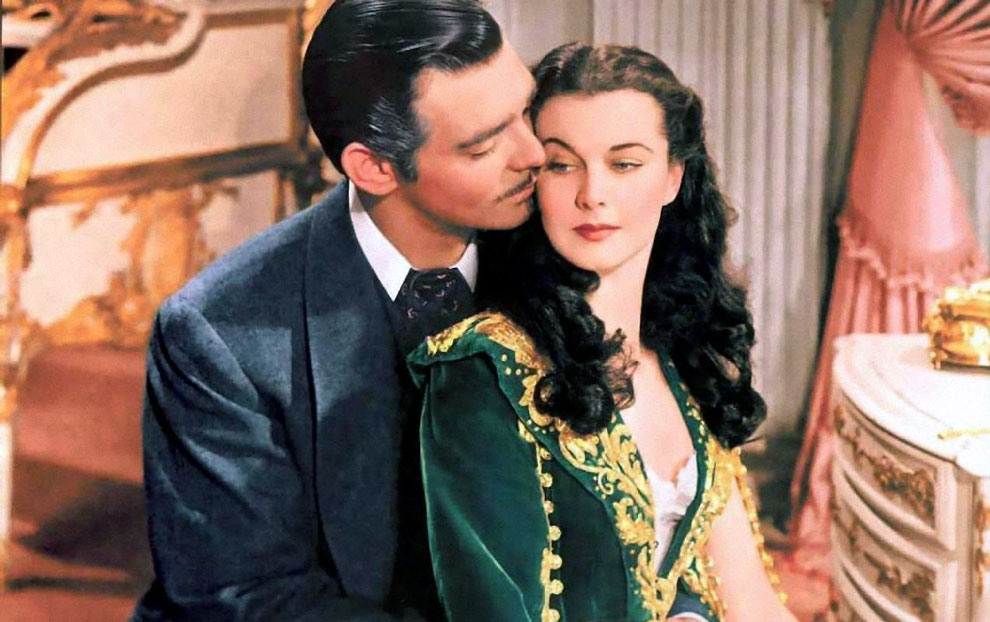
MGM
Directed by: Victor Fleming
Written by: Sidney Howard
The other Oscars it won: Fleming (Best Director); Howard (Best Adapted Screenplay); Vivien Leigh (Best Actress); Hattie McDaniel (Best Supporting Actress); Ernest Haller and Ray Rennahan (Best Cinematography – Color); Lyle R. Wheeler (Best Art Direction); Hal C. Kern and James E. Newcom (Best Film Editing); R.D. Musgrave and Selznick International Pictures (Technical Achievement Award); William Cameron Menzies (Honorary Award)
What it beat for Best Picture: Dark Victory, Goodbye, Mr. Chips, Love Affair, Mr. Smith Goes to Washington, Ninotchka, Of Mice and Men, Stagecoach, The Wizard of Oz, Wuthering Heights
Written by: Sidney Howard
The other Oscars it won: Fleming (Best Director); Howard (Best Adapted Screenplay); Vivien Leigh (Best Actress); Hattie McDaniel (Best Supporting Actress); Ernest Haller and Ray Rennahan (Best Cinematography – Color); Lyle R. Wheeler (Best Art Direction); Hal C. Kern and James E. Newcom (Best Film Editing); R.D. Musgrave and Selznick International Pictures (Technical Achievement Award); William Cameron Menzies (Honorary Award)
What it beat for Best Picture: Dark Victory, Goodbye, Mr. Chips, Love Affair, Mr. Smith Goes to Washington, Ninotchka, Of Mice and Men, Stagecoach, The Wizard of Oz, Wuthering Heights
When we watch Gone With the Wind, we’re asked us to put aside both our knowledge of and feelings about the pre-Civil War South (with the movie’s troublingly bucolic imagery of plantation culture), and then of and about the Civil War itself. In that way, Gone Wth the Wind shares something with All Quiet on the Western Front, in which the audience identifies with German soldiers from World War I. But you could argue that’s what movies are for. Gone With the Wind is a true epic, and time passes for these characters, taking us along with it. It feels massive as you watch it, and it’s a credit to Vivien Leigh and Clark Gable they are not dwarfed by the movie itself.
11. Unforgiven (1992)
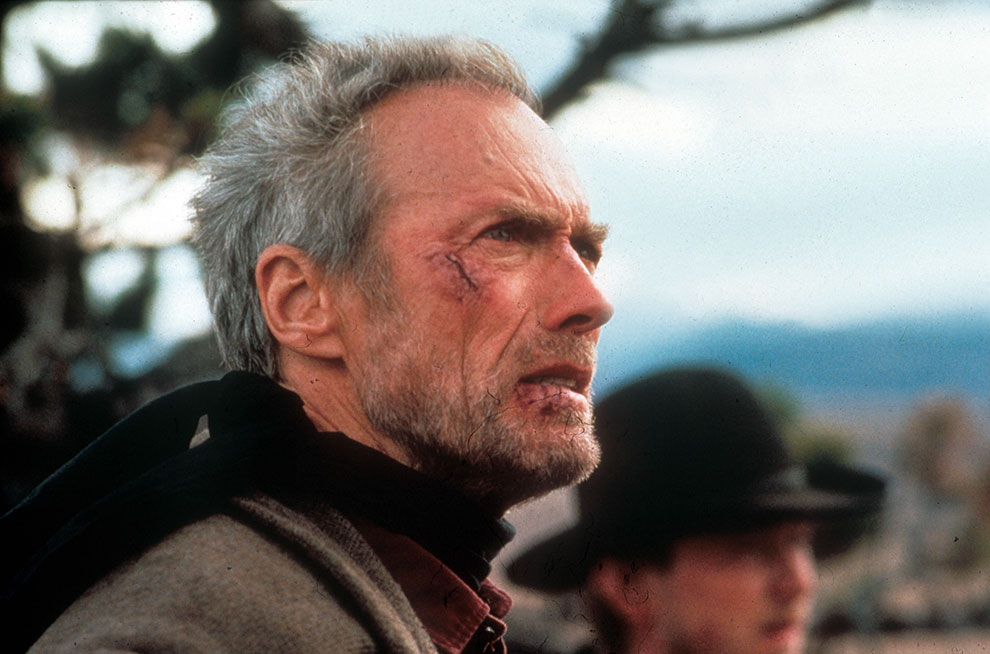
Moviestore Collection / Rex / REX USA
Directed by: Clint Eastwood
Written by: David Webb Peoples
The other Oscars it won: Eastwood (Best Director); Gene Hackman (Best Supporting Actor); Joel Cox (Best Film Editing)
What it beat for Best Picture: The Crying Game, A Few Good Men, Howards End, Scent of a Woman
Written by: David Webb Peoples
The other Oscars it won: Eastwood (Best Director); Gene Hackman (Best Supporting Actor); Joel Cox (Best Film Editing)
What it beat for Best Picture: The Crying Game, A Few Good Men, Howards End, Scent of a Woman
Clint Eastwood’s best movie as a director featured perhaps his best acting too. The Academy Awards have always had a strange prejudice against Westerns — until Unforgiven, only Dances With Wolves and Cimarron had won among that genre. But Unforgiven’s dark, violent, literate themes are transfixing, as are all of its performances.
10. 12 Years a Slave (2013)
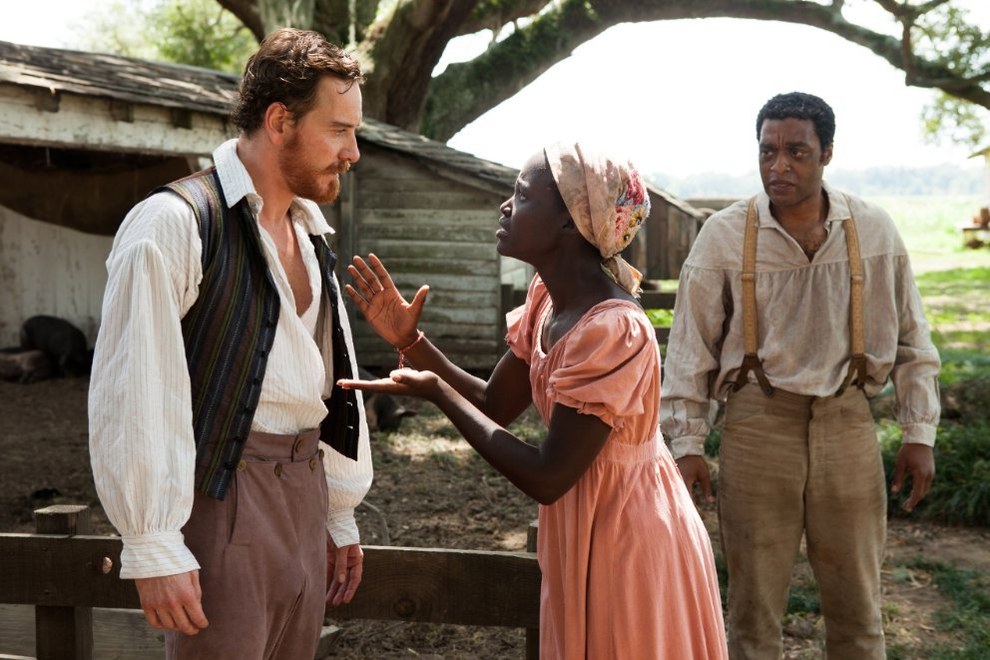
Fox Searchlight Pictures
Directed by: Steve McQueen
Written by: John Ridley
The other Oscars it won: Lupita Nyong’o (Best Supporting Actress), John Ridley (Best Adapted Screenplay)
What it beat for Best Picture: American Hustle, Captain Phillips, Dallas Buyers Club, Gravity, Her, Nebraska, Philomena, The Wolf of Wall Street
Written by: John Ridley
The other Oscars it won: Lupita Nyong’o (Best Supporting Actress), John Ridley (Best Adapted Screenplay)
What it beat for Best Picture: American Hustle, Captain Phillips, Dallas Buyers Club, Gravity, Her, Nebraska, Philomena, The Wolf of Wall Street
Two hours into 12 Years a Slave — with 15 minutes remaining in the movie — there is a scene in which violinist, father, and husband-turned-slave Solomon Northup (Chiwetel Ejiofor) simply thinks in an uninterrupted medium close-up shot. He stands outside and looks around a bit, but mostly, he’s just having thoughts the audience isn’t privy to. The 90-second scene did not register with me the first time I saw 12 Years a Slave because I had been braced in a tight clench for two hours at that point — I’m sure that when I saw Solomon having a quiet moment, I was terrified about what violence might interrupt him. (Nothing does.) But to watch 12 Years a Slave a second time is to appreciate the movie for its dust particles instead of its mallets. Steve McQueen’s vision is precise, and each scene is blocked with exactness, like when the psychotic, drunken slavemaster Epps (Michael Fassbender) greets Solomon and some other returning slaves he had rented to a neighbor, and casually leans on one woman as if she were a dresser. In the now famous scene in which Solomon, who had nearly been lynched, must stand on his tiptoes to avoid being strangled by the noose still around his neck, plantation life goes on behind him, as slaves pretending not to see what’s happening go about their day (except for one woman who gives him water). And then there’s the last time we see Patsey (Lupita Nyong’o), Solomon’s friend, Epps’ obsession, and 12 Years a Slave’s picture in the attic (she is the body that wears slavery’s horrors). As Solomon sets off with his rescuers, having finally been proven to be a free man, his face is in close-up — and Patsey, left behind and far away in every sense, collapses in the blurry background. But the movie’s aforementioned mallets are crucial here too. There have been films about slavery before, but given its importance in world history, surprisingly few. McQueen, who is British, and American screenwriter John Ridley (who adapted Northup’s book) took on a massive responsibility with 12 Years a Slave, yet it succeeds in both telling the story of one atypical man and in giving an illuminating glimpse at an entire institution. It’s a marvel, and one for the ages.
9. The Deer Hunter (1978)
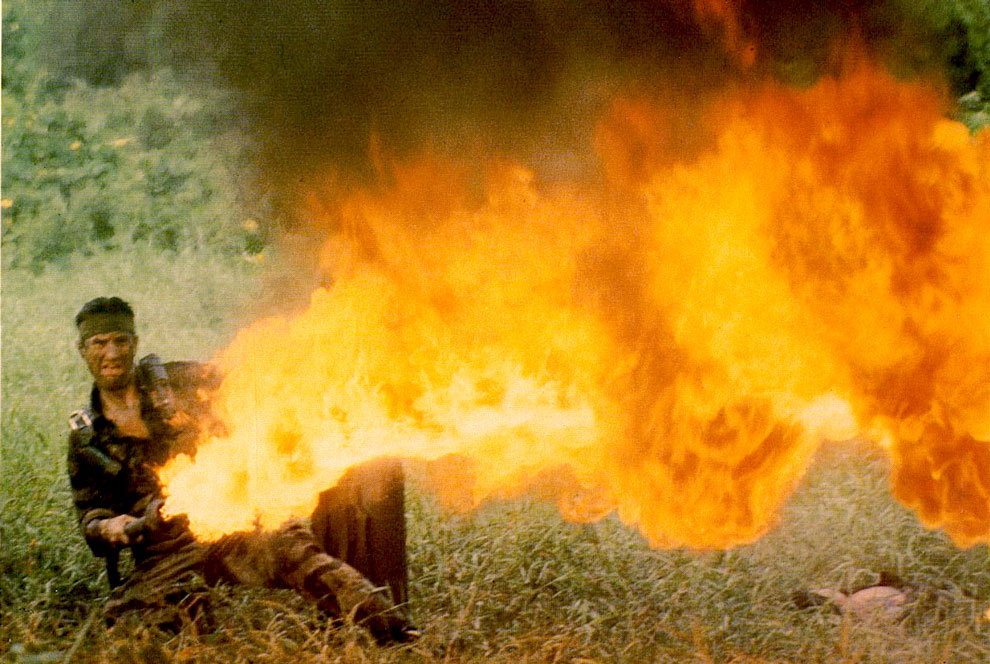
Universal Pictures
Directed by: Michael Cimino
Written by: Deric Washburn
The other Oscars it won: Cimino (Best Director); Christopher Walken (Best Supporting Actor); Peter Zinner (Best Film Editing); Richard Portman, William McCaughey, Aaron Rochin, and Darin Knight (Best Sound)
What it beat for Best Picture: Coming Home, Heaven Can Wait, Midnight Express, An Unmarried Woman
Written by: Deric Washburn
The other Oscars it won: Cimino (Best Director); Christopher Walken (Best Supporting Actor); Peter Zinner (Best Film Editing); Richard Portman, William McCaughey, Aaron Rochin, and Darin Knight (Best Sound)
What it beat for Best Picture: Coming Home, Heaven Can Wait, Midnight Express, An Unmarried Woman
My colleague — and friend! — Adam B. Vary thinks I am ranking The Deer Hunter too high on this list. He says I think it’s better than it is, and that the different segments of The Deer Hunter don’t hang together in one great movie. I can see that — but I disagree. Considering how soon after the Vietnam War this movie was released, its perspective was fresh on the damage the war had done to its soldiers, and the results are disjointed and painful. The Russian roulette scenes, so controversial at the time (since they were probably fabricated for the movie), are horrifying to watch; the scene in which Steven (John Savage) is in an underwater cage being bitten by rats is a nightmare. Personally, I think The Deer Hunter is a fearless, glorious mess.
8. It Happened One Night (1934)
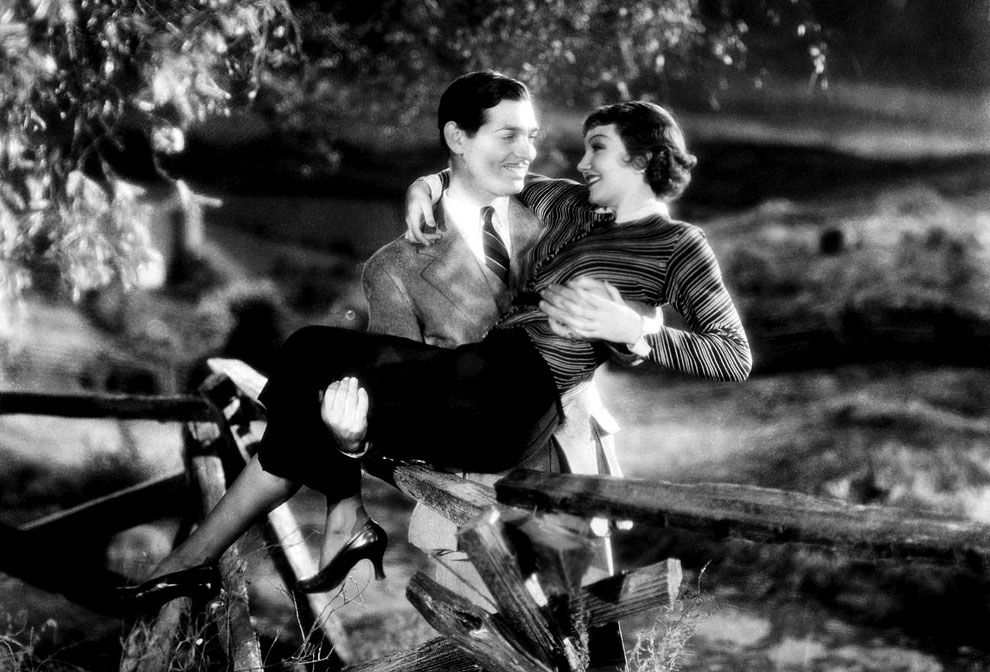
Columbia Pictures
Directed by: Frank Capra
Written by: Robert Riskin
The other Oscars it won: Capra (Best Director); Riskin (Best Adapted Screenplay); Clark Gable (Best Actor); Claudette Colbert (Best Actress)
What it beat for Best Picture: The Barretts of Wimpole Street, Cleopatra, Flirtation Walk, The Gay Divorcee, Here Comes the Navy, The House of Rothschild, Imitation of Life, One Night of Love, The Thin Man, Viva Villa!, The White Parade
Written by: Robert Riskin
The other Oscars it won: Capra (Best Director); Riskin (Best Adapted Screenplay); Clark Gable (Best Actor); Claudette Colbert (Best Actress)
What it beat for Best Picture: The Barretts of Wimpole Street, Cleopatra, Flirtation Walk, The Gay Divorcee, Here Comes the Navy, The House of Rothschild, Imitation of Life, One Night of Love, The Thin Man, Viva Villa!, The White Parade
Could It Happened One Night be the most charming movie ever made? As directed by Frank Capra, Claudette Colbert and Clark Gable — playing, respectively, a famous heiress on the run from her controlling father and a surly newspaperman who sees her as his way back into employment — look like they’re having more fun than any of us ever will in our lives. Comedy ages worse than drama, but It Happened One Night remains a warm, laugh-out-loud movie. It’s as much of a love story between you and the movie as it is between the two lead characters.
7. The Bridge on the River Kwai (1957)
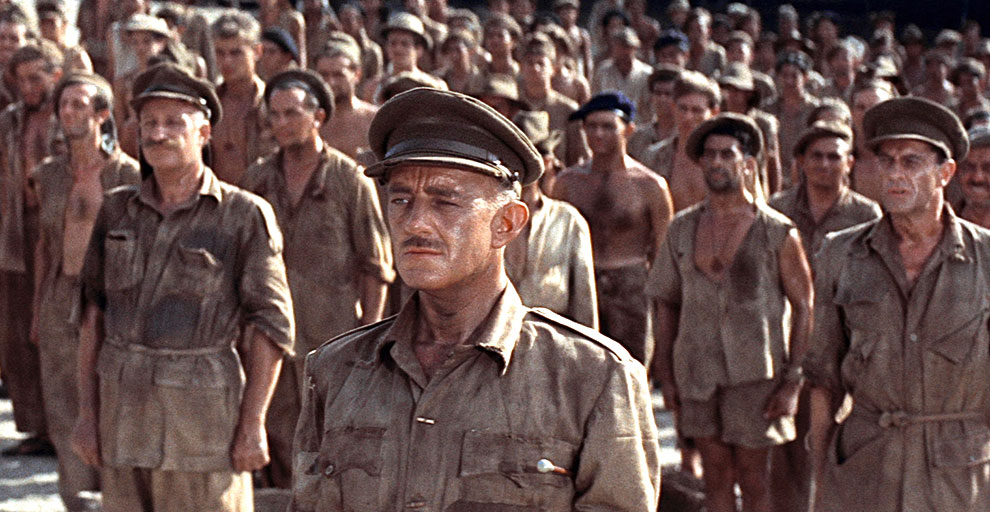
Columbia Pictures
Directed by: David Lean
Written by: Carl Foreman and Michael Wilson
The other Oscars it won: Lean (Best Director); Alec Guinness (Best Actor); Foreman, Wilson, and Pierre Boulle (Best Adapted Screenplay); Jack Hildyard (Best Cinematography); Peter Taylor (Best Film Editing); Malcolm Arnold (Best Score)
What it beat for Best Picture: 12 Angry Men, Peyton Place, Sayonara, Witness for the Prosecution
Written by: Carl Foreman and Michael Wilson
The other Oscars it won: Lean (Best Director); Alec Guinness (Best Actor); Foreman, Wilson, and Pierre Boulle (Best Adapted Screenplay); Jack Hildyard (Best Cinematography); Peter Taylor (Best Film Editing); Malcolm Arnold (Best Score)
What it beat for Best Picture: 12 Angry Men, Peyton Place, Sayonara, Witness for the Prosecution
A different sort of World War II movie from anything else on this list — and there are a bunch, as you have probably noticed — David Lean’s Bridge on the River Kwai tells the story of Col. Nicholson, as played by Alec Guinness, who won Best Actor. As a British officer being held in a Japanese POW camp in Burma, Nicholson is tasked with building the titular bridge, but the movie follows his descent into obsessive madness. It’s a well-acted, exciting, smart film about how people lose perspective during war, with a thrilling and morally opaque ending. Interestingly, American movies in 1957, and the 1958 Oscars, seemed to be working out some feelings about Japan: Sayonara, in which Marlon Brando plays a pilot in the Korean War who falls in love with a Japanese woman, was The Bridge on the River Kwai’s rival in a number of categories.
6. Lawrence of Arabia (1962)
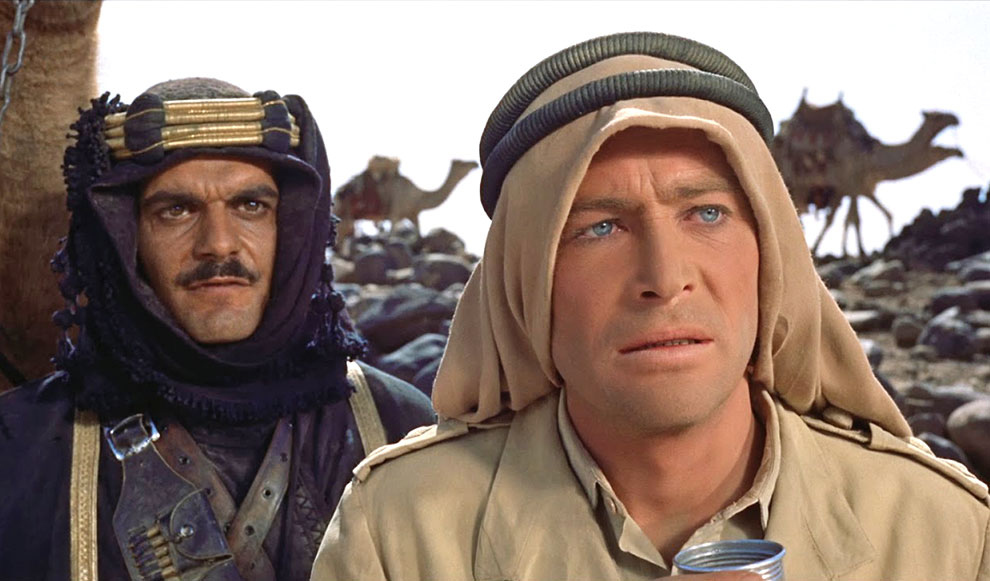
Columbia TriStar
Directed by: David Lean
Written by: Robert Bolt and Michael Wilson
The other Oscars it won: Lean (Best Director); John Box, John Stoll, and Dario Simoni (Best Art Direction – Color); Frederick A. Young (Best Cinematography – Color); Ann Coates (Best Film Editing); Maurice Jarre (Best Substantially Original Score); John Cox, Shepperton Studio Sound Department (Best Sound)
What it beat for Best Picture: The Longest Day, The Music Man, Mutiny on the Bounty, To Kill a Mockingbird
Written by: Robert Bolt and Michael Wilson
The other Oscars it won: Lean (Best Director); John Box, John Stoll, and Dario Simoni (Best Art Direction – Color); Frederick A. Young (Best Cinematography – Color); Ann Coates (Best Film Editing); Maurice Jarre (Best Substantially Original Score); John Cox, Shepperton Studio Sound Department (Best Sound)
What it beat for Best Picture: The Longest Day, The Music Man, Mutiny on the Bounty, To Kill a Mockingbird
Two David Lean movies in a row here: His Lawrence of Arabia is stunningly beautiful, super long (216 minutes!), and inventively acted. It wouldn’t have worked without Peter O’Toole as T.E. Lawrence, even though he didn’t win Best Actor. (He lost to Gregory Peck for To Kill a Mockingbird: hard to argue with that.) As an aside, one of my other favorite movies, The Manchurian Candidate, was eligible for the 1963 Oscars — but it was nominated only for Best Editing and Best Supporting Actress (Angela Lansbury, of course).
5. The Silence of the Lambs (1991)
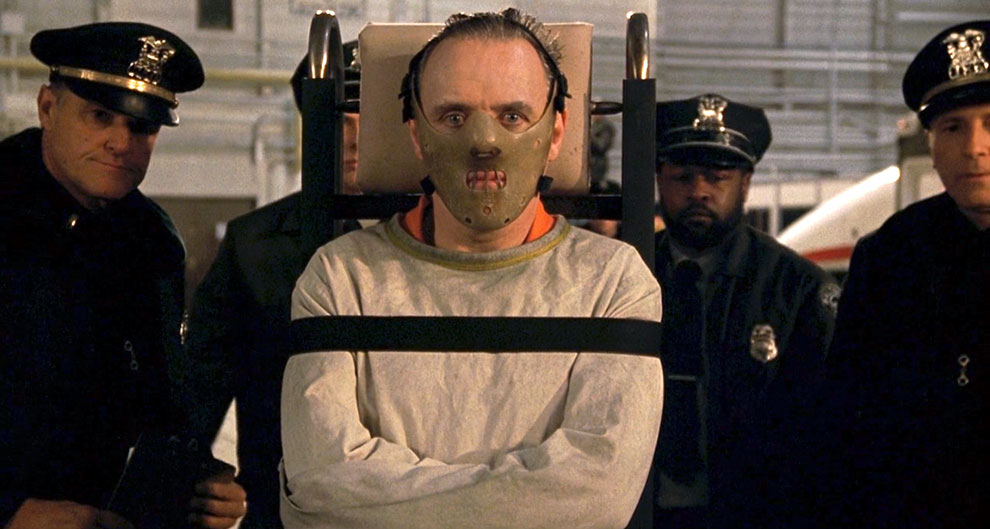
Orion Pictures
Directed by: Jonathan Demme
Written by: Ted Tally
The other Oscars it won: Demme (Best Director); Anthony Hopkins (Best Actor); Jodie Foster (Best Actress); Tally (Best Adapted Screenplay)
What it beat for Best Picture: Beauty and the Beast, Bugsy, JFK, The Prince of Tides
Written by: Ted Tally
The other Oscars it won: Demme (Best Director); Anthony Hopkins (Best Actor); Jodie Foster (Best Actress); Tally (Best Adapted Screenplay)
What it beat for Best Picture: Beauty and the Beast, Bugsy, JFK, The Prince of Tides
Am I going to get shit for putting this movie so high up? I can’t tell — but I also don’t care. The Silence of the Lambs is the only thriller ever to win Best Picture, which it did because it was impossible to forget once you saw it, and created an entire genre of popular culture. Jodie Foster as Clarice Starling — the insightful, hard-working, brave F.B.I. agent — was iconic as soon as the movie was released the day before Valentine’s Day in 1991. And do I need to say the same about Anthony Hopkins as Hannibal Lecter? Every role, from Brooke Smith as Buffalo Bill’s kidnap victim to Ted Levine as Buffalo Bill himself, makes an impression. Jonathan Demme’s direction is sharply terrifying (recall the scene when the F.B.I. is about to raid what they think is Buffalo Bill’s house), but also beautiful (the splayed body in the cage). And he never lets the audience forget that Clarice is literally surrounded by men. Released in a different time for LGBT representation — as in, there was none — The Silence of the Lambs was troubling in 1991. To me, the movie has aged out of that problem, and I love it without hesitation or asterisks.
4. The Godfather Part II (1974)
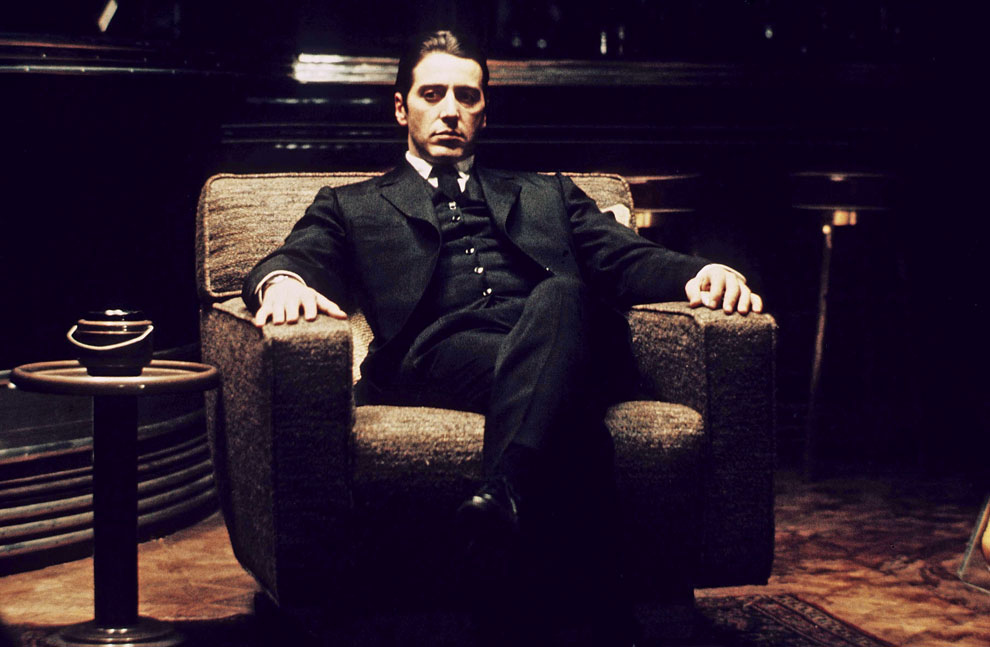
Paramount Pictures
Directed by: Francis Ford Coppola
Written by: Francis Ford Coppola and Mario Puzo
The other Oscars it won: Coppola (Best Director); Coppola and Puzo (Best Adapted Screenplay); Robert De Niro (Best Supporting Actor); Dean Tavoularis, Angelo P. Graham, and George R. Nelson (Best Art Direction); Nino Rota and Carmine Coppola (Best Original Score)
What it beat for Best Picture: Chinatown, The Conversation, Lenny, The Towering Inferno
Written by: Francis Ford Coppola and Mario Puzo
The other Oscars it won: Coppola (Best Director); Coppola and Puzo (Best Adapted Screenplay); Robert De Niro (Best Supporting Actor); Dean Tavoularis, Angelo P. Graham, and George R. Nelson (Best Art Direction); Nino Rota and Carmine Coppola (Best Original Score)
What it beat for Best Picture: Chinatown, The Conversation, Lenny, The Towering Inferno
There are plenty of people who would rank The Godfather Part II over the original. I hear them, but I am not among them. Its highs are high, for sure: the increasing corruption and isolation of Michael Corleone (Al Pacino); the flashbacks to Robert De Niro as young Vito; the downfall of Fredo (John Cazale); Talia Shire’s heartbreaking scene as Connie in which she begs Michael to forgive Fredo; and Lee Strasberg’s turn as Hyman Roth. If you wanted to argue about it being better than The Godfather, let’s have a drink and do that; I am here. As far as the Oscars go, The Godfather Part II is the only sequel to a Best Picture-winner to go on to win Best Picture also. And Coppola won Best Director, which he did not for the original. The score also won for Part II, which, as basically another character in the movie, was something that should have happened in the first place. Also: Check out the amazing competition in the 1975 Academy Awards above! The Best Picture category didn’t even include François Truffaut’s Day for Night or John Cassavetes’ A Woman Under the Influence (Coppola beat both for Best Director). One whine: Though De Niro won for Best Supporting Actor, Cazale was not even nominated.
3. Casablanca (1943)
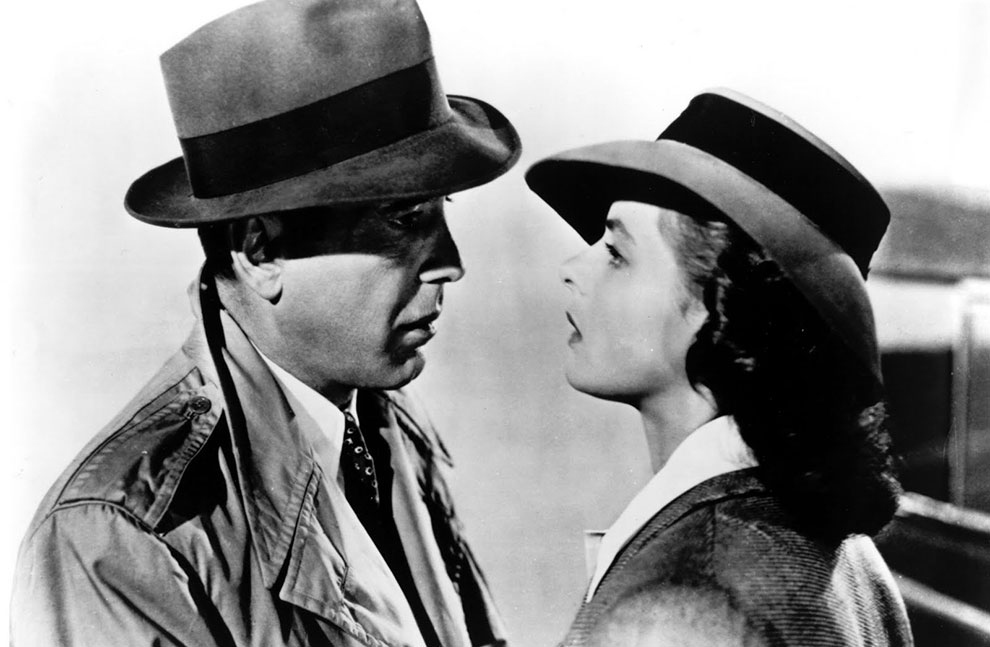
Warner Bros.
Directed by: Michael Curtiz
Written by: Julius J. Epstein, Philip G. Epstein, and Howard Koch
The other Oscars it won: Curtiz (Best Director); Epstein, Epstein, and Koch (Best Screenplay)
What it beat for Best Picture: For Whom the Bell Tolls, Heaven Can Wait, The Human Comedy, Madame Curie, The More the Merrier, The Ox-Bow Incident, The Song of Bernadette, Watch on the Rhine
Written by: Julius J. Epstein, Philip G. Epstein, and Howard Koch
The other Oscars it won: Curtiz (Best Director); Epstein, Epstein, and Koch (Best Screenplay)
What it beat for Best Picture: For Whom the Bell Tolls, Heaven Can Wait, The Human Comedy, Madame Curie, The More the Merrier, The Ox-Bow Incident, The Song of Bernadette, Watch on the Rhine
Casablanca combines war and romance in what many film fans and historians would argue is the classic American studio movie. The accomplishments of the final film may have been a surprise to those who worked on it — as the now out-of-print book Round Up the Usual Suspects: The Making of Casablanca details — but I guess these things can happen. Everything fell into place here: The screenplay, for instance, has plenty of famous lines, but without Humphrey Bogart saying them, would we remember each one? Please note that Bogart did not win Best Actor — the 1944 trophy went to Paul Lukas for his role as an anti-Nazi crusader in Watch on the Rhine, a movie that, it’s safe to say, has not aged as well as Casablanca.
2. The Godfather (1972)
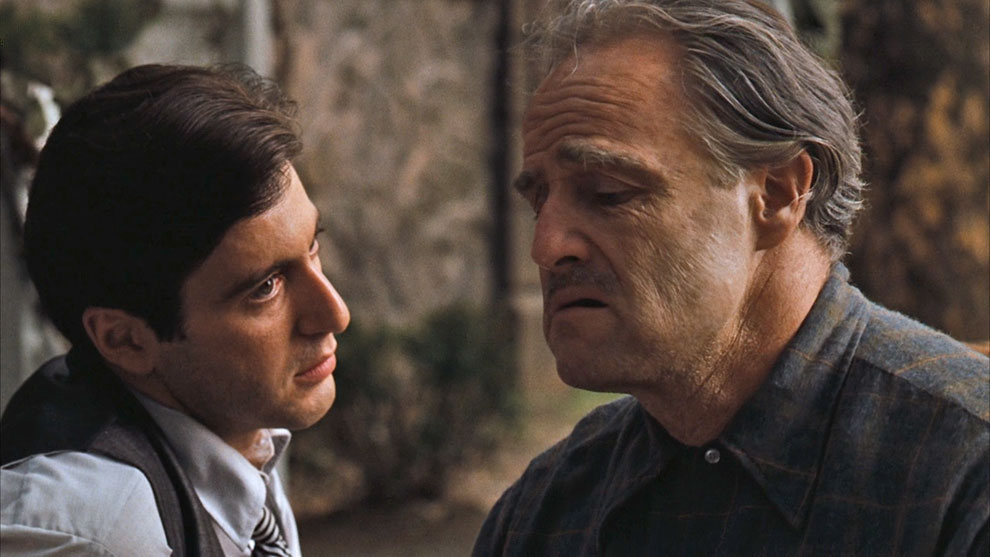
Paramount Pictures
Directed by: Francis Ford Coppola
Written by: Mario Puzo and Francis Ford Coppola
The other Oscars it won: Puzo and Coppola (Best Adapted Screenplay);
Marlon Brando (Best Actor)
What it beat for Best Picture: Cabaret, Deliverance, The Emigrants, Sounder
Written by: Mario Puzo and Francis Ford Coppola
The other Oscars it won: Puzo and Coppola (Best Adapted Screenplay);
Marlon Brando (Best Actor)
What it beat for Best Picture: Cabaret, Deliverance, The Emigrants, Sounder
There had been gangster movies before The Godfather, but Coppola opened up an entirely new vein so resonant that real-life mobsters decided to aspire to it. The Godfather is gorgeous to look at and sprawling in its story. It’s hard to separate the excellence of this movie from its mythology — Marlon Brando’s voice and delivery as Vito Corleone, the horse head in the bed, the excruciating transformation of the reluctant Michael (Al Pacino) from an ordinary young man to a Mafia Don — until you actually begin watching it. Then you’re swept away. If you’re wondering who beat out Coppola for Best Director, it was Bob Fosse for Cabaret; and if you can’t imagine who dared win over Pacino for Best Supporting Actor (and James Caan and Robert Duvall, also in the same category), it was also someone from Cabaret: Joel Grey (a classic performance as the Master of Ceremonies).
1. All About Eve (1950)
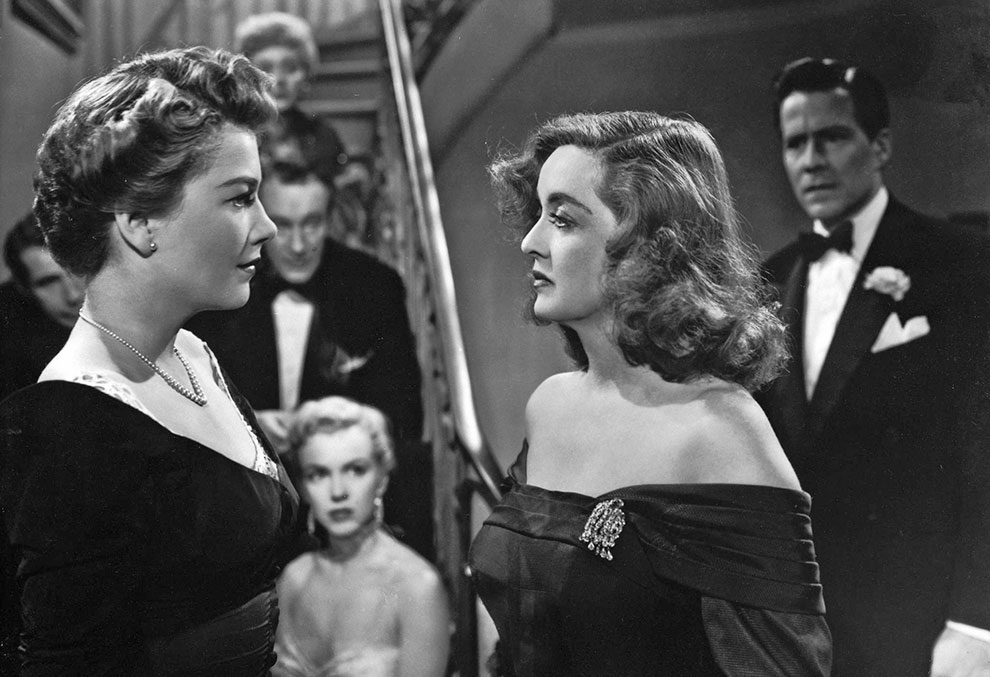
Twentieth Century Fox
Directed by: Joseph L. Mankiewicz
Written by: Joseph L. Mankiewicz
The other Oscars it won: Mankiewicz (Best Director); Mankiewicz (Best Screenplay); George Sanders (Best Supporting Actor); Edith Head and Charles LeMaire (Best Costume Design – Black and White); Thomas T. Moulton, 20th Century-Fox Studio Sound Department (Best Sound Recording)
What it beat for Best Picture: Born Yesterday, Father of the Bride, King Solomon’s Mines, Sunset Blvd.
Written by: Joseph L. Mankiewicz
The other Oscars it won: Mankiewicz (Best Director); Mankiewicz (Best Screenplay); George Sanders (Best Supporting Actor); Edith Head and Charles LeMaire (Best Costume Design – Black and White); Thomas T. Moulton, 20th Century-Fox Studio Sound Department (Best Sound Recording)
What it beat for Best Picture: Born Yesterday, Father of the Bride, King Solomon’s Mines, Sunset Blvd.
All About Eve is a character study of both Eve Harrington (Anne Baxter) and Margo Channing (Bette Davis), and it is perfect. The two women’s roles created lasting archetypes: Eve is the backstabbing climber, and Margo is the aging viper whose secret kindness and vulnerability is matched only by her need for the world to revolve around her. Mankiewicz’s dialogue — he based the screenplay on a short story by Mary Orr that had been published in Cosmopolitan — is sharp and memorable; the actors’ deliveries of it, especially from Davis’ mouth, give the movie a pace and sound that works as well now as it did in 1950. It’s an examination of women’s (rightful) fears about getting older, a glamorous look at post-World War II New York theater society, and the perils of ambition without morality. George Saunders, who plays the vicious “fishwife” critic Addison DeWitt, is another of the movie’s famous characters, and his motives are complicated and opaque as he hones in on Eve. (Chew on this, from Addison to Eve: “You’re an improbable person, Eve, and so am I. We have that in common. Also a contempt for humanity, an inability to love and be loved, insatiable ambition, and talent. We deserve each other.”) Looking back, it’s fascinating that All About Eve and Sunset Blvd., with their similar themes, were released the same year, and there are plenty of people who would argue that Billy Wilder’s movie is the better one: I love both! What I don’t love, though, is that Davis did not win Best Actress for her portrayal of Margo. Since she and Baxter were both nominated in the category — the first time at that point that two actresses from the same movie faced each other — it’s likely that they split the All About Eve vote, and Judy Holliday won for Born Yesterday instead. As Margo would say, it’s funny business, a woman’s career. At least the Academy got it right on Best Picture — one of the best ever made.
UPDATE
This post was updated in 2015 to include 12 Years a Slave and 2016 to include Birdman.

মন্তব্যসমূহ
একটি মন্তব্য পোস্ট করুন